Despite its seeming elusiveness, finding the meaning of life is ultimately a feat within everyone’s reach, provided that one starts thinking about it soon and takes the right steps!
What is the meaning of life?
Who am I? Where did I come from? Where am I going?
These questions are as old as time itself – for millennia, they have perplexed philosophers, theologians, scholars, and ordinary people alike.
We are born, we live, and we die. We experience joy, sorrow, love, and loss, all within the confines of a finite lifespan. A cycle of short-lived moments – until one day we “fly away” and seemingly “vanish” into history.
For dust you are, and to dust you will return.
When pondering this sobering truth, many cannot help but wonder: Why are we here, after all? Why were we born into this world? Why do we have to do this and do that – only to eventually “fade away”?
In the grand scheme of the universe, our individual existence seems fleeting and insignificant. Yet, within this brevity, we yearn for something more – a sense of purpose, a “reason for being”.
Is life merely a random occurrence, a cosmic accident devoid of significance? Or is there a grand design underlying humanity’s existence?
Do we create our own trajectory through personal choices and actions, or is it predetermined by forces beyond individual control?
As people grapple with these riddles, most end up taking divergent paths. Some seek answers in religion, others in philosophy, and still others in science, art, music, or nature.
Despite the differences, the underlying motivation is still the same: the desire to understand our place in the universe and the significance of existence.
No matter which direction is taken, as long as one prevails, the journey will eventually transform them and turn their life to a new page!
Highlights
- The meaning of life is a subjective concept open to individual interpretation. Typically defined as the unique significance a person ascribes to their existence, it is shaped by a combination of personal experiences, beliefs, and values.
- Contemplating the meaning of life is a fundamental human drive – one that contributes to personal growth, fosters resilience in the face of hardships, and lays the foundation for spiritual maturity.
- For centuries, philosophers, spiritual leaders, psychologists, artists, scientists, and countless other individuals have reflected on life’s meaning and come up with a diverse array of explanations – many of which share striking similarities (e.g. human agency, ethics, community feeling, etc.).
- The meaning of life is found by realizing and following one’s own “Way” – a personalized path of self-discovery, ethical living, and alignment with a larger whole, encompassing one’s outlook on life, values, and worldview.
- A lack of meaning typically stems from a combination of factors, including but not limited to ignorance, excessive self-focus, misplaced emphasis on achievements, a weak sense of values, the complexities of modern life, an abundance of choices, an overemphasis on external rewards, dwelling on the past, rigid thinking, and escapism.
- Finding meaning in life (i.e. discovering one’s “Way”) requires regular self-reflection, tuning in to one’s “vibrations”, experimentation, and seeking guidance when necessary.
- On the quest for meaning, one needs to keep in mind certain principles – including taking the initiative, questioning assumptions, nurturing the spirit, contributing to the community, appreciating small things, accepting change, contemplating mortality, practicing acceptance, maintaining curiosity, and avoiding comparison to others.
- An inherent component of finding meaning is to contemplate and understand the role of suffering. For this purpose, one must adopt a learning mindset, focus on personal growth and empathy rather than being jealous of others, and learn to transform hardship into a catalyst for resilience.
How Should We Define the Meaning of Life?
This is a tricky question – mostly because of the not-so-clear connotation of the term “meaning”. For centuries, philosophers, theologians, and thinkers across various fields/ schools of thought have been debating the concept’s exact nature.
As someone with a preference for linear thinking and an interest in linguistics, I decided to take a lingual, character-based approach to define the term. Though the interpretation below might seem incomplete or even a bit “naive” to certain readers out there, I would like to share about it anyway.
The concept of “meaning”
Let’s start with the word “meaning” first. Based on my own research, we can think about it in 3 main ways:
- Reference: One common thread is that “meaning” refers to the relationship or connection between a sign (e.g. word, symbol) and the things it signifies. Specifically, it emphasizes the external, real-world object or concept that a word or symbol points to – which can be defined by applying certain conditions.
Example: The word “cat” refers to a type of furry, four-legged animal with whiskers. In this case, conditions like “having fur”, “four legs”, etc. help determine if a sign/ statement is true or false.
- Sense: Another explanation is that it involves a mental state, attitude, or perspective associated with a particular sign. In this sense, “meaning” is understood as the internal, subjective representations (including personal associations and connotations) that arise when we encounter something.
Example #1: The word “cat” evokes a mental image of a furry creature, perhaps a specific pet cat you’ve owned, or a general concept of “catness”.
Example #2: The word “freedom” triggers feelings of liberty, independence, and the absence of constraints.
- Use: This approach highlights the way a sign is used in specific contexts to communicate intentions and achieve certain goals. Meaning is seen as arising from the practical function of something in human interaction.
Example #1: The phrase “I’m hungry” may mean different things depending on the specific context. If said after a long day of work, it might demonstrate a genuine desire for food. If said to a friend who just cooked a meal, it could be a polite way of saying “thank you.” However, if said by a kid to his mom in a specific tone of voice, it might actually be a subtle way of expressing dissatisfaction.
Example #2: Depending on the specific context and relationship, words like “silly” can either be interpreted as an insult or a light-hearted joke.
The concept of “life”
Now, let’s turn our attention to the concept of “life.” While it may seem straightforward, the term is complex and multifaceted; as it encompasses a vast array of experiences and sensations unique to each individual.
- From a biological perspective, “life” is typically defined as a state characterized by growth, reproduction, response to stimuli, metabolism, and death. It is what sets organisms – from the smallest microorganism to the largest mammal – apart from non-living things. However, this definition falls short of capturing the full essence of human existence. We, as humans, are not merely biological organisms; we are also beings with consciousness, emotions, and a capacity for abstract thought.
- Therefore, I suggest that we consider “life” in a broader sense. Specifically, it comprises the entire spectrum of human experience – including the physical, emotional, and spiritual aspects of our being. It’s the journey from birth to death, filled with moments of joy, sorrow, love, loss, and everything in between.
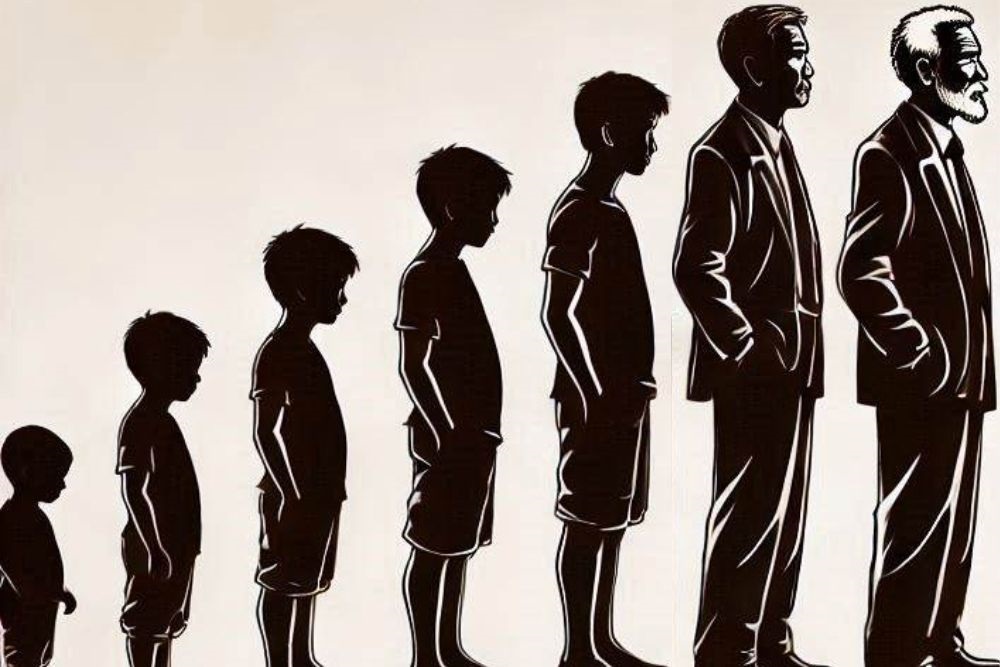
Best definition of life
Combine them together
With that in mind, I believe we can interpret the “meaning of life” as the unique significance that an individual mentally ascribes to their own existence. It’s the personal narrative that one constructs throughout life, shaped by their experiences, beliefs, and values. This narrative is not a static, predetermined path; rather, it entails a dynamic process of continuous discovery and self-creation.
- External reference: Some individuals find significance in external goals and achievements (e.g. pursuing a specific career, raising a family) or a set of objective truths/ principles that guide their actions (e.g. the Golden Rule, the Four Noble Truths, or ethics such as justice and compassion).
- Internal sense: For others, meaning is a result of the sum total of all the experiences that make up one’s life. It is about being attuned to one’s internal states (e.g. core values, beliefs, potential, etc.) and finding joy in daily living experiences (e.g. overcoming a challenge).
- Practical use: Some emphasize active engagement with life and the world. Meaning, therefore, stems from an active construction of one’s existence – when one takes ownership of their life and makes authentic decisions that align with their values and aspirations.
Based on the analysis above, you can see that the “meaning of life” is a subjective concept up to individual interpretation. Depending on the specific influencing factors, it may manifest to one as:
- Purpose and goals: Striving for specific aims, personal and professional.
- Personal growth: Continuously learning and evolving as individuals.
- Knowledge: Expanding one’s horizons, whether by exploring the depths of science, the heights of philosophy, or the beauty of art.
- Relationships: Strong bonds with loved ones, friends, and community.
- Humanity: Recognizing our shared humanity and the interconnectedness of all living beings.
- Adventures: Engaging in experiences that enrich one’s life, such as travel, hobbies, or creative pursuits.
- Spiritual or philosophical beliefs: Understanding the universe and one’s place within it – whether through religion, nature, or personal reflection.
- Service to others: Helping people and leaving a positive legacy through creative endeavors and social activism.
- etc.
Meaning of Life vs Other Related Terms
The “meaning of life” is often intertwined with other related concepts, including:
Both terms delve into the fundamental questions of human existence. However, while “meaning” typically focuses on the subjective significance and value that one assigns to their life, “purpose” implies a more objective, externally defined mission or destination.
Despite the differences, the latter often plays a crucial role in shaping one’s sense of the former. For example, someone may find significance in their work, relationships, or spiritual practices – which align with their personal purpose.
- Ikigai (生き甲斐)
Originating from Japan, “Ikigai” refers to what can be called a person’s “reason for being”. Some researchers visualize it as the intersection of 4 key elements: what you love, what you’re good at, what the world needs, and what you can be paid for.
While the focus of Ikigai is on finding passion every day, it also contributes to one’s broader sense of meaning. Engaging in activities that bring joy and fulfillment is essential to enriching one’s experiences.
| Definition | Focus | Significance | |
| Meaning of life | Subjective significance and value assigned to one’s existence | Individual perspective, personal values, and beliefs | The core concept, encompassing broader questions of existence |
| Purpose of life | Objective mission or destination in life | External goals, aspirations, and societal contributions | Can contribute to meaning, but not necessarily synonymous |
| Ikigai | Reason for being, intersection of passion, skill, need, and reward | Attaining joy and fulfillment through daily activities | A specific approach to finding meaning |
Why Contemplating the Meaning of Life
The quest for meaning is part of humanity’s DNA
As human beings, we seek meaning in everything. We’re so good at discovering patterns that we see them where they don’t exist.
Shaun David Hutchinson
It is an intriguing fact, but believe me, seeking meaning is a desire inherent within human nature. No matter what we come across in this world, we all wish to know the “why” behind it.
Throughout life, we are constantly searching for patterns, connections, and implications behind everything – from natural phenomena to human behavior:
- We pursue education to expand our understanding of the world, from the intricacies of quantum physics to the nuances of human psychology.
- We come up with stories, myths, and theories to explain the unexplainable.
- We engage in art, music, and literature to express ourselves and connect with others on an emotional level.
- We crave high-quality relationships, whether with family, friends, or romantic partners, over shallow ones.
- etc.
And life as a whole is no exception. Every month, millions of people are actively looking for materials concerning the “reason for being”. Here is a screenshot of monthly searches for “meaning of life” and related queries on Google (as of October 2024).
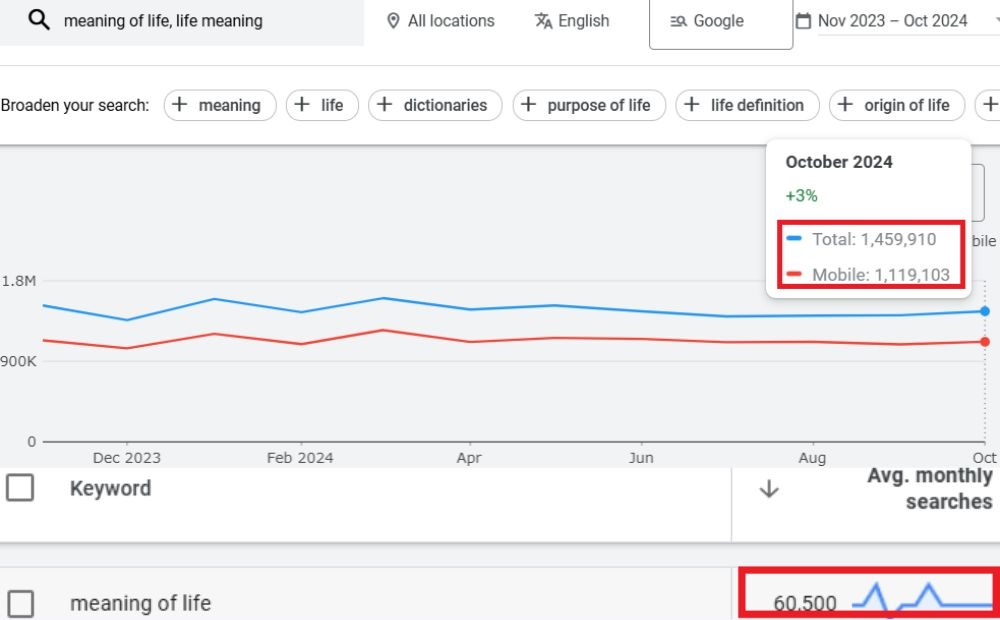
Can you believe it? More than 60,000 searches for “meaning of life” every month – and if we include related topics (e.g. “ikigai”, “purpose/ origin of life”), the total number adds up to almost 1.5 million!
And that’s only about searches on Google – without taking into account other platforms (e.g. Bing, Yahoo, DuckDuckGo), nor the people who silently research or ponder the topic every day!
Hey Google, what is the meaning of life?
(Source: Quora)
However, here comes a question: Why?
Why do we care about the meaning of life?
According to scientific research, one possible explanation has to do with our brain’s unique capacity to plan for long-term future needs (which is something not observed in other creatures). As the future is uncertain, we need a set of overarching values – including moral, religious, and ideological beliefs – to give us reasons to look ahead.
However, there’s more to it than just future planning. Cognitive biases, such as the “illusion of control” and the “fear of the unknown”, may distort our perception of reality and lead us to seek patterns where none may exist. An example is when an athlete decides to wear the same “lucky socks” for every game, believing they can influence the outcome.
At the same time, existential anxiety, the dread associated with questions of existence and mortality (e.g. “Who am I”, “What happens after death?”), may also fuel one’s search for meaning. These questions typically arise following a certain crisis or turning point in life (e.g. reaching maturity, losing a loved one, etc.). Seeking answers – whether through religion, philosophy, or a social cause – is a way to alleviate the underlying fear and maintain a sense of security and control in a volatile world.
In light of the above-mentioned theories, finding the meaning of life provides one with a survival advantage. It enables us to cope with uncertainty and break through limitations, especially during challenging times.
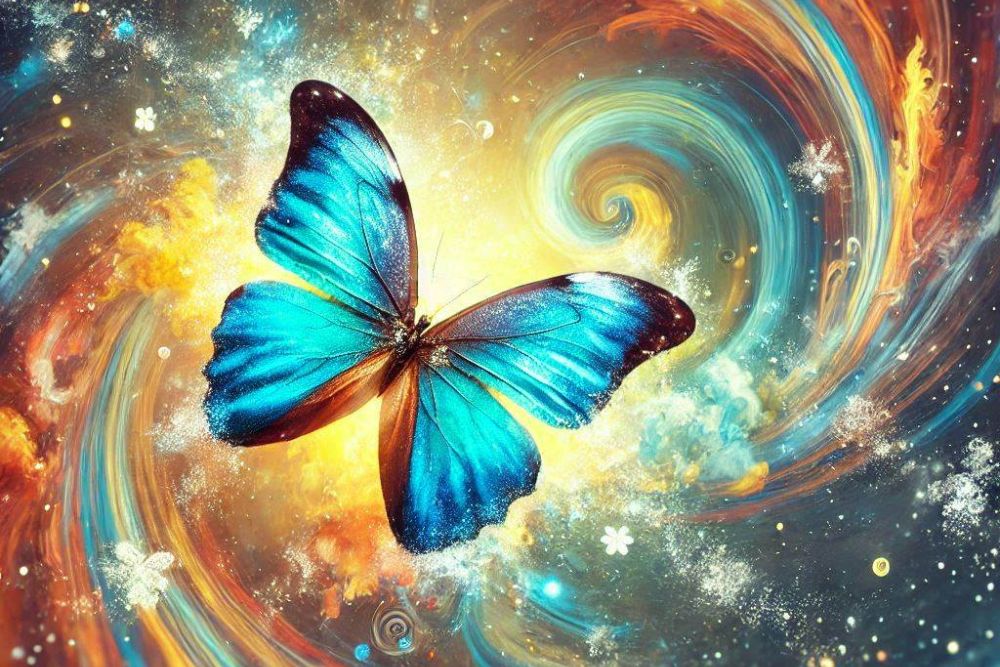
The meaning of life in one word: survival
Beyond the scientific explanations above, many scholars have taken a more “humanistic” approach – one that emphasizes human beings’ unique qualities, including the capacity for consciousness, creativity, and moral reasoning. According to them, humanity’s inherent drive to seek meaning is rooted in the desire to transcend our biological, individual limitations and become part of something larger.
Whether through artistic expressions, acts of service, rituals, or spiritual practices, the underlying motivation is the same: to connect with a broader sense of reality – which, in turn, translates to greater happiness, resilience, and well-being.
Attempts to find meaning in life seek to transcend the limits of an individual life… For a life to have meaning, it must connect with other things, with some things or values beyond itself.
Robert Nozick
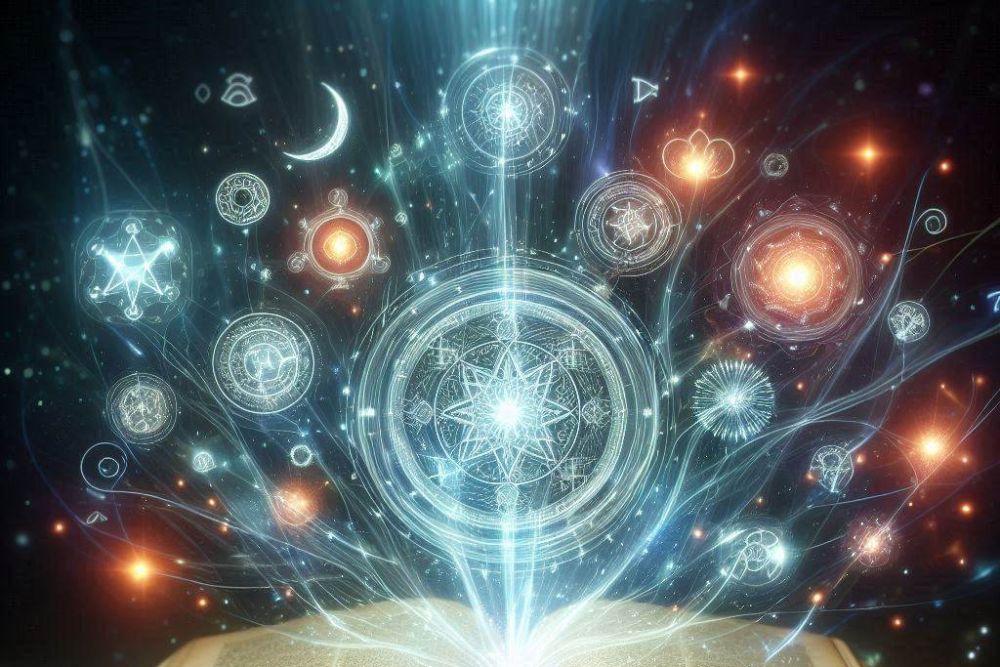
Whatever angle you find more appealing, I believe we can all settle on the same conclusion:
The quest for meaning is a fundamental part of the human condition. It is an innate calling that nobody is exempt from – something that enables us to live more wholly.
If you have not thought about it yet, I suggest it’s time to do it right now!
Why, you may ask?
Well, because you are going to reap various benefits (which we will discuss now).
Seeking meaning is a potent catalyst for growth & abundance
What doesn’t kill you makes you stronger.
Friedrich Nietzsche
Human beings are naturally curious creatures; we yearn to understand the world around us and our place within it. It is this innate curiosity that drives us to ask questions, seek answers, and explore new ideas.
The quest for life’s meaning typically compels us to reconsider existing beliefs, expand our horizons, and embrace new perspectives. Along the way, we naturally encounter obstacles and setbacks that test our resilience and determination.
And yet, it is precisely these challenges that serve as catalysts for growth – in that they force us to adapt, learn, and evolve.
While seeking answers may not always be pleasant, the fruit of this journey is self-awareness – a more holistic understanding of one’s strengths, weaknesses, potential, and unique contributions. This translates to more informed, authentic, conscious choices that align with the inner core and enable one to “be all they can be”. Or, as humanistic psychologists such as Abraham Maslow and Carl Rogers have put it, one can “self-actualize” and (therefore) experience fulfillment.
The correlation between the quest for meaning and abundance in life is something that has been proven by research from numerous fields. For instance, a study published in the Journal of Health Psychology found that those with a strong sense of purpose tend to be happier, healthier, and more resilient. They are less likely to experience depression, anxiety, and chronic illnesses – which may partially be attributed to their tendency to maintain healthy behaviors, such as regular exercise and a balanced diet. This translates to increased longevity and a lower risk of premature death.
From a societal perspective, a sense of meaning is also correlated to a more just and equitable world. Specifically, it makes one more likely to perform acts of kindness, volunteer their time, and support the communities – while less likely to engage in harmful behaviors such as substance abuse, crime, and suicide.
Man will become better when you show him what he is like.
Anton Chekhov
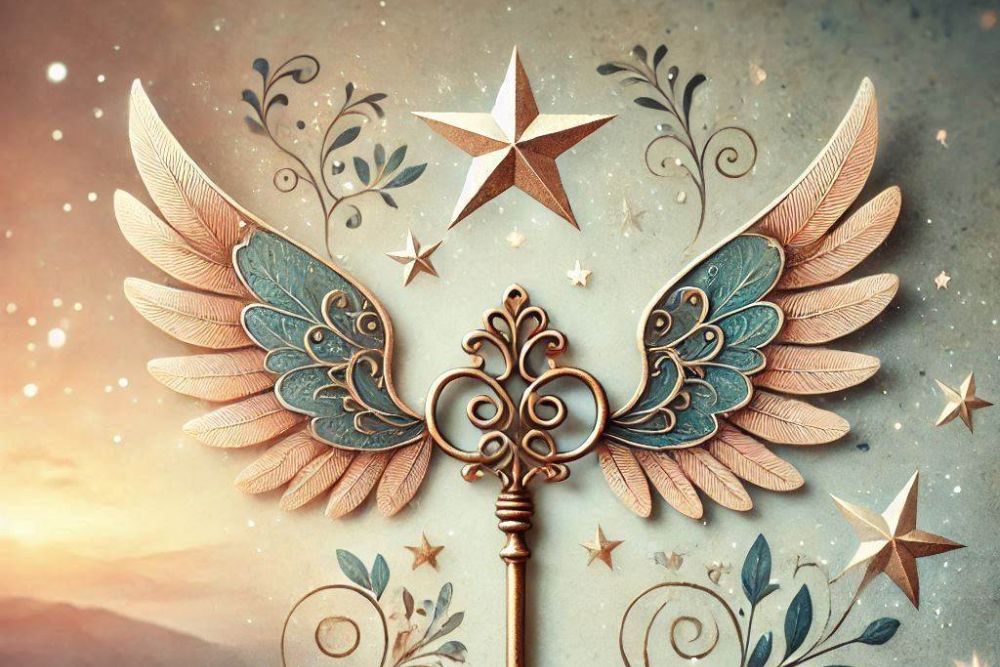
Meaning of life
A sense of meaning provides an “anchor” to endure hardships & carry on
He who has a “why” to live can bear almost any “how”.
Friedrich Nietzsche
In contemporary society, issues such as suicide, karōshi (過労死 – death from overwork), and karōjisatsu (過労自殺 – suicide due to overwork) are becoming more prevalent than ever. While people attribute them to a variety of causes, one of the most underlying reasons, I believe, has to do with a loss of purpose.
When one feels disconnected from what truly matters in life, they are likely to succumb to stress and despair – which will ultimately drive them to seek death as an escape (or, in less severe cases, to indulge – whether in coffee, drinking, video games, gossiping, nightlife entertainment, etc.).
On the other hand, a sense of meaning acts as a powerful antidote to these afflictions. When we have a reason to live, a goal to strive for, or a cause to champion, we are given the strength to persevere through challenging circumstances.
In his book “Man’s Search for Meaning”, Holocaust survivor and renowned psychiatrist Viktor Frankl recounts the horrors of Auschwitz’s concentration camp – where he witnessed firsthand the devastating impact of a life devoid of significance. Many prisoners, stripped of their possessions, dignity, and hope, eventually succumbed to despair and death.
Most of them perished not from starvation or disease, but from a loss of meaning.
In contrast, Frankl was able to keep hope alive by thinking about his wife and looking forward to the day he would see her again. He even dreamed of giving lectures after the war on the psychological lessons he had learned in Auschwitz.
This sense of purpose, however small and ephemeral, was what sustained him through the darkest of times.
From Frankl’s experience, we learn a crucial lesson: having something to live for is a lifeline. It gives us the resilience necessary to push through adversities and maintain a positive outlook under all circumstances.
How important the meaning of life is
Have you ever read or heard about O. Henry’s short story “The Last Leaf”? It tells the story of an artist named Johnsy who is struck by pneumonia and has almost given up hope. As she lies in bed, she becomes fixated on an ivy vine outside her window, believing that her fate is intertwined with the falling leaves – that when the last leaf falls, so too will her life.
Learning about that, another artist named Behrman decides to take action. In a desperate attempt to save Johnsy’s life, Behrman braves a stormy night to paint a realistic leaf onto the vine, ensuring that “the last leaf” remains steadfast. His act becomes the catalyst for Johnsy’s recovery, as she later finds hope and strength to fight against her illness.
O. Henry’s story is a beautiful testament to the transformative power of meaning. A single leaf, painted by a kind-hearted soul, has made a complete difference to a soul teetering on the brink. It provided Johnsy with a sense of significance and a reason to hold on.
It was this newfound awareness that ultimately saved her life! (albeit at the cost of Behrman’s life itself)
While finding meaning is not a simple feat – given that there are internal and external influencing factors in play (I will talk about this in detail later), the idea is that having something to live for may mean the difference between a life saved and a life lost.
On a societal level, governments, companies, organizations, families, etc. have a role to play in fostering environments that support and encourage the pursuit of purpose – whether through education, workplace culture, or community initiatives.
On an individual level (which, I believe, is much more important due to the better degree of control and autonomy), one is called to actively explore different avenues, discover what resonates with them, and be bold enough to take action that may not always conform to the norms (or, put it simply, to have the “courage to be disliked and be happy“).
Everything can be taken from a man but one thing: the last of the human freedoms – to choose one’s attitude in any given set of circumstances, to choose one’s own way.
Viktor E. Frankl
The search for meaning lays the foundation for spiritual maturity
This too shall pass.
Persian Proverbs
In the pursuit of meaning, we cannot help but face a fundamental truth: the impermanence of life. As sobering as it seems, realizing it is a crucial part of growth and maturity.
When we internalize the ephemeral nature of our existence, we are naturally prompted to shift the focus from material possessions and hedonistic pleasures to more enduring values. True wealth, as it turns out, lies not in external “glory” – but in internal qualities such as compassion, gratitude, and wisdom.
After all, no matter how much one has accumulated within their lifespan, they cannot take anything with them beyond the Veil. This is something that everyone should agree with – no matter what their perspectives on what happens after death are.
What truly matters, therefore, is the things that last beyond an individual’s existence: relationships, experiences, and contributions to the world.
A meaningful life is typically characterized by a connection to something beyond the self – whether it’s a higher power, nature, or humanity as a whole. Aside from offering a sense of consolation, such a connection also inspires us to act with kindness, compassion, and generosity – recognizing the inherent worth and suffering of every individual.
At the same time, we are encouraged to let go of negative emotions like anger, resentment, and fear, which only drain our energy and hinder spiritual growth.
At the end of the day, all will pass. And we, as human beings, possess the ability to choose how to act DESPITE the circumstances.
Instead of succumbing to frustration and hatred, we have the choice to act with patience and dignity. It is this unique capacity that sets us apart from other creatures – and keeps society in balance and harmony.
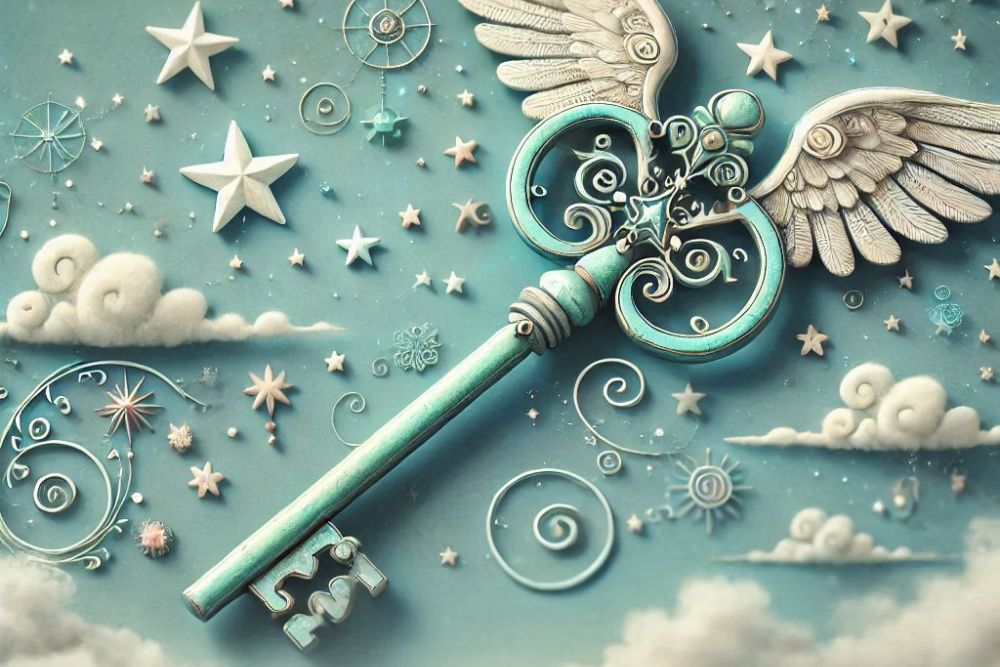
Meaning of life
As illustrated in Akira Kurosawa’s film “Ikiru”, having a sense of meaning can significantly alter one’s life trajectory. The protagonist, Kanji Watanabe, is a disillusioned bureaucrat who leads a monotonous existence. When he receives a terminal cancer diagnosis and knows that he has only 6 months left to live, he is forced to confront the emptiness of his life – how he has been like a “zombie” for the last 30 years.
This existential crisis catalyzes a profound spiritual awakening. Watanabe decides to devote his remaining time to a community project: the construction of a children’s playground.
Despite facing bureaucratic hurdles and personal setbacks, he perseveres with unwavering determination. Even when the authorities seem indifferent or even resistant toward his efforts, he doesn’t take it personally. As he says:
I can’t afford to hate people. I don’t have that kind of time.

Watanabe’s steadfastness, even in the face of bureaucratic obstacles – as well as his detachment from the ego – is a beautiful metaphor for how transformative a sense of meaning can be.
After all, our time on Earth is so limited – and succumbing to negativity only shortens our lifespan (I am not making that up – it is something that has been proven by scientific research). Hence, refusing to let go of toxic feelings is not only futile; it is FOOLISH.
When we are cognizant of the reality and inevitability of death we begin to seek the eternal, and become determined to make the most valuable use of each moment of life.
Daisaku Ikeda
Different Perspectives on the Meaning of Life
The meaning of life is a topic that has intrigued philosophers, theologians, and scientists for millennia. Throughout history, the search for a satisfactory answer has given rise to some of humanity’s greatest intellectual and spiritual achievements.
Ancient philosophies
Western
The unexamined life is not worth living.
Socrates
Socrates and Plato, two of the most influential thinkers in ancient Greece, are known for their profound perspectives on life. Socrates, in particular, believed that a meaningful life involved constant reflection and questioning of one’s beliefs and actions. He argued that the pursuit of wisdom was humanity’s ultimate goal – and that true happiness could only be achieved through living a virtuous life.
Building upon Socrates’ teachings, Plato proposed that the meaning of life lies in the pursuit of the good, the true, and the beautiful. His theory of Forms suggests that there are eternal, perfect ideas that exist beyond the physical world. By understanding and aligning ourselves with these higher “truths”, one may “transcend” to a higher level of existence and experience more abundance.

Another prominent thinker is Aristotle, who argued that the ultimate goal of humanity’s existence is Eudaimonia, or flourishing. More than just personal happiness, Eudaimonia involves living a life of excellence, fulfilling one’s potential, and contributing positively to society. It is not a fleeting emotion – but a lasting state of well-being that comes from practicing virtues (e.g. courage, temperance, justice, wisdom) and reasoning.
Happiness is the meaning and purpose of life, the whole aim and end of human existence.
Aristotle

Stoic philosophers have also touched on the theme. According to them, the meaning of life lies in living in accordance with nature, virtue, and others. This entails:
- Accepting the world’s reality as it is
- Aligning actions with the universe’s rational order
- Recognizing one’s place within the cosmic scheme
- Contributing to the betterment of people and future generations
- etc.
To undertake nothing: i. at random or without a purpose; ii. for any reason but the common good.
Marcus Aurelius
Eastern
In ancient China, Confucius and his followers proposed that a well-lived life involves not only personal fulfillment – but also contributing to collective well-being. Through virtuous behavior and adherence to social norms, one aligns themselves with the cosmic order (天, Tiān) and finds ultimate meaning in their existence.
Central to Confucius’ philosophy is the Five Constant Virtues (五常, wǔcháng):
- 仁 (Rén): Benevolence, humaneness, and kindness.
- 禮 (Lǐ): Propriety, ritual, and etiquette.
- 義 (Yì): Doing what is right and just, even when things get difficult.
- 智 (Zhì): Wisdom, intelligence, and knowledge.
- 信 (Xìn): Trustworthiness, sincerity, honesty, and integrity.
Additionally, a “noble man” (君子 – junzi) is called to embrace other ideals such as:
- Xiao (孝): Filial piety, or respect for one’s parents. Values such as respect for the elders and family harmony are seen as essential for a well-ordered society and a worthy individual life.
- 修身齊家治國平天下 (Xiū shēn qí jiā zhì guó píng tiān xià): Meaning “cultivate oneself, manage the family, govern the state, and bring peace to the world”, this motto outlines a progressive path of development, starting with self-cultivation and gradually expanding to influence society at large.
- etc.
The wise are not misled, the benevolent are not worried, and the brave are not afraid. (知者不惑,仁者不忧,勇者不惧)
Confucius
Spiritual perspectives
Since ancient times, religious and spiritual traditions have explored and interpreted the meaning of life in a number of ways.
- Christianity
In Christianity (and other Abrahamic religions such as Judaism and Islam), the meaning of life is often understood through the lens of faith in God and a belief in an afterlife. Christians typically believe that one’s ultimate calling is to know and love God, and to live according to His teachings. This involves practicing virtues like love, forgiveness, and compassion, as well as seeking to build a relationship with the Divine through prayer and worship.
- Hinduism
In Hinduism, one central concept is Dharma, which refers to one’s moral duty or purpose. Dharma may vary depending on an individual’s caste, life stage, and personal circumstances. Hindus believe that by fulfilling their Dharma, one may attain liberation from the cycle of rebirth (samsara) and achieve union with the divine (moksha).
- Buddhism
Buddhism’s stance on the meaning of life is closely tied to the concept of “suffering” – a result of attachment to desires and cravings. The path to liberation, which is deemed the ultimate goal in life by Buddhism, involves practicing the Four Noble Truths and the Noble Eightfold Path through mindfulness, meditation, and ethical conduct.
Schools of Buddhism differ in their approach to liberation. Zen, for example, places a strong emphasis on direct experience and intuition over intellectual understanding.
Human life has no meaning, no reason, and no choice, but we have our practice to help us understand our true self. Then, we can change no meaning to Great Meaning, which means Great Love. We can change no reason to Great Reason, which means Great Compassion.
Zen Master Seung Sahn
While the above-mentioned traditions may differ in their specific beliefs and practices, they share several common themes:
- The importance of human connection – including one’s relationship with their family and the community.
- The connection with something greater than oneself.
- The value of ethics.
- The pursuit of knowledge and wisdom – understanding the nature of reality, the self, and the divine is seen as key to a meaningful life.
- etc.
Modern philosophies
Nihilism
Nihilism, in its most extreme form, posits that life is inherently meaningless. Philosophers like Friedrich Nietzsche argued that traditional values and beliefs have lost their significance in modern society. Other figures such as Schopenhauer proposed that the world is fundamentally irrational and filled with suffering; hence, one should aim to deny one’s will, reduce desires, and cultivate a detached, contemplative attitude.
The happiness we receive from ourselves is greater than that which we obtain from our surroundings.
Arthur Schopenhauer
Despite its seemingly pessimistic outlook, some contemporary scholars have suggested that Nihilism can be a potential catalyst for growth – by inspiring one to come up with their own values and purpose.
Meaning and morality of one’s life come from within oneself. Healthy, strong individuals seek self expansion by experimenting and by living dangerously.
Friedrich Nietzsche
Absurdism
Emerging in the mid-20th century, Absurdism grapples with the conflict between humanity’s longing for order and the chaotic, indifferent universe. One of its prominent figures, Albert Camus, argued that the human condition is inherently “absurd”, as we are confronted with the irrationality of existence and the lack of inherent meaning.
Despite this seemingly bleak outlook, Camus did not advocate for nihilism or despair. Instead, he proposed that we should recognize life’s absurdity – while at the same time revolting against it. In other words, one should be committed to living life to the fullest without caring about a predetermined path.
Camus advocated for a pursuit of quantitative over qualitative experiences. In a world where ultimate truths are elusive, one needs to actively engage with every experience, however fleeting or insignificant they may seem. This could involve anything from simple pleasures like reading a book/ spending time with loved ones to more profound ones like traveling or creative endeavors.
The literal meaning of life is whatever you’re doing that prevents you from killing yourself.
Albert Camus
Existentialism
Philosophers such as Søren Kierkegaard and Jean-Paul Sartre have talked extensively about the importance of individual freedom and responsibility. They argue that individuals are ultimately responsible for creating their own meaning in life, no matter how daunting it may seem.
Life is not a problem to be solved, but a reality to be experienced.
Soren Kierkegaard
Humanism
Humanism is a philosophical and ethical stance that promotes human agency and potential. Humanists often focus on the importance of reason, empathy, and social justice. They believe that one is capable of creating meaning through their actions and contributions to society.
The meaning of life is to live it, as wholly as we can, as abundantly as we can, as bravely as we can, here and now, sharing the experience with others, caring for others as we care for ourselves, and accepting our responsibility for leaving the world better than we found it.
James Hemming
Spiritualism
Spiritualism, in a modern context, refers to a belief in the existence of a non-physical realm or reality – including things such as souls, spirits, and energy fields. Through practices like meditation, yoga, and energy healing, one is equipped to discover a deeper sense of purpose.
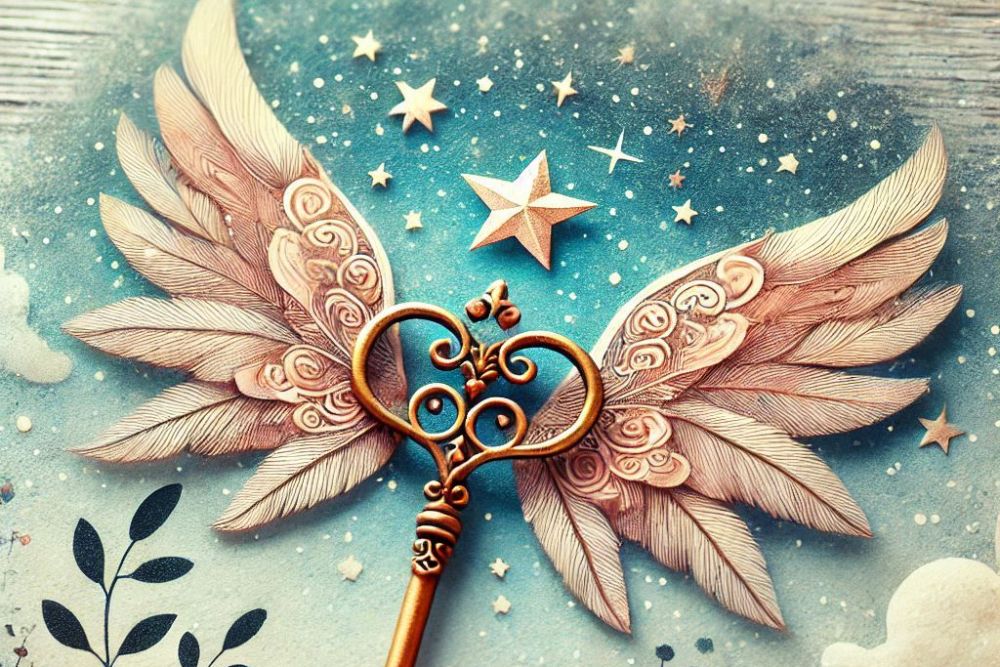
Psychological theories
Psychoanalysis
Psychoanalysis, pioneered by Sigmund Freud and later expanded by Carl Jung, explores the unconscious mind and its influence on behavior and consciousness. One of its key concepts is individuation – which was proposed by Jung himself.
Individuation is a complex process of psychological development that involves integrating the conscious and unconscious aspects of the self. It is a lifelong journey toward wholeness and self-realization, in which individuals strive to become fully themselves.
According to Jung, the meaning of life lies in the process of individuation itself. By delving into the depths of the unconscious and confronting our shadow aspects, we uncover hidden potentials and develop a better understanding of ourselves and our place in the world.
Until you make the unconscious conscious, it will direct your life and you will call it fate.
Carl Jung
Humanistic psychology
Humanistic psychology, represented by figures like Abraham Maslow, places a strong emphasis on human potential, personal growth, and the pursuit of meaning. Maslow proposed that humanity is driven by a hierarchy of needs, ranging from basic physiological ones to self-actualization. The process of fulfilling one’s basic demands and striving for higher stages (until the final level – self-actualization) is key to a satisfying existence.
Individual psychology
Alfred Adler, the founder of individual psychology, believed that the meaning of life is not something to be found, but rather something to be created. According to him, individuals are constantly looking to find their place in the world and contribute to society. This striving, he argued, is what gives life meaning.
Adler’s theory highlights the importance of social interest (community feeling), which stems from the desire to feel significant, belong, connect with others, and contribute to the common good. He believed that by cultivating strong social connections and working toward the betterment of society, one may discover purpose and fulfillment in the process.
Life in general has no meaning. Whatever meaning life has must be assigned to it by the individual.
Alfred Adler
Existential psychology
Existential psychology, influenced by existentialism, explores the human experience and how individuals come to terms with their existence. One of its most notable pioneers is Viktor Frankl – who is known for having developed logotherapy, a form of therapy that promotes the search for meaning. He argued that even in the most difficult circumstances, one may still find a reason to carry on by reflecting on their values, relationships, and contributions to others.
Positive psychology
A more recent field of study, positive psychology places a focus on the strengths and virtues that enable individuals to thrive. Seligman, a leading figure in the field, has identified several key character strengths, such as courage, justice, and wisdom, that contribute to a meaningful life. Cultivating these qualities is essential for one to enhance their well-being and find greater contentment.
Contemporary perspectives
Within recent years, clinical psychologist Jordan Peterson has popularized the idea that life is about finding a mode of being so meaningful that all sufferings become irrelevant. This can be achieved by accepting the reality of suffering, acknowledging one’s own limitations, and striving to embody truth, order, and responsibility.
The more responsibility you take on, the more meaning your life has.
Jordan Peterson
Arts
Throughout history, arts have provided a powerful medium for exploring the profound questions of existence. Within the realm of literature, authors like Franz Kafka, Fyodor Dostoevsky, and Albert Camus have delved extensively into themes of the human psyche, identity, absurdity, and alienation:
- Dostoevsky’s “Notes from Underground”: Through the story of a bitter, alienated man, Dostoevsky’s novel raises questions about nihilism, free will, and the psychological depths of human consciousness.
- Camus’ “The Myth of Sisyphus”: Within his work, Camus examines the concept of the Absurd, where individuals confront their desire to find meaning in a chaotic world.
- Tolstoy’s “Anna Karenina”: More than just a love story, “Anna Karenina” is a sweeping tale of passion, social expectations, and personal fulfillment. As the characters grapple with moral dilemmas and the consequences of their choices, readers are left to ponder questions about existence and morality.
Poetry, with its power to evoke emotions and inspire thought, has been another artistic channel for contemplating the human condition. Throughout history, poets such as Rumi, William Wordsworth, John Donne, and Emily Dickinson have extensively explored themes of love, loss, joy, sorrow, and the nature of reality.
If I can stop one heart from breaking,
I shall not live in vain;
If I can ease one life the aching,
Or cool one pain,
Or help one fainting robin
Unto his nest again,
I shall not live in vain.Emily Dickinson
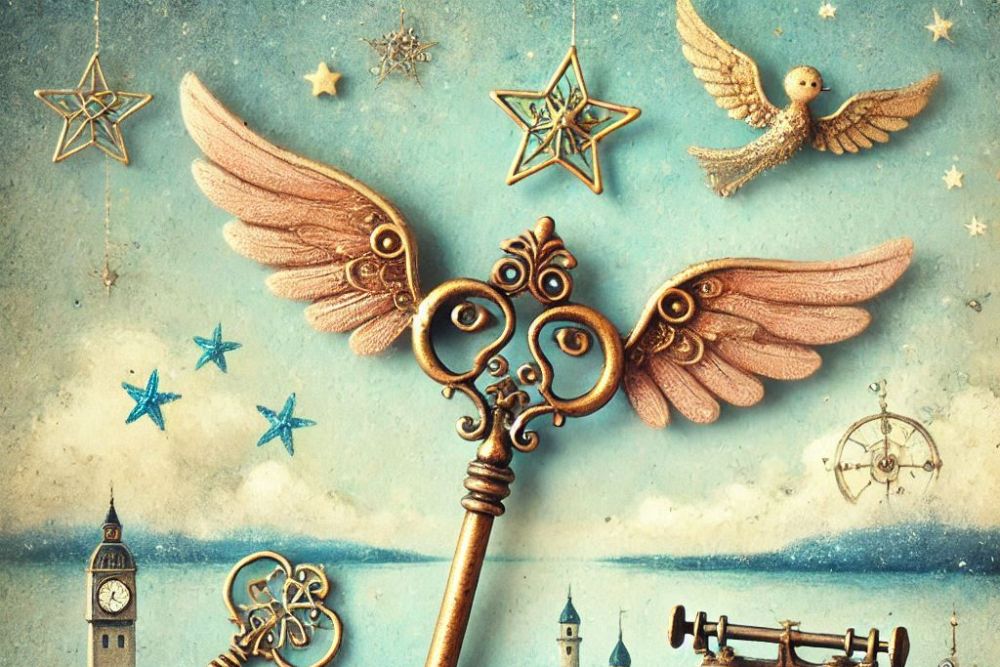
Recently, with the rise of cinematography comes a new avenue for artists to scrutinize the topic. Countless movies are embedded within profound philosophical and spiritual messages – a poignant example is Kurosawa’s “Ikiru” film (which has been mentioned above).
Scientific findings
The concept of “meaning of life” is not something that can be easily defined or measured, due to its subjective and somehow “metaphysical” nature. As a result, conventional science, which relies on empirical evidence and objective measurement, typically struggles to explain it.
That being said, over the years, there have been numerous studies that attempt to shed light on certain aspects of the topic.
- Neuroscience
Neuroscience has made significant strides in interpreting the neural basis of human behavior and experience. Research has shown that certain brain regions, such as the prefrontal cortex, are involved in decision-making, planning, and self-awareness. These cognitive processes are essential for individuals to navigate challenges and construct their own narratives.
- Evolutionary psychology
From an evolutionary perspective, the purpose of life is to survive and reproduce, passing on one’s genes to the next generation. It is this instinct that shaped humanity’s behavior and prompted us to come up with mechanisms that allow us to fulfill it. One such mechanism is to search for purpose and meaning, which – whether through religion, community, or personal development – gives one a better chance of surviving in a chaotic world. It is this drive that motivates us to strive for something significant, make a difference, and leave a legacy.
While this explanation may seem incomplete and debatable, especially to those who prefer a more “humanistic” approach, it does provide an interesting framework for interpreting the reasons behind humanity’s quest for meaning in the first place. At the very least (in my opinion), it speaks about the significance of pleasure and reward. While the pursuit of reward may not be the sole source of meaning, it can certainly push one to strive for a more abundant life.
By actively seeking out positive experiences, finding joy in the present moment, and rewarding ourselves for our efforts, we reinforce the will to live and continue our journey.
On The Origin of Life
An inherent part of the search for meaning is to trace back our origins (in other words, to examine the question “Where did I come from?”) – both on an individual and a cosmic level.
How did life come to be? Are we alone, or could life exist elsewhere? Is our existence a unique accident of nature, or just part of a grand cosmic design?
As mentioned, different worldviews offer distinct explanations. Within the realm of science, various theories have been proposed, including:
- Abiogenesis: The scientific study of how life could have arisen from non-living matter through natural processes.
- Panspermia: This theory suggests that life may have originated elsewhere in the universe and was brought to Earth on meteoroids or comets.
- etc.
And then we have religions, which have also attempted to tackle the topic. Many religious and spiritual beliefs offer explanations for the origin of life, often involving a divine creator, gods, spirits, or other supernatural beings. While their interpretations may differ from each other, most (if not all) point to the existence of an Ultimate Reality that gives rise to everything in the universe.
Philosophers have also speculated about the nature of reality. Some such as Aristotle assert that life is eternal, while others argue that it is simply the result of a cosmic accident.
As of now, no single theory has been defined as the “correct” answer yet. While I highly doubt if humanity will ever come up with a definitive explanation, I still believe that pondering over the origin of creation is a worthy effort – a good starting point for discovering the meaning of life.
Why, you may ask?
Simply, because it enables us to quiet the mind, expand the horizons, and transcend the limited self.
It allows us to notice seemingly trivial things that we may have never paid attention to (in other words, we become more mindful), and appreciate the interconnectedness of everything.
As we grapple with the vastness of the cosmos, the mysteries of nature, and the fragility of our existence, we cannot help but acquire a deeper appreciation for the preciousness of life, the beauty of the world, and the inherent dignity of every being. It is this realization that will drive us to live more consciously, act with compassion, and strive for a more sustainable future.
As Masaru Emoto has beautifully captured in Chapter 3 of his book “The Secret Life of Water“:
In every minute of the day, about twelve comets, some as heavy as 100 tons, fall to earth. These comets are made up mostly of ice. When the ice reaches the atmosphere, it forms clouds and eventually falls to earth in the form of rain to fill the ocean. And since we are mostly water, in a sense we all come from outer space.
You’ve probably gone outside on a clear night to lie on your back and look up at the stars. Did you ever experience a feeling like nostalgia, maybe memories of long ago? When you gaze at the heavens, your soul is taken back in time millions and billions of years. Do you ever get the feeling that you yourself are somehow floating up there in the cosmos, like a planet of one?
…
Imagine you have just returned from a trip into space. You step off your vessel onto our green planet and find yourself standing in a deep green forest. Rays of light filter through the trees towering above you. Fallen leaves soften the ground, and deep-green moss envelops the trunk of a fallen tree. Ferns cover the ground all around you. The sounds of life permeate the air – the flapping of wings, the calling of birds, and the wind whistling through the trees and shaking the leaves.
As you take a deep breath of cool air and let the scents of pristine nature fill your body, you have a deep realization that this is your planet and your birthright. And that is why you must love it and why you do.

Meaning of life
On the other hand, as we explore the philosophical musings of great thinkers throughout history, we are prompted to think deeply about our own core values and beliefs too. Perhaps we are drawn to the Stoic principles of virtue and self-control, or the Epicurean pursuit of tranquility.
Whatever one’s worldview is, a well-defined personal philosophy should provide a sense of direction. When we understand our values and aspirations, we are better equipped to make informed decisions and pursue relevant goals – while at the same time less likely to be swayed by external pressures or to succumb to self-doubt.
One thing I would like to note, though, is that one should not be too obsessed with finding out how life has come to be. After all, the purpose of reflection on the past is to cultivate understanding and acceptance.
When we become too immersed in finding an “ultimate” answer, it is easy for us to lose track of life and forget to live. Additionally, we are likely to be involved in endless, futile arguments with people whose views on life are different from ours.
What matters, therefore, is to leverage our understanding of the past as a foundation for driving what we are doing right now. To make this world a better place to live.
The Meaning of Life is to Follow the “Way” (道)
As discussed previously, people may head in very different directions in search of meaning. That being said, many of them share the same threads (e.g. the importance of human agency, moral qualities, connection with others, contribution to the community, etc.), and all ultimately lead to the same destination: a life of joy, significance, and fulfillment.
After contemplating the various viewpoints on the topic – and drawing from my own experiences, I dare to say:
The meaning of life is essentially about realizing and following the “Way“ (道) – whatever it may mean to you.
Does that sound a little bit exotic to you? OK, let me explain.
In Eastern philosophies, the “Way” or “Dao” (道) is a multifaceted concept that can be used to describe various things. On a grander scale (as reflected in the teachings of traditions such as Daoism), it refers to the ultimate principle underlying all existence – the source of all things, the natural order of the universe, and the cosmic power that shapes creation. In this sense, it can be compared favorably with concepts such as the “Force” in Star Wars.
However, on a personal, less “metaphysical” level, “Dao” can be interpreted as a way of life/ a particular lifestyle that shapes a person’s identity. It involves a set of practices, values, beliefs, and ethical guidelines that guide individuals toward a higher state of being – self-realization, enlightenment, liberation, etc. you name it.
Personal growth, knowledge, relationships, etc. – all of them just represent different facets of the “Way”.

Following the “Way” means aligning one’s actions and thoughts with the natural “flow” – so as to move from the “stream” to the “sea”, and then to the vast “ocean”.
In simpler terms, it is about embracing the fact that we are all part of a larger whole – that we should strive to grow every day, while at the same time cultivating harmony within ourselves and with others.

Meaning of life
“That sounds like some sort of religion!”. I assume that some of you may be thinking so right now.
Interestingly, the term “道” (Way) is widely used in many East Asian languages to refer to religions.
- In Vietnamese, words about religions often contain the character “道” (pronounced as “đạo”). Examples include “đạo Phật” (道佛 – Buddhism), “đạo Thiên Chúa” (道天主 – Christianity), “đạo Cao Đài” (道高台 – Caodaism), etc.
- In Japanese, most terms about religions nowadays use the character “教” (lit. “teaching”). However, “道” is still currently found in the term “神道” (Shintoism – the Way of the Gods). And back in the day, “道” was also found in terms such as “仏道” – Buddhism. (which has now become “仏教”)
- The same phenomenon applies to languages like Chinese and Korean too. (I assume you can do your own research on that)
From my own experience, the notion of “religion” in East Asia differs vastly from that in the Western world. It encompasses something much broader – not simply an organized cult that preaches about an extraterrestrial “entity”.
At its core, it is about a way of life, one that enables individuals to connect with the Divine (天) and the natural world – rather than a hierarchical system with rigid doctrines.
It represents a more holistic approach to spirituality – in that the focus is on ensuring a harmonious relationship between humans, nature, and spirits in this life. Right here and right now.
So as you can see, there is nothing mystic or cult-like about the “Way” (道) at all. Quite the opposite actually.
Following the “Way” can, essentially, be interpreted as finding and practicing your own “religion” – albeit in a much broader sense. (rather than only referring to organized, established religions)
It’s about tuning in to your inner core – intuition, sub-conscious, inner wisdom, conscience, etc. – acting in accordance with the “flow” (instead of resisting it), being humble, and letting the “flow” bring you to the “sea” (something that goes beyond the self).
Despite its Eastern and somehow mystical origin, the essence of “Dao” resonates with similar ideas in other traditions – both secular and non-secular. Whether it’s the Daoist concept of Dao, the Buddhist notion of the Middle Way, the Christian doctrine of “the Way, the Truth, and the Life”, Aristotle’s concept of eudaimonia, or Nietzsche’s idea of self-overcoming, the underlying idea remains the same: a path toward self-discovery, holistic maturity, and ethical living.
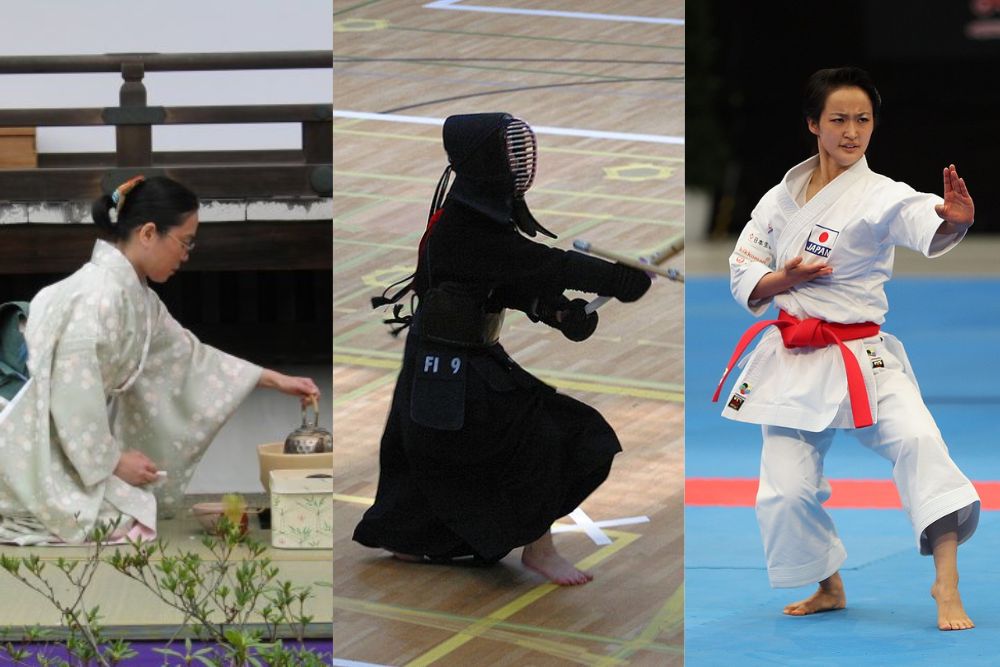
More than just conventional religions: Traditions such as Sadō (茶道), Jūdō (柔道), Kendō (剣道), Bushidō (武士道), etc. also incorporate the concept of “Way” (道)
Source: Wikimedia Commons
The beauty of the “Way” lies in its personalized nature. It’s a unique path that each individual must discover for themselves. While there are universal principles and guidelines, the specific journey varies from person to person:
- Artistic expression: For a painter, the “Way” might be to create art that evokes deep emotions and inspires others to live an abundant life.
- Scientific pursuit: A scientist might find their “Way” in discovering new knowledge and contributing to the betterment of humanity.
- Spiritual practice: A seeker might seek enlightenment through mindfulness practices.
- Social activism: A social activist might dedicate their life to fighting for justice and equality.
- Parenthood: A parent might find fulfillment in raising children and guiding them on their own paths.
“OK, then how do I find my Way?”. Some of you may ask.
Well, the answer is not so straightforward (we will go over it in detail later). As of now, I would like to share some common signs that indicate that you may have discovered your own “Way”:
- Inner peace: A sense of authentic contentment and fulfillment.
- Positive impact: Feeling that you are making a positive difference in the world.
- Alignment with values: A deep alignment between your actions and core values.
All in all, it’s about attaining a state of “flow”. Of giving in and losing the sense of “self” as a result. When that happens, as author Ken Mogi has described, “things such as daily chores will even become enjoyable”.
If you notice yourself doing something in a state of “flow”, congratulations! You are on the path toward realizing what is meaningful to you.
The only problem left is, are you willing to embrace it? Are you willing to let go of social expectations and the praise from others – and let yourself be transformed?
The act of living is the act of flowing. When your soul is allowed to flow, you feel a burden lifted from your weary body, for the soul and the body are simply two sides of the same coin.
Masaru Emoto

Meaning of life
One more thing I would like to talk about the “Way” is its multi-dimensional nature; specifically, it covers a wide range of aspects of life and does not necessarily have to be confined to career/ professional development.
At its core, the “Way” is a representation of one’s view on life, their values, and the world. It is these perspectives that separate humanity from other creatures and enable us to navigate life’s ups and downs with grace.
- View on life
This refers to one’s personal philosophy, including their beliefs about the reason for existence and attitudes toward things such as death, happiness, and suffering. It is this outlook that shapes one’s goals, priorities, and how they approach challenges.
Depending on each individual, it may manifest as a belief in an afterlife or reincarnation, a focus on material success or spiritual fulfillment, or an emphasis on living in the moment or planning for the future.
- Values
These are the principles, standards, or qualities that a person considers important or desirable; examples include:
- Honesty, integrity, compassion, and loyalty.
- Family, friends, and community.
- Success, wealth, social status, equality, and freedom.
Typically shaped by factors such as culture, upbringing, and personal experiences, our values serve as the moral compass that guides our choices, decisions, and relationships in life.
- Worldview
Your worldview is essentially the lens through which you perceive the world. It entails your overall perspectives on reality – including the nature of the universe, society, and humanity – which play a key role in determining your interpretation of current events (e.g. being optimistic or pessimistic about the future), political views, and tendency to interact with other people (e.g individualistic or collectivist).
Key questions:
- What is the nature of reality?
- How do we know what is true?
- What is the relationship between humans and the natural world?
Examples:
- Materialism: Reality is based on matter and energy.
- Idealism: Reality is fundamentally mental or spiritual.
- Relativism: Truth is subjective and varies from person to person or culture to culture.
- etc.
The views on life, values, and the world, while seemingly distinct, are actually interconnected and often influence each other. For example, a person with a strong belief in karma is likely to adopt values centered around compassion and non-violence; additionally, they are more likely to interpret events in life as a cycle of cause and effect. (e.g. the suffering or bad incidents that happen to one now are the result of their past wrongdoings – whether in this life or the previous lives; hence, they should focus on doing good deeds now instead of complaining or whining about their misfortunes. At the same time, others are encouraged to demonstrate compassion to those in misery – i.e. to override one’s karma with their own Dharma)
How I Found Out My “Way”
Now come my personal anecdotes. I find it pretty challenging to sum up my “Way” into a single sentence; hence, I will go over my previous life stages point by point. Hopefully, through my sharing, you will have the chance to better understand yourself and find the answer on your own.
One thing I have noticed is that people often associate things like purpose and the meaning of life with their careers. While that is understandable, I believe there is more to life than just what one does to make a living. Specifically, we need to have a clear understanding of our core values and personal philosophies.
As such, I would like to divide my sharing into three separate sections.

What defines life
Career path
As of 2024, it has been 7 years since I first entered the labor market. For the last 7 years, I have been through a total of 4 companies in 4 different fields: retail, healthcare, business training, and digital marketing.
To me, these 4 stages somehow reminded me of the 4 seasons in the year. A series of transitions, each one a stepping stone on the path toward realizing who I am – and what I hold dear most.
Spring: A budding career
In 2017, fresh out of university, I had very little idea of which direction to take and only wished for a place to work. After a few attempts, I got a part-time job as a translator at a Japanese retail company for 2 months.
Somehow, after 2 months, the department manager decided to retain me and offered me the position of Content Officer – whose role was to create product content for the company’s e-commerce site.
At that time, I just knew that I loved content creation (though I was not sure why yet), so I happily accepted it. As a junior at that time, I just loved having a job to do and learn new things (even if these “new things” were actually trivial in the eyes of more experienced people).
Like a young sapling, I was eager to soak up knowledge and experience, excited about the opportunities that lay ahead. Not to mention, I felt that the company’s working environment was really friendly and cooperative (compared to some Vietnamese companies where I had worked for a short time before), so why not?
Initially, everything was fine. The work aligned with my intuition, igniting a spark of creativity. I was eager to learn and grow, feeling as though I was on the right path.
However, as time went on, the once-promising task of crafting engaging product descriptions gradually transformed into a monotonous cycle of data entry.
I was supposed to create hundreds of product pages for the company’s e-commerce project on a weekly basis. No clear requirements in terms of content quality – what mattered was just to meet the numbers.
Many times, I received no information on the products I had to write about from the merchandising department, so I ended up copying content from other e-commerce sites. You can imagine what it was like, can’t you?
I worked like a robot, not a real person. Just copy & paste; no creativity, no skills at all! Like how the character Kanji Watanabe in “Ikiru” does his job – just stamping papers and directing all requests to other departments.

A far cry from the stimulating work I had envisioned.
As the tasks became increasingly mundane, I felt a growing disconnect between my work and my true purpose. It was as if I had strayed from the path, losing sight of the “Way.”
My enthusiasm began to dwindle. I found myself trapped in a repetitive routine. The spark that had ignited my passion for the job soon became extinguished, leaving me to question my career trajectory and the value I was adding to the world.
Despite the dissatisfaction, I hesitated to make a change. Fear of the unknown held me back, and I clung to the familiar, even though it was no longer nourishing my soul.
To a certain extent, I was still able to find meaning in the connections I shared with my team members (many of whom I still stay in contact with up to now; one of them I even regard as a mentor).
I loved their friendliness. I cherished the many times we were in the warehouse together to process customers’ orders. And I enjoyed the parties that the team occasionally held (everyone was so warm-hearted that I completely forgot all of my “suffering” at work while dining with them).
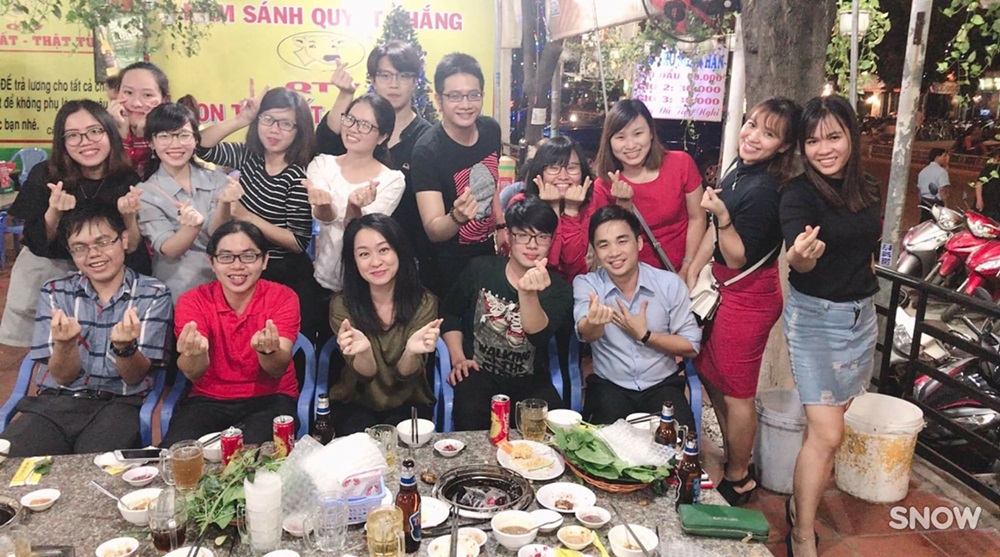
At the same time, I also adored the transparent policies and the cooperative working culture at the company (something that I never experienced again in other companies). As a result, I hung on, despite my feelings of resentment toward my work.
I stuck to this monotonous job for 2 years, until I finally made up my mind and decided to take a “leap of faith” – driven by the awareness that if I didn’t change soon, I would never be able to.
Despite the advice that my team leader and department manager gave (they both encouraged me to reconsider my decision), I decided to follow my heart – even though I didn’t know where I would end up yet.
I knew for sure that for the last 2 years, I had not been able to develop my professional skills, and my inaction would cost me – or even drive me to insanity – if I continued letting it dictate my choices.
And deep down, I realized that I was not drawn to the retail industry. Despite not being aware of where my calling was yet, I knew that it had nothing to do with retailing or merchandising.
At that time, I was somehow divided between continuing an office job and taking a different route. As my English skills were decent compared to the other employees (I assume you can imagine how it feels to communicate in English within a traditional Japanese company), my team leader once suggested that I work part-time as an English teacher.
To be honest, this was something that I used to think of while in university, although I didn’t really embrace it (probably because I, due to peer pressure and people’s opinions, regarded teaching as a lowly job – one that did not match my university education and did not come with a career ladder).
That said, the idea still popped up in my mind from time to time – and my team leader’s comments made me think a lot.
Lessons:
- Despite the stagnation, this 2-year period has taught me the importance of tuning in to my intuition and making bold decisions, even when the path ahead is uncertain. Just as nature sheds its old leaves to make way for new growth, so must we let go of the familiar and embrace the unknown when the time comes.
- The early stages of life/ career are a time for exploration and experimentation, where we sow the seeds of our future. Don’t be afraid to take risks, accept failure, and learn from mistakes. For it is through these experiences that one may truly blossom.
- Sometimes, we can derive meaning from things such as relationships and better endure hardships as a result. That said, such a sense of meaning is subject to change, for it comes from an external source – not from inside. There is no guarantee that it will stick once conditions are changed or enough time has passed.
Summer: A period of discovery
After leaving my first company, I managed to land a job at a healthcare startup (specifically, a medical tourism business). To be honest, the pay wasn’t what I expected (if not worse than my previous company); however, I just grabbed the chance because I really liked the CEO (after having a discussion with him in my interview), and because I was drawn to his vision.
Initially, the company’s motto of “connecting patients to the best healthcare providers at the most affordable prices” resonated with me. Not to mention, the promise of creative freedom, a flat organizational structure, and the chance to work with a diverse international team (which means I can both improve my professional skills and practice English at the same time) – all of them I found truly refreshing and enticing.
However, as the months passed, a sense of disillusionment began to creep in.
The company’s focus shifted from its original mission to a more profit-driven approach, prioritizing short-term gains over long-term impact. Instead of promoting all types of treatment, they decided to place a strong emphasis on experimental, yet costly therapies such as stem cell injection. Simply, because these generated a great deal of money.
It became increasingly clear to me that the company was more interested in capitalizing on trends than providing genuine value to patients (though I can somehow sympathize with the decisions of the CEO back then, given that he had to prove that the business was growing to retain the investors/ stakeholders). The shift in strategy raised ethical concerns and conflicted with my personal values.
For people with virtually no medical knowledge to promote an unchecked medical solution… For a healthcare business to adopt a purely e-commerce mindset… I just felt that something was deeply wrong.
…
The once vibrant and collaborative work environment became increasingly fragmented. The lack of clear direction and internal power struggles (which I would prefer not to discuss in detail) resulted in an unwelcoming atmosphere that stifled innovation. In the end, the company was essentially divided into 2 “sides”, and most of the staff just came to work seemingly to get their pay instead of contributing to a greater whole.
What a stark contrast compared to the harmonious and supportive environment I had experienced in my previous role!
Amidst this chaos, I began to question the true meaning of work. Was it merely a means to an end, or was there something more to it? Should I care too much about what I did, or should I look for a path that resonates with my values and priorities?
After all, what did I care about anyway?
It didn’t take long before I realized that I was drawn to roles that allowed me to connect with people on a deeper level, to inspire and educate. The opportunity to shape young minds and empower people to reach their full potential was incredibly fulfilling.
The idea of becoming an English teacher came back to me, causing me to end up enrolling in a TESOL course.
However, I still only thought of teaching as a part-time job to sustain my living, not something to pursue seriously yet. The traditional view of teaching as a less prestigious profession than a traditional office job lingered, and I struggled to reconcile my aspirations with societal expectations.
While teaching held some appeal, I felt a stronger pull toward the world of digital marketing. After all, I had been working as a content creator up to that point – and becoming a full-stack digital marketer, I assumed, was just a natural upgrade. Not to mention, the blend of creativity, data analysis, strategy, and technology just seemed really appealing to me (and fitting my work experiences too).
One day, I stumbled upon a new opportunity – when I received an email from the manager of a business training provider asking if I would be interested in working for them.
Somehow, I felt as if I had found a job that matched my vibration – my hadō (波動). I didn’t know why, but for the first time, my soul felt as if it had spotted a “light in the darkness”.
The role seemed to align perfectly with my skills and interests, and I felt an immediate connection to the company’s mission. It was as if I had finally found my true calling – one that would allow me to use my talents to make a difference in the world!
Trusting my intuition, I went to the interview and was then offered the position.
Lessons:
- Despite the disillusionment, this period has enabled me to gain a deeper understanding of the complexities of business. While the initial allure of the startup’s mission was strong, the reality fell short of the ideal. It was a stark reminder of how one may end up if they did not start from a solid philosophical foundation.
- At the heart of the meaning of life is the ability to connect with our true selves, align every action with our values, follow our passions, and contribute to the greater good.
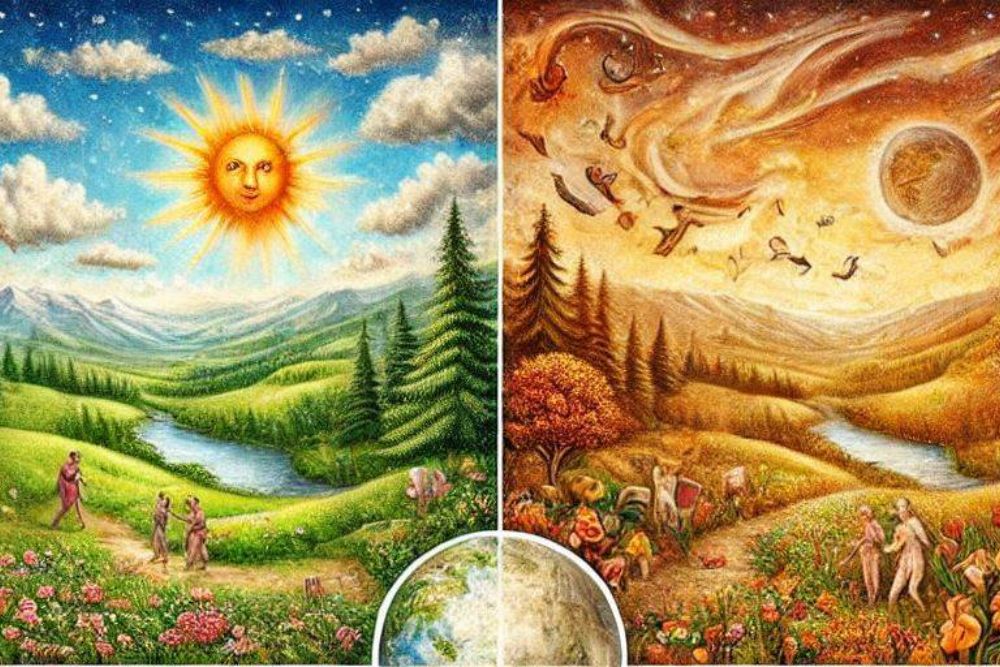
Meaning of life
Fall: A season of crisis & re-evaluation
I entered my life’s new chapter full of hope and enthusiasm. I upgraded myself and became a full-stack digital marketer at a mission-driven coaching & training organization. Its motto of “Transforming leaders & changing the world for the better” resonated with my values, and I was eager to contribute to this noble cause.
After all, I found coaching something really fascinating (even though I did not fully understand its nature yet at that time). I just felt that it was an amazing way to help people. Maybe my passion for it had to do with my previous life experiences and educational background too…
Initially, the company’s culture seemed supportive and inspiring. Everyone seemed so nice and helpful (to the point that many times I felt as if I was at home rather than at work). However, it soon dawned on me that there were various things I was not psychologically prepared for.
It was not long before I discovered that I was working in a family business, whose main focus was more on self-promotion and luxury clientele than on making a genuine impact. Their key message was always about “the best” rather than “better”, and the management seemed to be extremely obsessed with winning clients from multinational organizations (who, they believed, had “more money to spare”).
I then found myself caught in a dilemma. While I believed in the power of coaching and personal development, I could not come to terms with the company’s execution. I had been looking for a more inclusive and egalitarian philosophy – one that prioritized the collective good over individual gain. Something that resembled that of Kyocera and other similar ideologies. Not something that was only about promoting certain so-called “gurus” like this.
The whole business operation, I found, was just too centralized. Everything important (especially those that concerned spending money) had to be controlled by the Headquarters (HQ); the other branches just needed to follow suit and focus on selling/ winning clients on their own. Very few updates about strategy were regularly informed to those working in the branches (maybe except for a few quarterly meetings – which seemed to me to be more like an opportunity for people to brag about themselves rather than to learn and work on any clear agenda).
I felt as if I was trapped in a crisis. Had I made an ill-judged choice? After all, why did I feel so thrilled in the beginning? What was wrong?
Eventually, I decided to take matters into my own hands and did a lot of seemingly “rebellious” things that upset the established norms (e.g. creating a local website for more control over marketing activities; setting up a self-managed mailing system instead of using the one used by the Headquarter – which only sent emails to Spam, etc.).
My actions were driven by a sense of self-righteousness. I did not mean to challenge the status quo; I just believed that what I was doing was “right” (and hence I took full responsibility for it).
Now reflecting on this period, I realize that I have not been very wise in every decision. That said, I acted purely out of personal conviction, and it was my conviction that gave me a sense of meaning to continue the job (despite indifference/ opposition/ suspicion from others).
It was as if there was some kind of a warrior spirit “burning” inside me at that time!
Some of my actions may have been perceived as disobedient; however, they all stemmed from a sincere desire to make a difference.
That said, even the greatest conviction has to come to an end at some time.
…
As one year passed, so too did my hopes and dreams for this particular role. I realized that my values and aspirations were not fully aligned with the company’s vision (even though I did not quite understand the reasons why at that time).
It was a painful realization, but it was also a necessary one.
Lessons:
- While the external circumstances may not always be ideal, our inner strength and resilience will guide us through the darkest times.
- Even when faced with adversity, one may still find meaning if they have a core set of values to stay true to.
- While my intentions were good, my methods were sometimes misguided. In other words, I was too rigid and self-righteous. Now I have internalized the importance of diplomacy and compromise, as well as the value of patience and perseverance. Standing up for one’s beliefs is essential; yet it’s equally important to approach conflict with empathy and understanding.
Winter: A time of reflection and renewal
As mentioned, after one year of working full-time at the Coaching & Training organization above, I felt as if my dream had been broken. My only wish was to leave – I no longer cared about where I would end up. Anywhere was fine to me.
And so, incidentally, I found myself “drifting” to a digital agency (while still working part-time for the previous employer). To the outsiders, everything about this job seemed fine – the pay, the projects, the fame of the clients, etc.
However, I felt very empty inside (which, I assumed, was an effect of leaving my full-time job at the previous company – where I had thought I would spend my lifetime). I no longer felt emotional in my work; I just did what I was told to do without even caring for the reasons behind it.
It was as if I had fallen into a deep slumber, a state of apathy and indifference. The spark that once ignited my passion had been extinguished, replaced by a cold, empty void.
While working at the agency, I often found myself given a bunch of random tasks (many of which seem very trivial and nonsense to me) without having a faint idea of the “why” behind them. From time to time, I was given tasks like:
- “Audit this website for me”
- “Draft this proposal”
- “Propose an optimization plan for this potential client”
- “Fill in this section of the proposal”
- etc.
And I just did, without even being informed about or questioning the cause behind that. After all, team spirit, I felt, was very low at the company. Everyone just acted individually, and my so-called manager at that time seemed not to be bothered much by my presence. Many times, he acted as if he was the only one on the team.
When I handed in my work, it was a norm for the management to change metrics/ data/ texts in my proposed plan without even giving an explanation (sometimes they even turned it into a completely different plan). Then I got no updates if a proposal worked or not – or if a lead was converted or not (unless I asked about it).
A bunch of days just went on and on. Sometimes, because of time constraints and the very little information I received about the client’s business, I ended up copying from previous templates (just changed some words and metrics) so that I could just get away from it.
But there was always a voice in my head that whispered: “So boring, so meaningless!”
Many times I caught myself wondering: “Why do I care about meaning anyway? Just do what you are told to do and receive your monthly pay – that’s all that matters!”
I kept repeating things like that, but deep down, I knew something was inherently wrong. That I was working and living like a zombie. That it was not the authentic “me”. Not the one who burned with the “warrior spirit” one year ago.
Deep down, I knew (even though I hated to admit it) that my vision lay at the previous company. Or, to be more specific, the coaching & training industry.
…
And then, a new manager joined my team (he has now become, kind of, my spiritual mentor). His passion, integrity, and unwavering dedication to work later ignited a spark within me.
It was he who awakened me from my “spiritual hibernation” and reignited my sense of meaning.
Many times, I saw him enthusiastically debate with and challenge the Head of Operation/ CEO – even though he was not able to speak English well (hence he struggled a lot while discussing with them/ explaining his vision). As I observed him, I could not help but recall how I had acted in the same way while in the previous company.
I thought and thought a lot. Day by day, my passion was slowly rekindled.
At the same time, the various conversations I had with that manager prompted me to think about many things in life – not just about work. They caused me to re-evaluate my worldview and outlook on life.
…
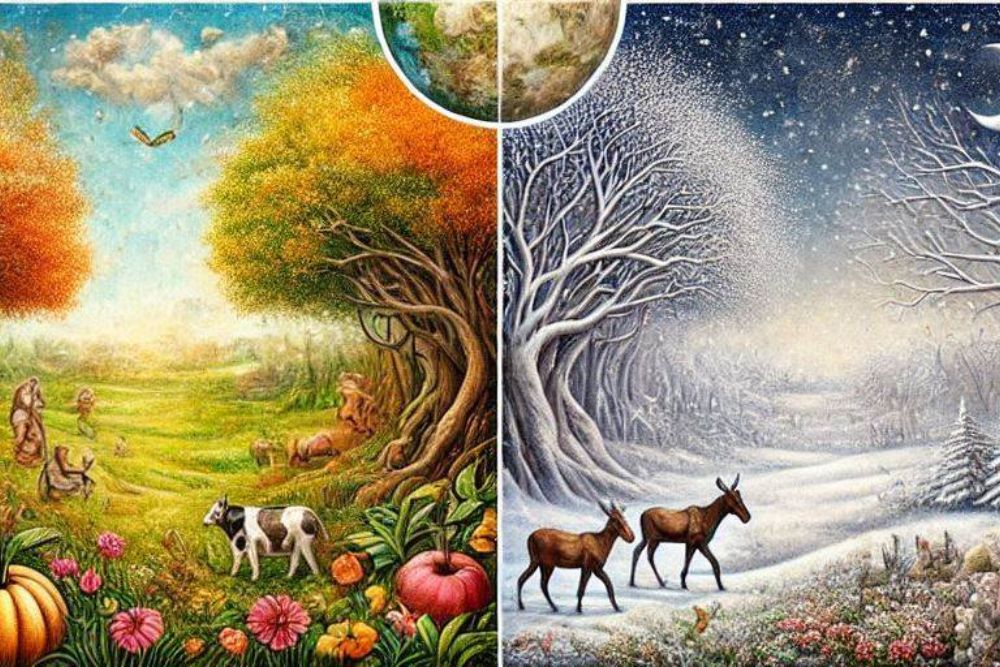
Meaning of life
Time passed, and things became clearer to me. Among the many realizations I came up with, one of them was about the role of work in my life.
I recognized that a traditional corporate career (especially in an industry like Digital Marketing) was not the path for me, as its over-emphasis on profit did not align with my values.
Not something too focused on making money. Not one that just chased vanity stuff like social trends. Not one that was too eager to embrace things like AI – without taking ethical concerns into consideration. Not one who was ready to slack people and put more work on the current employees – just for the sake of saving costs.
Something more meaningful, more “humane”. Something that had to do with human development (which was the reason I was drawn to the coaching business previously).
My true calling, as I figured, lay in helping others, in guiding them on their own path. Not in the business landscape.
With this new insight, I decided to take a leap of faith and resign from my position – without applying for any other company.
Leaving the corporate world was a daunting decision, but it was one that I did not regret. After all, it gave me more time and quietness to reflect on my life up to then and pursue my own agenda.
Years back, when I was still in the previous company, I used to think about creating a website that catered to something in the self-help niche. I didn’t know what it was about yet, so I did not proceed with it.
However, as I was about to hand in my resignation, I started to seriously think about it.
“What is the specific self-help thing that I care about? Who am I?”
And then a keyword came to my mind: self-discovery! It was at that point that I kickstarted this blog and embarked on a journey of self-exploration.
After a time working on this blog, I recognized the more specific things related to self-discovery that I was passionate about. One of them was about understanding human behavior; in other words, Psychology in general.
I remember back in university, I was somehow thrilled when introduced to the Marketing subject. At that time, I was not quite sure why.
Now that I know myself better, it seems to me that the reason for my interest had to do with the fact that Marketing enabled me to glimpse into the “psyches” of people. In other words, to better understand myself and others.
I realized that after all, it was not Marketing that I was interested in – but Psychology!
I was drawn to Marketing not because of interest in business, money, social trends/ memes, or the ability to “manipulate” people. But because of the wish to understand people (or so it seems).
After all, psychology is closely related to coaching (which I am deeply interested in). Most renowned coaches today have an educational background in psychology. So it seemed to me that learning about psychology is just “a stone that hits two birds”.
This newfound “revelation” ignited a fire within me. I felt a sense of purpose and direction that I had been missing for so long!
Researching psychology on my own has enabled me to understand more about myself and people – as well as to act more calmly in the face of life’s problems and the annoyances caused by others.
…
And then as time passed, I found out one more thing that I cared for even more deeply: Philosophy!
Philosophy, after all, is about seeking truth and knowledge – something that I have always been fond of since I was a high school student. The human condition and the nature of reality – these are topics that philosophy deals with and are themes that have drawn my attention from time to time.
I remember back in the day, I was deeply passionate about self-expression activities like drawing, writing fiction novels (well, if I can call those childish books “novels”), playing instruments, and vocalizing. About seeking truth and attaining knowledge.
Philosophy, I think, is just another way to revive these interests – albeit in a more mature and holistic manner – and reconnect to my “inner child”.
So again, I found another gem hidden within my mind!
Some people may think that I have been drifting too much among different fields. That said, I believe that what I have been doing up to now all boils down to the same core: contribute to humanity as a whole, while letting go of the self in the process.
This, as I have figured out, is my “Way” in life. My “Dao”. My “religion”!
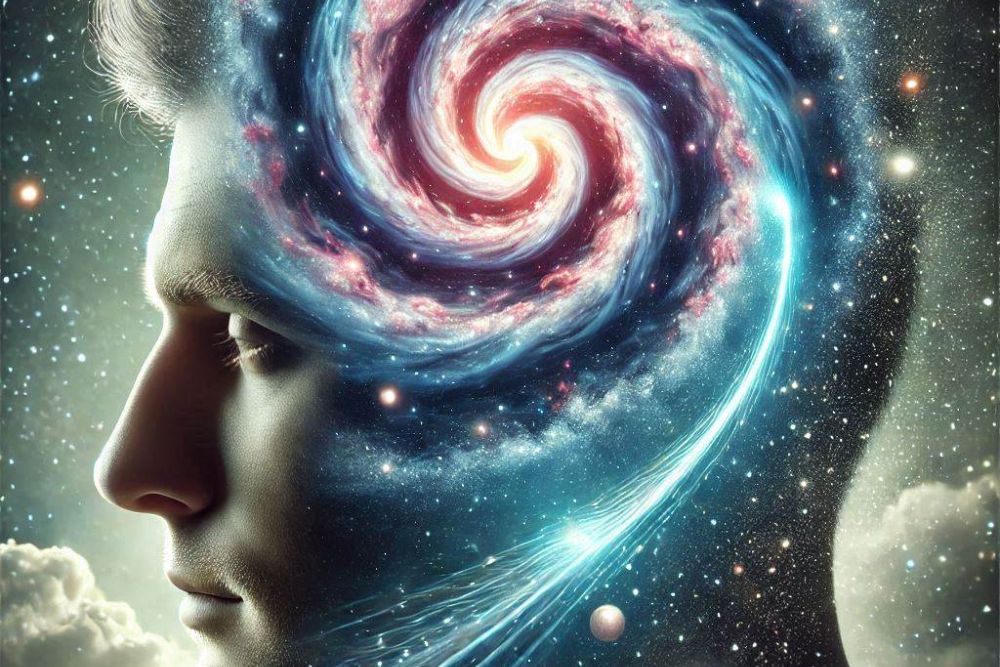
Meaning of life
…
As of now, it has been one year since my retirement from the last company. One “gap year” of reflection, writing, meeting different people, and reuniting with my previous colleagues/ friends has allowed me to get back on track and gain clarity in myself. Not to mention, it has also taught me the importance of slowing down, enjoying the moment, savoring my connections, saving money, managing my own finances, and practicing self-mastery – among other things.
To be honest, I am still in the process of peeling layers within myself. That said, as of now, I believe that I am on the right path.
Sometimes, I feel as if I was treading in a maze – or as if I was working on a puzzle. Slowly piecing things together – like Yugi solving the Millennium Puzzle. Like Pharaoh Atem navigating the labyrinth within his mind searching for his “true name”.
The process of solving my life’s “puzzle”, while challenging and filled with unexpected twists and turns, makes me feel exhilarated. It causes me to feel as if I am living the most abundantly.

With each “piece” that I manage to put into the bigger picture comes newfound knowledge and a boost to my sense of purpose. Though the future is uncertain, I am ready to embrace it. For I am no longer a mere cog in a machine; I am a creator, a thinker, and a seeker of truth!
I am ready to move on – and begin a new chapter in my life!
Spring, Summer, Fall, Winter… and then Spring!
Lessons:
- The pursuit of meaning is an ongoing journey. It is a process of constant exploration, experimentation, and evolution.
- It’s better to find meaning in the moments instead of trying to discover the “ultimate” meaning of life. What matters to us in the past may turn out not in the present and future; as such, we should never be afraid of taking “leaps of faith”.
- Instead of letting people dictate your choices, listen to what your heart has to say. For it KNOWS the answer. For it is a tangible manifestation of the “Way” within you.
- From time to time, we need to carve out moments for self-reflection – not to blame or pass the buck, but to understand. To realize that we have been “wandering” aimlessly mostly because of ignorance (i.e. lack of knowledge) about ourselves, others, and the world.
For the meaning of life differs from man to man, from day to day and from hour to hour. What matters, therefore, is not the meaning of life in general but rather the specific meaning of a person’s life at a given moment.
Viktor E. Frankl
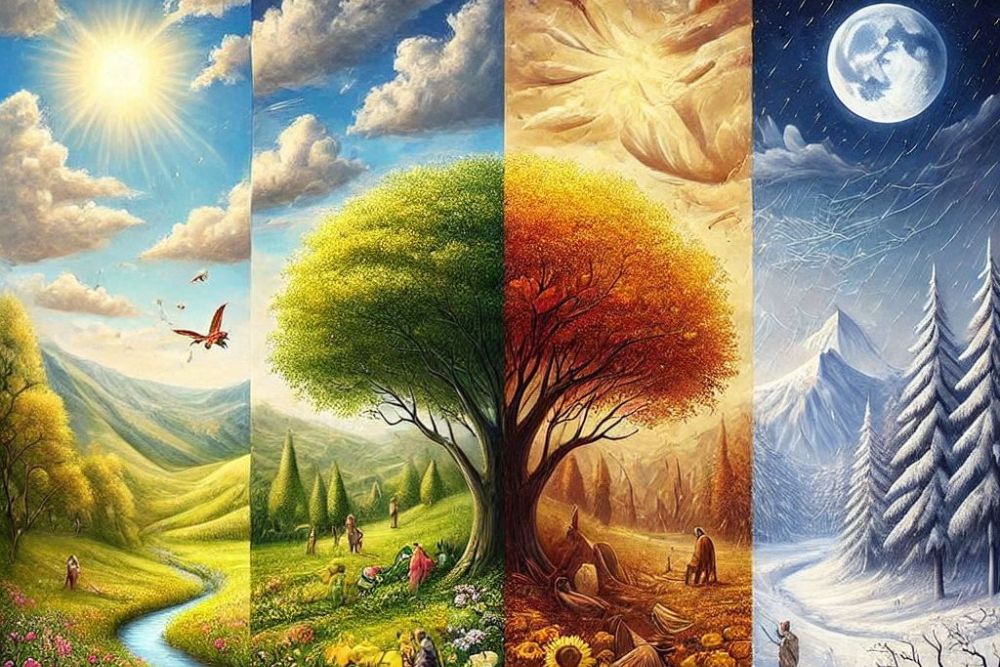
Personal values
Anti-materialism
One thing I know for sure about myself is that I’ve always been drawn to a minimal, even ascetic, way of life. While I appreciate the comforts and conveniences that material possessions provide, I’ve never been particularly materialistic. Many times, talks about luxurious lifestyles even repel me – physically and mentally.
Perhaps this has to do with a deep-seated belief (whether as a result of previous experiences or karmas or whatever) that true wealth comes from factors within (e.g. honor, dignity, intellect), not from external ones. A very “Stoic” mindset, I might say.
I remember once reading “The Autobiography of Fukuzawa Yukichi” and came across the following passages in Chapter XIII:
I was very careful and scrupulous in spending money, but in the art of making money, I was indeed very indifferent. I do not mean that I was not informed, or that I had no knowledge of the general principles of business – but simply that I had no taste or inclination to engage in buying or selling, lending or borrowing. Also, the idea of the samurai that trade was not our proper occupation prevailed in my mind, I suppose.
…
In the early years of the Restoration, I translated a book on the methods of bookkeeping, and I know that all the current texts follow the example of my book. So I should know something of the practice, if not enough to be an expert. But apparently the brains of a writer of books and those of a businessman are different; I cannot put my bookkeeping into use. I even have great difficulty in understanding the files which other people make. Of course if I made a special effort to work them out, I could no doubt decipher them, but I prefer to leave all these things, including the accounts of my school and my newspaper, to younger men, my only concern being the final figures.
…
It must hark back to the inborn nature of the feudal samurai, or to my old habit of student’s desk-drawer accounts.
When I ponder over these passages, I cannot help but sympathize with Yukichi’s viewpoint. After all, to a certain extent, I have been thinking the same way too – disconnected from the conventional pursuit of financial success.
I’ve always been more interested in abstract concepts than in money. The thought of haggling over prices, or the cutthroat nature of business negotiations, has never appealed to me.
I’ve often felt more at home in the world of ideas, where the focus is on understanding and creating, rather than acquiring and possessing.
While others may be captivated by the allure of material possessions and personal reputation, I find myself more intrigued by the depths of human thought and the pursuit of knowledge.
It’s as if I’m wired differently, with a mind that yearns for philosophical inquiry and spiritual exploration rather than the pursuit of wealth and status.
It has got to the point that sometimes, I decide to just settle a financial dispute or a stagnated task by paying the money myself. Too much trouble, that’s just how I think.
To some people, what I do may seem foolish or even arrogant. “Fine”, I think. “Spare me the talk about money!”
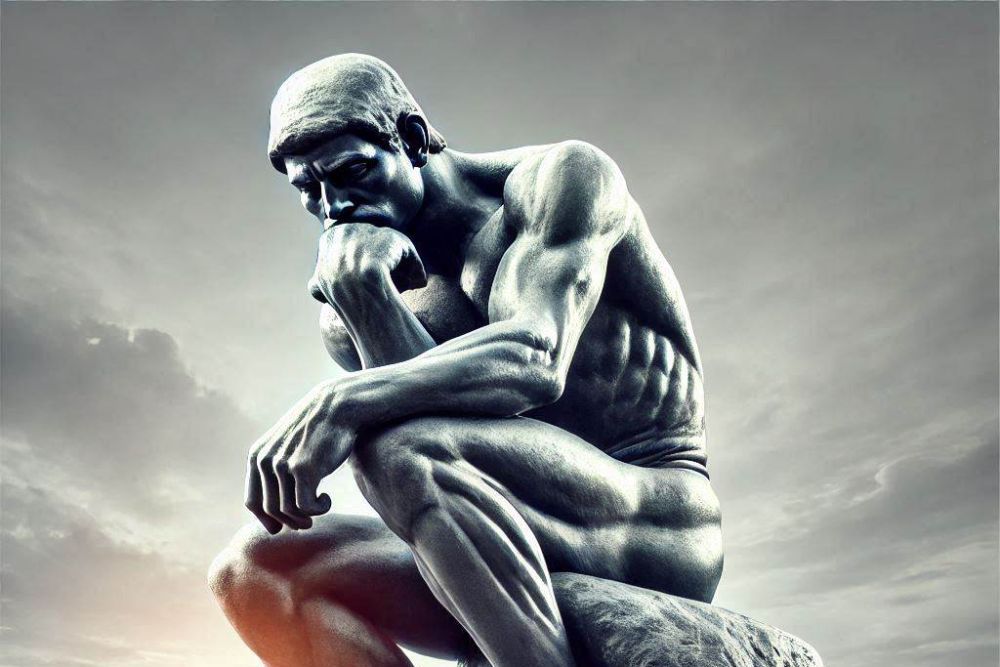
Meaning of life
I recall being more interested in books and imaginative play (e.g. building an artificial “Jurassic Park” from my dinosaur figures) than in toys and gadgets when I was a kid. As I grew older, this inclination only deepened.
While my peers were focused on the latest trends and brand names, I was more concerned with understanding the world around me and my place within it.
Ironically, I later chose to pursue a degree in International Business at a prestigious university in my country. However, I made such a decision only so that my parents could comfortably “boast” about me when talking with their neighbors, friends, and relatives – rather than being “humiliated” by rude and mean comments from some of them.
Deep down, my heart was never truly in business. The focus on profit, market share, and financial metrics – I just felt that they were hollow, unsatisfying, and even appalling.
Inside, I yearned for a more meaningful pursuit (though at that time, I was not aware of what it was yet).
In recent years, I’ve come to realize that I’m drawn to careers that allow me to help others, to make a positive impact on the community – whether it’s through volunteering, coaching/ mentoring, or simply offering a listening ear.
It’s not that I completely reject the need for financial stability. However, I believe that work should contribute to the greater good. While financial compensation is important, it should never be the primary motivator.
It’s this belief that has been guiding my choices, shaping my life, and rewarding me with a sense of meaning up to now.
It is this underlying premise that has drawn me to the coaching & training industry, prompted me to act “rebelliously” while working at the third company, and caused me to never stop recalling my time at that company (even after I was no longer employed full-time there).
My “Way” is not that of a businessman or a traditional office person, but that of a scholar!
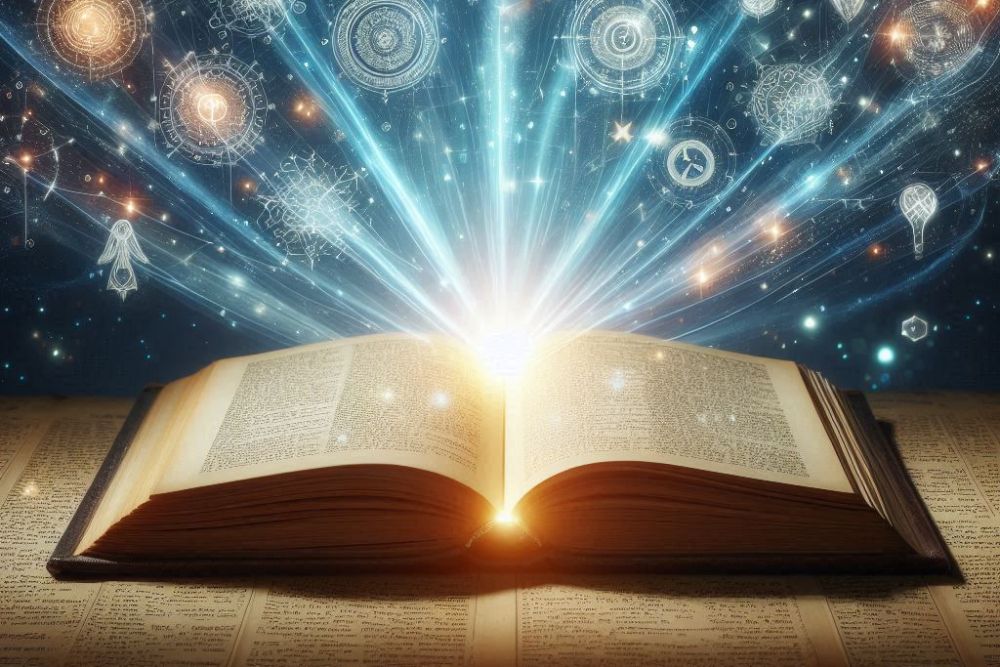
Meaning of life
It’s not that I’m completely immune from the allure of materialism. I remember in February 2024, I got into a mental crisis and somehow could not find meaning in what I had been doing (specifically, concerning this blog).
I have now recognized the reason why. It was because I attributed meaning to vanity metrics and achievements such as website traffic and revenue. Because I was too concerned about the potential to earn profits and sustain my life by developing this blog.
To a certain extent, I might say that at that time, I was still somehow obsessed with my previous life path. I still clung to “what was”, instead of embracing “what is”. In other words, I was “lukewarm” – neither “hot” nor “cold”.
A lesson for me, I guess. As soon as I realized that, I decided to adopt a new direction. Like the philosophy that Inamori has chosen for Kyocera (“Respect the Divine and love people” – 敬天愛人), the purpose of this blog would be to serve the community – not solely for my personal gains.
Within my ability, I would do my best to refrain from lowly tactics that marketers and those fascinated with AI/ money-making often resorted to (e.g. creating a bunch of low-quality, “trash” content using automated tools; spamming forums, etc.).
Somehow, I felt that this direction deeply resonated with teachings such as the Golden Rule (“Treat others as you would like them to treat you”) and the Christian tenet “Love the Lord – Love your neighbor”.
While taking care of this blog has cost me the time to do some part-time jobs and other things that would have helped me earn more money and ensured financial stability, I do not regret my choice.
For I know that there’s a meaning to what I have been doing (even if I’m just making that up in my mind).
Even if my blog or monthly editions have no readership, I will continue doing my work, just like how a student would regularly hand in his assignments to his professor. For I know that what I’m doing is contributing to the society – to many people out there. That I will become a different, better person after each new piece of content is published. That there is a reason behind what I’m striving for.
If anyone is to counterargue by saying that such an anti-materialistic viewpoint is foolish or “dehumanizing”, I have only these words for them:
Remember that you must die – someday!
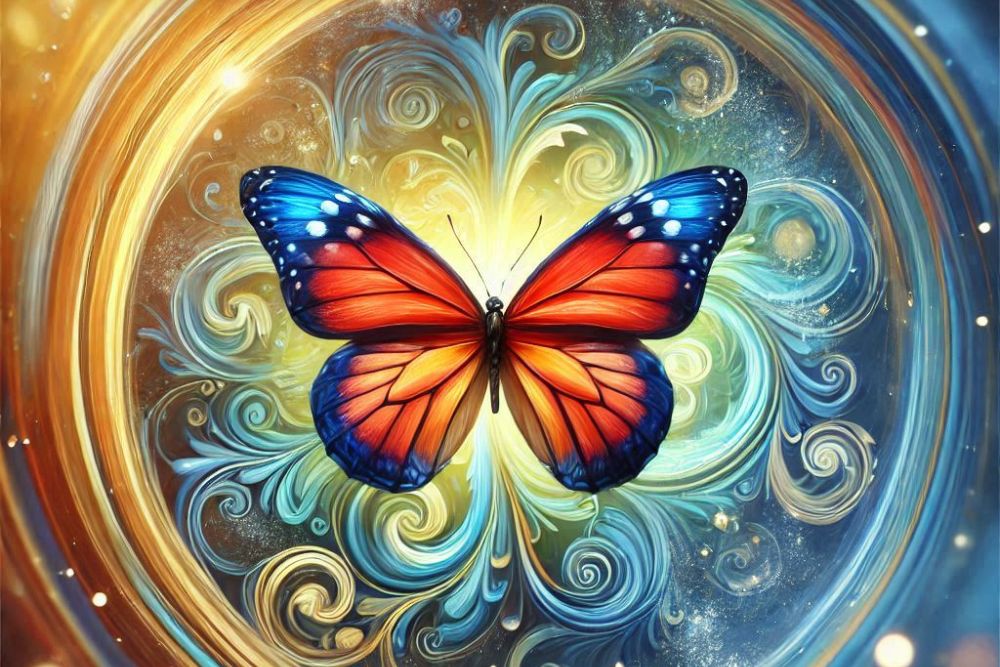
Meaning of life
Social harmony
I’ve always been drawn to the Japanese concept of wa or nagomi (和), which revolves around harmony, peace, and cooperation. Accordingly, individuals should adopt a holistic lifestyle that balances their personal needs with the collective good; additionally, consensus-building and compromise should be encouraged under all circumstances.

This cultural philosophy permeates various aspects of Japanese society, from business practices to interpersonal relationships – and it perfectly aligns with my commitment to social harmony (which, I believe, is deeply intertwined with my anti-materialistic stance).
I believe that no matter what one does, it has to bring value to the community (just like how Inamori leads his company Kyocera). Not just for one’s own sake. Not just for making even more money.
Speaking of which, I remember one day while walking down the street around noon, I noticed how houses facing west were exposed to much harsher sunlight than those facing east.
It struck me that everyone desires the best (“facing east”), but someone must inevitably face the less desirable circumstances (“facing west”).
If everyone just chooses what is easy, then who will take on the hard work?
This realization prompted me to internalize a simple truth: life is about coexistence and harmony; as such, one must be willing to give in and make concessions/ sacrifices when necessary.
It reinforced my belief in the importance of compromise and understanding, as well as the need to consider the needs of others.
By focusing on intrinsic values and meaningful work, one may cultivate a greater sense of empathy and compassion for others.
When we prioritize the well-being of others and the collective good, we create a more harmonious and equitable society (which is, I believe, a dream that all of us share – maybe with the exception of those who have gone insane and psychopaths like the Joker in Batman).
This belief has guided my career choices and personal relationships. It has drawn me to work that leaves a positive impact on society – as well as relationships with people who share my values.
In my life, I’ve always been more interested in collaboration and cooperation than in competition and individual achievement. Just as we wouldn’t want to be treated unfairly, we should strive to respect and treat people with kindness and compassion.
Just as nature seeks harmony, so too should we strive for balance in our relationships and interactions with others. We need to be willing to listen to different perspectives, to find common ground, and to compromise when necessary.

Meaning of life
After all, life, as author Ken Mogi has described, can be likened to a “swamp”. Just like how there are a lot of bacteria in our intestines, a swamp is a diverse ecosystem filled with countless diverse creatures.
For some people, imagining the existence of so many different “things” in a swamp or one’s intestine may cause feelings of dread and disgust.
However, others may come to terms with the fact that it is just something natural and inevitable. Diversity is at the heart of nature. Likewise, harmony is the essence of a long-lasting society.
Something everlasting, something transcendent, something that goes beyond the limited self/ ego.
It is this understanding that has given my life meaning and the ability to endure hardships, especially in interpersonal relationships. Thanks to it, I am no longer afraid to embrace qualities such as unconditional love – something that many people doubt or even smirk at, thinking that it is a sign of “weakness”.
Mutual tolerance is a necessity for all times and for all races.
Mahatma Gandhi
While I value social harmony, I also recognize the importance of individuality and solitude. In fact, as of now, I do not have many close friends and only contact some of my networks occasionally.
I’ve often found that spending time alone allows me to recharge and gain a deeper understanding of myself and the world around me.
While I enjoy connecting with others, I also cherish my moments of quiet reflection.
Maybe I’m just self-sufficient and “Stoic” in nature. It’s not that I’m queer or unable to make friends; I can perfectly talk and discuss with people if necessary.
Probably, it’s just that I value quality over quantity. To me, talking, joking, or gossipping too much are just bad ways of using time – if not signs of chronic ignorance.
View on life & the world
Spirituality
My spiritual journey has been a winding path, shaped by both tradition and personal exploration. Raised in a conservative Catholic environment (99% of the people living in my neighborhood – as well as the “neighboring neighborhoods” – are Catholics), I was immersed in a world of strict doctrine and rigid beliefs.
Life is centered around church, and conformity to the norm is expected. Non-Catholic, unconventional viewpoints are totally not tolerated and subject to verbal abuse; as such, my understanding of spirituality and the world in general was initially very limited.
As a young boy, I even once considered entering the priesthood. The idea was “planted” into my mind by my mother. I guess it was because she thought that my becoming a priest would make the family appear “good” and “holy” in the eyes of my neighbors (hence earning us respect from them).
To be honest, I did not think very seriously about it; I only assumed that working as a priest was a “prestigious” choice that would make me “look good”. Something that would secure me people’s praises. “So hollow”, I have to say.
Then after reaching maturity, I once again reconsidered the idea of entering a monastic order following a scandalous incident (which I was, unfortunately, involved in) at my first company. The motivator, as I realize now, was not a desire to live a virtuous life and serve others – only because I was depressed at that time and just wanted to escape from reality.
…
I’ve got a lot more to say about this, but now, let’s just go back to the evolution of my viewpoint on spirituality.
As I grew older and moved beyond the confines of my hometown, I then encountered people from diverse backgrounds and philosophies, each with their own unique perspective on life and spirituality. This exposure challenged my preconceived notions and sparked a deeper curiosity about the nature of existence.
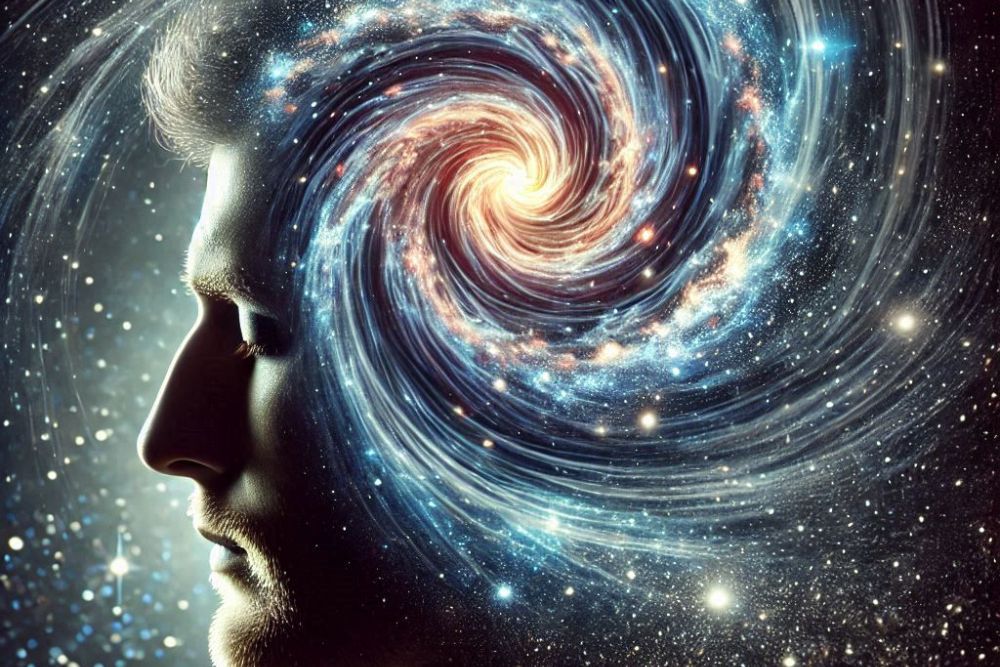
Meaning of life
Then came a turning point when I met my spiritual mentor – a Buddhist – who happened to be one of my previous managers. Through his sharing, I was introduced to concepts such as reincarnation and dependent origination.
While these ideas are not widely accepted within conventional Christian teachings, I have chosen to be open to them – for many reasons. On one hand, they remind me of the interconnectedness of all beings, the cyclical nature of the world, and the causes of suffering in life (plus how to escape it by letting go and becoming detached).
On the other hand, they provide a seemingly OK answer to one question that had always perplexed me: my inexplicable connection to Japan, including aspects such as:
- Lifestyles
For some reason, I’ve always been fascinated by Japanese culture and philosophy. Unlike most of my friends – who only think about things like anime and technology upon the mention of Japan, I am more drawn to their way of life. To me, qualities such as Gaman (我慢), Ikigai (生きがい), Kodawari (こだわり), and Nagomi (和) are deeply resonating – in a manner that I find too mysterious to say that it is only coincidental.
- Catchphrases
While communicating in English and my mother tongue, I notice that I have a tendency to overuse words or phrases that resemble those typically used by Japanese. Examples:
-“I think/ I guess/ I assume/ I suppose” (tomou – と思う)
-“Maybe” (kamoshirenai – かもしれない; deshou – でしょう)
-“I might say/ It can be said that” (toieru – と言える)
-“Not necessarily” (wakedehanai – わけではない)
-“The thing named/ called” (toiumono – というもの)
-“It seems that” (rashiiyo – らしいよ)
-“Somehow” (dōnika – どうにか; nantōka – 何とか)
-etc.
I’m being very honest – I have never intentionally “forced” myself to speak that way. It is something that I naturally do – a habit that has formed long before I started studying Japanese and learning about Japan’s culture.
“How can there be such a coincidence?”, I have always wondered to myself.
- Indirectness & formality
Another behavioral pattern of mine that I have noticed is the tendency to prefer indirect expressions – something that non-Japanese often refer to as “weasel language” – and avoid making definite assumptions. As some of my close connections have remarked, I frequently exhibit various behaviors that resemble those of a typical Japanese: (e.g. being over-polite; maintaining a distance in communication; “blending in” and refraining from standing out; staying silent and letting others speak first; being afraid of hurting others, etc.)
- Warrior spirit
Deep down, I feel as if there has always been a “samurai spirit” in my core. Specifically, the idea of conquering something challenging often makes me hyped – and it’s not easy for me to back off from a seemingly tough task (unless I have tried it before or see no meaning in attempting to solve it).
I remember the time when I was still in high school. One day, in a lesson about Japan, my geography teacher asked each of us to write an essay about a unique cultural feature of Japan (e.g. tea ceremony, literature, samurai, etc.)
And you know what?
I chose to write about Bushidō (武士道) – in other words, the samurai’s moral code.
Even as of now, I still don’t know the exact reason behind my choice. After all, at that time, I didn’t know much about Japan (I’m being very honest here). After receiving that assignment from my teacher, I decided to do a lot of research on what the country is famous for. Nothing really impressed me – until I came across the concept of Bushidō.
Somehow, I felt as if there was a spark within me. And I decided to proceed with it, even though I didn’t quite understand what it meant yet.
Was it just my unconscious mind acting? I cannot say for sure, but it is what it is.
…
As you may see from the anecdotes above, I seem to have a very strange connection with Japanese culture. It has got to the point that I sometimes wonder: is it just pure coincidence?
Is it a result of past lives, a shared spiritual heritage, or something else?
I cannot say for sure if these things are just random occurrences, or if they can be attributed to past experiences/ dependent origination/ reincarnation or whatever cause.
That said, thinking about them has, kind of, provided me with a sense of significance and direction. It gives me a reason to continue learning about Japan. Maybe one day I will know the truth, right?

Meaning of life
And yet, as I ponder over the possibility of being a Japanese in a previous life, I realize that it doesn’t really matter at all. Simply, because it concerns the past, which cannot be changed at all.
What has happened in my past lifetime (if there is one) is already done. Hence, what matters, to me, is to learn from previous experiences and change our course of action now.
I remember reading somewhere about Greek philosopher Plato’s belief in reincarnation – which stemmed from his assumption that human beings were originally Heavenly beings, who were banished to the physical world to repent for their sins and learn certain lessons before they could re-enter Heaven. This process, as Plato hypothesized, generally took a quite long time and could not be finished within one single life (hence the need for reincarnation until a soul could finally be liberated).
When I reflect on this, I cannot help but think of a doctrine in my Catholic faith – the concept of Purgatory. As explained by the Church fathers, it refers to a state of “purification” after death for those who die in God’s grace but still need to be cleansed of their sins before entering Heaven.
Somehow, I see a common thread between reincarnation and Purgatory: if one is not done yet – if they still have certain imperfections or attachments, their journey will not come to an end. They will have to travel until a certain level of purity/ enlightenment is achieved.
As I contemplate this similarity, I then recognize the significance of the message embedded within Plato’s belief. Specifically, it speaks about learning, growing, and self-perfection as a critical component of life.
Even if purgatory and reincarnation are nonexistent, reflecting on their implications has given me a sense of direction – a motivation to push and better myself every day.
It is not about the validity of the teachings, but about the meaning that I derive from them. They provide me with a compass in life, based on the knowledge that life is about bettering myself, not just about existing in an ordinary manner.
I don’t know for sure what happened before my current incarnation (whether there were previous lives or not) and after my demise. And yet, I don’t think it matters at all. As Marcus Aurelius has said:
Live a good life. If there are gods and they are just, then they will not care how devout you have been, but will welcome you based on the virtues you have lived by. If there are gods, but unjust, then you should not want to worship them. If there are no gods, then you will be gone, but will have lived a noble life that will live on in the memories of your loved ones.
Over the years, I have, kind of, adopted a personal religion that blends elements of Christianity, Buddhism, animism, Bushidō, and humanism. While I still hold onto the core values of my Catholic upbringing, I’ve embraced a more holistic and inclusive approach to spirituality – by incorporating teachings from other traditions that I find resonating. Examples:
- The Middle Way, impermanence, no-self, mindfulness, and detachment in Buddhism
- Respect toward nature and the elders/ ancestors – as practiced in Shintoism and Vietnamese folk religion
- Hadō/ “vibration” as promoted by certain figures such as Masaru Emoto
- etc.
In my humble opinion, if God wills, he can definitely make people reincarnate (for whatever reason – maybe because of fate, an unresolved mission, or a sin that requires repentance). Hence, I don’t see any major conflict between reincarnation and my Christian faith, and I strongly believe that all religions speak a certain element of truth.
To me, religions can somehow be compared to languages. It doesn’t matter if you follow Christianity, Buddhism, Shintoism, or even atheism – all of these ideologies boil down to the same thing.
As long as you believe in human potential for things like ethics and kindness, it’s fine.
As long as you have something grander than yourself to strive for, you are a believer. And your life will now have a meaning – an “anchor” for you to push through all adversities! And the whole society will become a better place!
The world is a fine place and worth the fighting for and I hate very much to leave it.
Ernest Hemingway
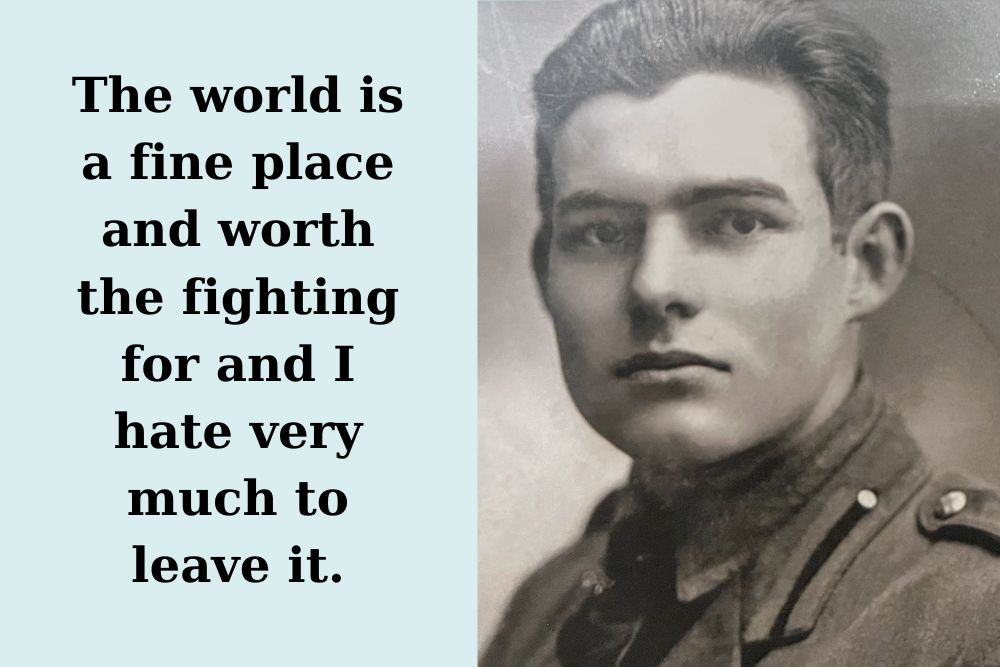
What gives life the most meaning
Interpersonal
Even though technically I live in an urban area in the South of Vietnam, the lifestyle of people in my neighborhood still resembles that of a traditional North Vietnamese village.
- Very little contact is made with those beyond the confines of my “village”.
- People are very attentive to things that happen in other families and like gossiping about them.
- Marriages between those in the same “village” are encouraged – while those with “outsiders” are not. Often, the elders will come up with excuses such as “not the same religion”, “differing lifestyle”, “problems raising children”, “risk of apostatizing”, or “risk of getting naughty”.
- etc.
The emphasis on conformity and adherence to the norms gives rise to a prevalent mindset of judgment and intolerance. As such, I used to find it difficult to empathize with those who held different beliefs or adopted unconventional lifestyles.
Not to mention, I was also critical of people’s misdeeds – especially those who I deemed as “hypocrites” (i.e. those who did not practice what they preached). And unfortunately, because I – for some reason – came across so many “hypocrites” in the hometown, at school, at work, etc. I ended up developing a somewhat cynical view of human nature.
Fortunately, as time passed and certain incidents occurred in my life, my stance on humanity gradually changed. Thanks to many people (including my spiritual mentor), I eventually learned to appreciate the value of empathy and compassion. Rather than judging people or, worse, being indifferent toward them, one should approach others with kindness and understanding, even when their beliefs, values, or actions may not be as one expects or deviate from the norms.
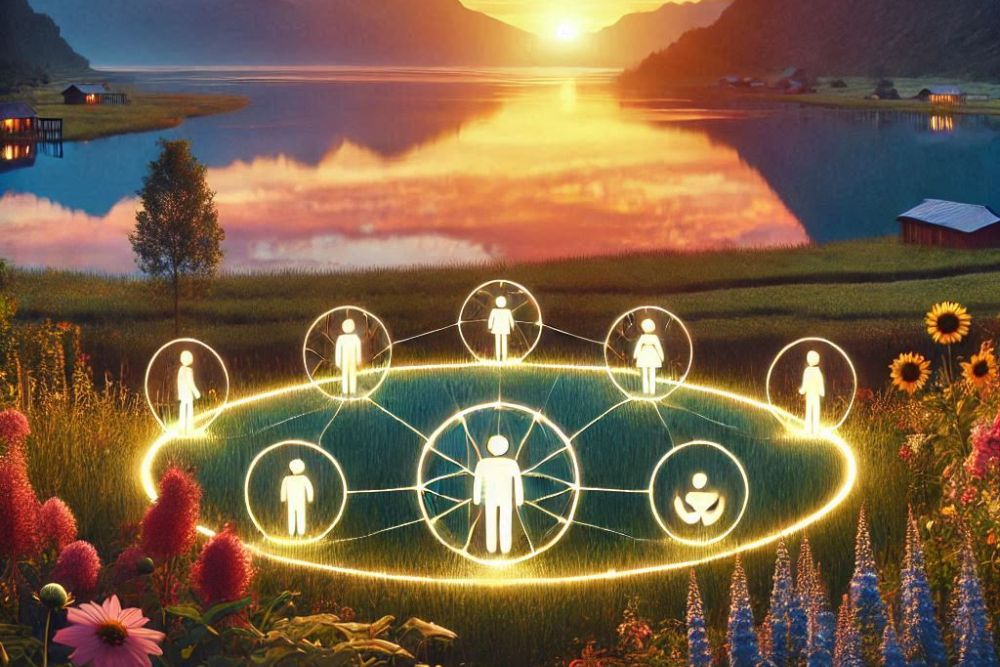
Meaning of life
I remember once coming across a LinkedIn post about an incident in New Zealand. A 16-year-old girl was several months pregnant. Her family could not afford to buy baby items – so they posted about their problem on social media.
Interestingly, all of the 20 or so comments on that post were completely devoid of malice and sarcasm toward the girl. No rude remarks at all – everyone was focused on helping the person in need.
I was deeply struck by those people’s level of “civilization”. Surely, this is something I can never expect to happen in my local conservative community. A response that is unthinkable for a few self-proclaimed “moral” people who fail to demonstrate the slightest compassion.
After all, altruism and compassion are unique qualities that set humanity apart from other beings. We have the capacity to transcend conventional justice and morality standards!
Reflecting on this incident has allowed me to gain a great deal of clarity into what it means to truly live as a person – specifically, a person within a community. While I still value honesty and integrity, I’ve learned to be more forgiving and less judgmental. Everyone makes mistakes, and it’s important to offer support and encouragement rather than condemnation.
That is what it means to live life to its fullest!
If one can internalize the above lesson and practice principles like the Four Immeasurables, they will be able to find meaning even in the most awkward relationships or situations!
Purpose
For years, my life was driven by external validation and material success. For example, I chose my university major not because of passions, but because of wanting to appease my parents and protect them from the risk of being verbally abused by rude, mean neighbors.
Back in the day, many of my decisions were made only because I wanted to brag about myself and look “good” in the eyes of others. Hence, when things went awry and not as planned, I felt as if the whole world had come to an end.
As I now realize, it was because I attributed value and meaning to frivolous external things. Not something within.
And then years after graduating from university, I got trapped in an endless cycle of work, as I juggled continuously between my full-time job and the many part-time projects I was involved in.
It has got to the point that I even carved out my time at the office to deal with personal projects (ironically, many of my colleagues did exactly the same thing).
The result? I had very little time for relaxing and regaining balance. Though I earned a lot of money and therefore could eat and spend freely, I felt completely alone and empty inside.
Fortunately, one day, I reflected on the transient nature of life and recognized a sobering truth: my legacy would not live on if I kept doing things the same way.
Instead of being obsessed with personal accomplishments or possessions, I need to do something different. Something that contributes to the community.
The meaning of life, as it turned out, has nothing to do with chasing money or fame. Rather, it’s about finding contentment in every moment and being ready for “departure” at any time. Because, as James Baldwin has put it:
One day, for each of us, the sun will go down for the last, last time.
At the same time, it is also about letting go of all expectations – instead of getting involved too much in jobs and other trivial things (a lesson that I have learned after a period of craziness due to my inability to say “no” to certain part-time tasks that were not worth it).
I’ve since embraced a more minimalist lifestyle, prioritizing experiences over possessions. In addition, I’ve also sought to cultivate a sense of gratitude and contentment, recognizing the many blessings in my life.

The purpose of human life
…
Well, that concludes my sharing about how I have discovered and followed my own “Way” up to now. A little long, but I hope that from my story, you will have the chance to reflect and better get in touch with your inner core.
As Viktor Frankl has said, it’s very hard – if not futile – to aim to come up with a single “ultimate” meaning of life. What’s more important is to constantly reflect and find something that matters to you in every moment.
While one’s perception of meaning may fluctuate from time to time, at the end of the day, I believe that it will still retain an essential core (a “Way”) – provided that the person is authentic to themselves.
How about yours? What is your own “Way”? Have you found it yet? And if yes, have you embraced it yet? Is there anything standing in between you and your “Way”? Are you determined to push these obstacles aside to continue treading the path before you?
Why Do I Find No Meaning in Life?
Have you ever found yourself wondering: “Why is it so hard to find meaning in life?”
Despite your best efforts, you seemingly cannot find a reason to enjoy the day and go on. Sometimes, you even think of death as an escape from reality.
While I cannot give you a definite answer, I will go over some common reasons for the loss of one’s sense of meaning. If you find yourself in any of the following situations, please take time to reflect and think.
Ignorance
I remember once reading a story that went like this:
There was once a professor who wanted to go down the river, so he approached a local boatman who agreed to row him downstream for a small sum of money.
As they made their way downstream, the professor decided to show off his intelligence and high education so he decided to test the boatman.
Taking up a stone he picked from the river bank, the professor asked the boatman, “Have you ever studied geology?”
The boatman looked at him and said “Eh! …. No, hardly even understanding what the word meant.”
The professor then said, “I am afraid, 25% of your life is gone.”
As they moved further downstream, the river currents began to get stronger. The professor picked up a leaf and asked condescendingly, “Boatman, have you studied botany?”
Confused, the boatman again said “No”.
The professor again shook his head and said, “50% of your life is gone.”
As they moved downstream, the currents got even stronger, the water moved faster, and the boat was beginning to sway violently.
Suddenly the professor saw a mountain range. He pointed at it and asked the boatman, “Have you studied geography?”
The boatman again said “No”.
The professor snapped back and said “I thought so. Then 75% of your life is gone.”
At this point, the river became a raging torrent. The water was moving so strongly that the boatman lost control of the boat. It smashed against the rocks, sprang a leak, and began to sink.
This time the boatman turned to the professor and asked, “Professor, do you know how to swim?” to which the professor answered “No”.
“Then I am afraid 100% of your life is gone!”, said the boatman.
This parable, to me, is a perfect representation of the devastating impact of ignorance – a lack of awareness about what truly matters. The professor, blinded by his ego and narrow definition of intelligence, was obsessed with showing off and humiliating others. He mistook the superficial for the essential – believing that knowledge gave him a sense of significance.
Eventually, his vast academic learning became utterly irrelevant in the face of nature’s cruelty.
Think about this: have you ever found yourself chasing vanities – just like the professor in the parable above?
Have you ever assumed that something mattered, only to later realize that it was just an illusion?
Another example to demonstrate this point. Let us revisit the story told in Kurosawa’s “Ikiru” movie.
For 30 years, the character Kanji Watanabe existed in a bureaucratic haze, living like a “mummy”. He got completely disconnected from his family and the simple joys of life. He thought that he was acting for the sake of his son, but the reality was quite the opposite: there was virtually no emotional connection between them. His son even wished for his father to pass away soon – so that he might claim his inheritance.
And yet, Watanabe was completely unaware of his pathetic state, until he was diagnosed with cancer and knew that he had only 6 months left to live. Only then did it dawn on him how ignorance had cost him his whole lifetime:
I just can’t die – I don’t know what I’ve been doing with my life all these years.
He tried hard to understand what it really meant to live, but seemingly found no satisfactory answer. As such, he couldn’t comprehend how his subordinate Toyo could enjoy life so much.
Watanabe’s life, like that of the professor in the parable, was consumed by a kind of “blindness”, a failure to recognize what truly gave it meaning. The result?
A weak connection to himself and others.

Far too often, in our search for the meaning of life, we mistake our superficial motivations for deeper desires. In my case, back in the day, I pursued a career in marketing, believing it was the field itself that drew me in.
However, upon deeper reflection, I realized that my motivation had nothing to do with business or money.
Initially, I assumed that I was fascinated by the mechanics of marketing – yet it turned out my true drive was the desire to learn and improve myself, to understand the human psyche, and to contribute positively to the community.
It was never about business, money, or “manipulating” people. Rather, it was about learning & development, psychology, and philosophy!
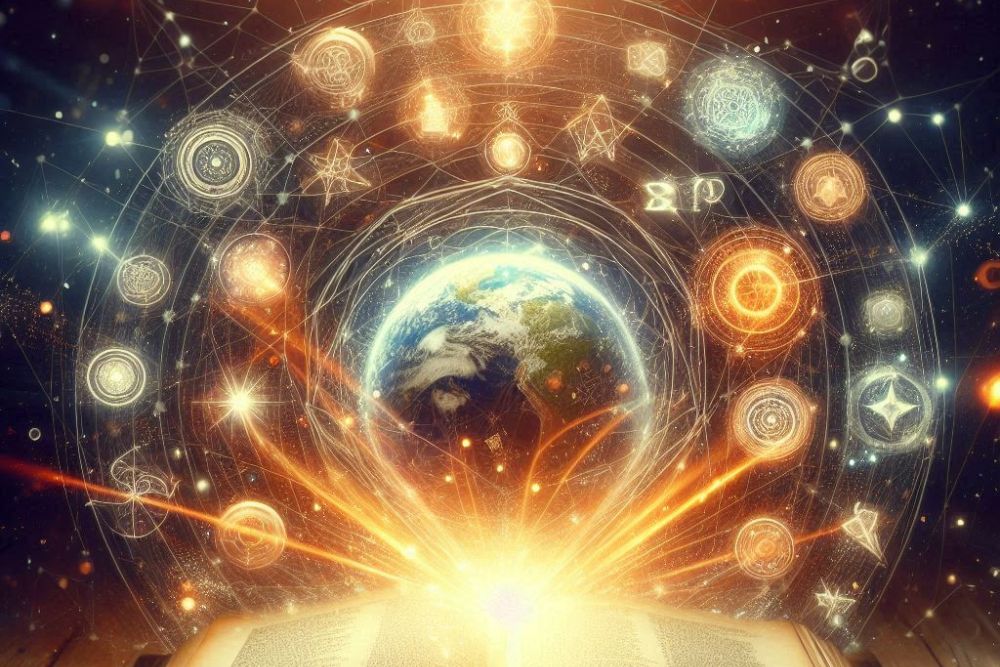
Meaning of life
Now, I assume that some might argue, “What if I genuinely don’t know my purpose?”
This may sound harsh to a few people, but my answer is: deep down, you do!
You already know what energizes you; you just are not aware of it yet. Or, I might say, you are not willing to accept it yet!
Due to a lot of reasons, most of us become so entangled in the daily grind that we end up losing touch with our inner selves. In that case, what we need to do is to slow down and look inward.
It’s just like how the boy Santiago in “The Alchemist” recognized Fatima as his love at first sight. Our souls instinctively know what resonates with us; we simply need to reconnect with that voice within.
By focusing on what truly calls to us – and acting in accordance with our deepest values, we will break free from the blindness of ignorance and move toward a meaningful existence. The pursuit of external validation or “success” becomes secondary to the intrinsic value of the action itself.
Listen to what your conscience commands you to do and go on to carry it out to the best of your knowledge. Then you will live to see that in the long run, success will follow you precisely because you had forgotten to think about it.
Viktor E. Frankl
An excessive focus on the self
Thomas Friedman once discussed how the world today had become “hot, flat, and crowded“. As he argued, mankind needed a green revolution to save the world from its impending doom.
While environmental concerns are crucial, I believe we need a deeper revolution – a transformation of the human heart and mind.
The modern society has reached a point where people no longer feel satisfied and content with the ordinary. Instead, we crave “more” and constantly pursue stimulation.
This spiritual hunger manifests in various aspects of our culture. An example is the music industry. Soothing melodies no longer suffice; we want increasingly loud, profane, and sexually charged music to achieve a sense of “hype.”
Sports must become ever more dangerous and thrilling to hold our attention; otherwise, we cannot enjoy them. Instead of appreciating artistry or skill, we are only focused on chasing an ever-escalating emotional high.
The movie industry suffers from the same problem. Blockbusters like the “Avengers” series, while financially successful, often prioritize spectacle and special effects over depth and meaningful narratives. As my mentor has observed, these films, while entertaining, are actually shallow in terms of quality – they typically rely on violence, sex, and taboo elements to excite audiences.
On the other hand, movies like Martin Scorsese’s “Silence“, despite their deeply humanistic messages, struggle to find an audience.
We talk too much about box office numbers and social media buzz – vanity metrics – while forgetting about the merit and deeper purpose of artistic works: to convey messages about life, prompt reflection, and nurture our spiritual side.
In other words, art forms such as movies have become a type of “junk food” for the soul.
This preference for superficial stimulation extends to how we consume information. We gravitate towards short, catchy social media posts and TikTok videos, often treating shallow messages as “profound truths” – while dismissing longer, more nuanced articles and research papers.
We consume too much “fast food” for the mind, leading to a deterioration of our intellectual capacity (a phenomenon known as “brain rot“). What is meaningless is deemed meaningful – and vice versa.
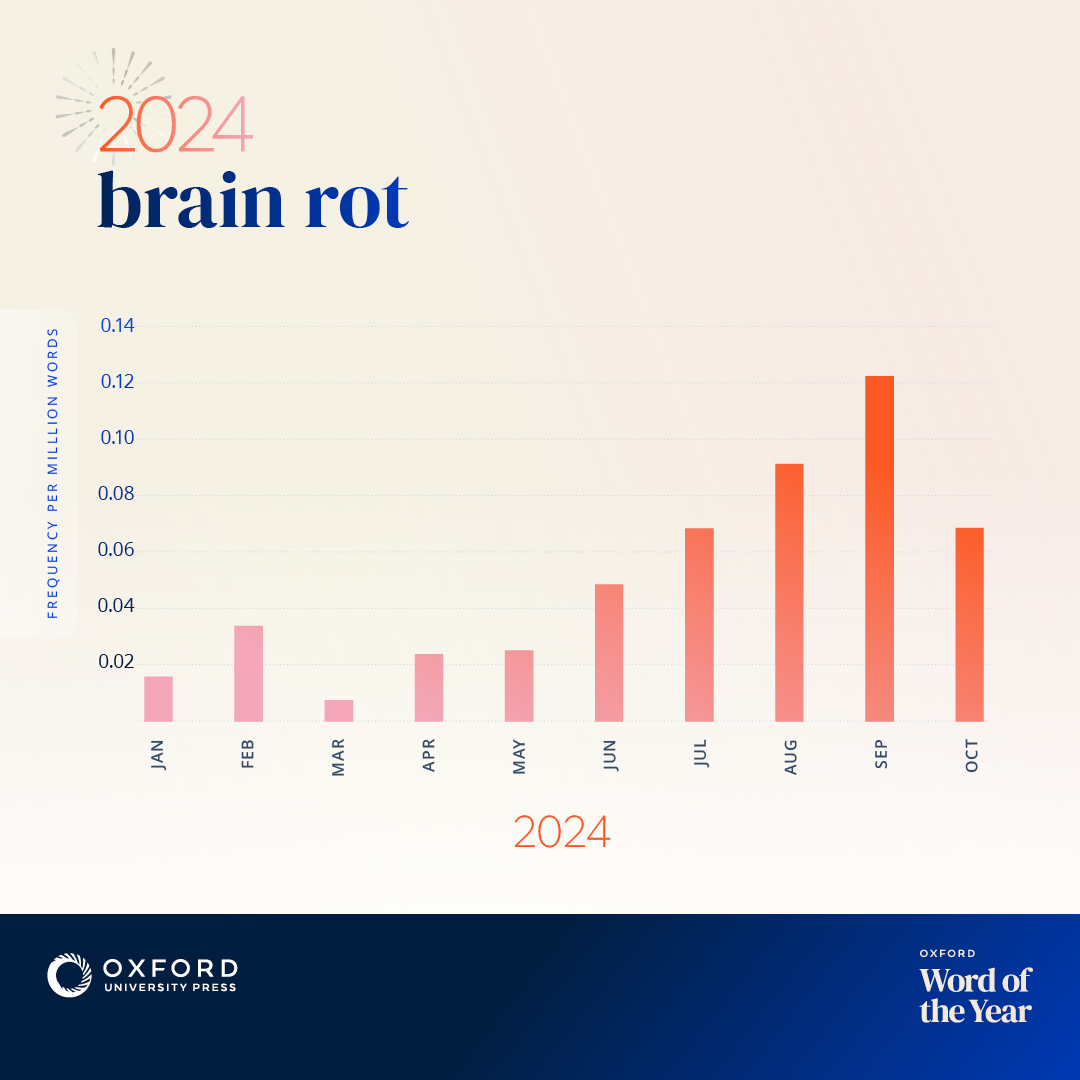
“Brain rot” was named Oxford Word of the Year in 2024
The above examples – the craving for extreme music and sports, the dominance of spectacle-driven films, and the preference for bite-sized content – all point to an excessive focus on the self; specifically a superficial, constantly-seeking-stimulation self. We prioritize immediate gratification over more lasting experiences.
The popularity of superhero movies, with their emphasis on action and vicarious thrills rather than character development and complex narratives, is just a vivid indicator of the desire to escape from the complexities of daily life. To avoid confronting personal challenges and responsibilities.
Ironically, this focus on short-term gratification only gives rise to a cycle of endless dissatisfaction, as we are prompted to seek new and more intense stimuli to fill an ever-growing void.
The neglect of long-term well-being diminishes our capacity for patience and perseverance. Ultimately, it gives rise to a fear of genuine connection, an equation of happiness with vanities, and a loss of sight of humanity’s deeper values.
As a result, we struggle to find meaning in life.

This is a hard saying; who can listen to it?
I assume that at this point, some people may think like that. I myself have to admit that this message is not easy to accept at all.
At times, I feel like a voice crying out in the wilderness. Even if most people do not heed my call, I will continue to speak, hoping that someone, somewhere, will get my message and understand it.
It is this hope that gives meaning to my efforts.
What is called self-actualization is not an attainable aim at all, for the simple reason that the more one would strive for it, the more he would miss it. In other words, self-actualization is possible only as a side-effect of self-transcendence.
Viktor E. Frankl
Attribute meaning to success & achievements
In the book “Harry Potter and the Philosopher’s Stone“, after fainting in his skirmish with the Dark Lord to protect the Philosopher’s Stone – an item capable of producing gold and the Elixir of Life – the protagonist Harry Potter found himself waking up in the Hospital Wing. He then had a conversation with his headmaster, Professor Dumbledore, and was horrified upon learning that the Stone he had done his best to save had been destroyed. At that point, Dumbledore responded:
You know, the Stone was really not such a wonderful thing. As much money and life as you could want! The two things most human beings would choose above all – the trouble is, humans do have a knack of choosing precisely those things that are worst for them.
The above words highlight a fundamental human tendency: we often prioritize material possessions and longevity over qualities like courage, kindness, and wisdom.
We mistakenly believe that external achievements and material wealth are the keys to a worthwhile life, while overlooking the intrinsic value of character and connection.
This tendency is particularly prevalent in today’s world, where one’s self-worth is often tied to professional success. As a result, many people are put under unnecessary pressure and fall victim to a thing called “focusing illusion” – which occurs when one becomes so fixated on a particular aspect of life (e.g. career advancement, financial wealth, social status) that they believe their entire happiness depends on it.
We fall into the trap of thinking “If I only achieve X, then I will be happy.” Without this perceived marker of success, we feel lost, unhappy, and even driven to despair.
It is time that we challenge this assumption. As author Ken Mogi has put it:
The morning air, the cup of coffee, the ray of sunshine… Only those who can recognize the richness of this whole spectrum really appreciate and enjoy it.

Meaning of life
The meaning of life doesn’t have to be confined to worldly recognition or grand achievements. It can be found in the most simple joys of everyday life: a friend’s smile, the crisp morning air, a moment of quiet contemplation, etc.
Furthermore, it shouldn’t be limited by societal norms. As Mogi has pointed out, even in an authoritarian society like North Korea or a conformity-driven one like Japan, individuals are still capable of creating meaning – albeit sometimes in very unique ways. For instance:
- Many Japanese office workers find joy in hobbies like creating and selling comics at Comiket.
- The datsusara (脱サラ) phenomenon – men leaving stable but unfulfilling office jobs to become househusbands and pursue their passions – reflects the trend of people breaking free from societal expectations to find their own path.
No matter what the circumstances are, as long as one is able to accept and release oneself – even if it means deviating from others’ expectations, meaning and purpose are perfectly within their reach.
If you can make the process of making the effort your primary source of happiness, then you have succeeded in the most important challenge of your life.
Ken Mogi
A fragile sense of value
When I first read Viktor Frankl’s “Man’s Search for Meaning”, I came across this passage in the book’s preface:
There is a scene in Arthur Miller’s play ‘Incident at Vichy‘ in which an upper-middle-class professional man appears before the Nazi authority that has occupied his town and shows his credentials: his university degrees, his letters of reference from prominent citizens, and so on.
The Nazi asks him, “Is that everything you have?” The man nods.
The Nazi throws it all in the wastebasket and tells him: “Good, now you have nothing.”
The man, whose self-esteem had always depended on the respect of others, is emotionally destroyed.
Reflecting on this passage, I can see how a fragile sense of value, based on external factors, can crumble under pressure, leaving one devoid of meaning. Conversely, a strong, internally grounded sense of self-worth will sustain us even in the most desperate circumstances.
In his book, Frankl recounts an incident where a guard berated him as follows:
Another time, in a forest, with the temperature at 2°F, we began to dig up the topsoil, which was frozen hard, in order to lay water pipes. By then I had grown rather weak physically.
Along came a foreman with chubby rosy cheeks. His face definitely reminded me of a pig’s head. I noticed that he wore lovely warm gloves in that bitter cold. For a time he watched me silently. I felt that trouble was brewing, for in front of me lay the mound of earth which showed exactly how much I had dug.
Then he began: “You pig, I have been watching you the whole time! I’ll teach you to work, yet! Wait till you dig dirt with your teeth – you’ll die like an animal! In two days I’ll finish you off! You’ve never done a stroke of work in your life. What were you, swine? A businessman?”
I was past caring. But I had to take his threat of killing me seriously, so I straightened up and looked him directly in the eye. “I was a doctor – a specialist.”
“What? A doctor? I bet you got a lot of money out of people.”
“As it happens, I did most of my work for no money at all, in clinics for the poor.”
But, now, I had said too much. He threw himself on me and knocked me down, shouting like a madman. I can no longer remember what he shouted.
I want to show with this apparently trivial story that there are moments when indignation can rouse even a seemingly hardened prisoner – indignation not about cruelty or pain, but about the insult connected with it. That time blood rushed to my head because I had to listen to a man judge my life who had so little idea of it, a man (I must confess: the following remark, which I made to my fellow prisoners after the scene, afforded me childish relief) “who looked so vulgar and brutal that the nurse in the out-patient ward in my hospital would not even have admitted him to the waiting room.”
Frankl’s reaction to the guard’s insult, while seemingly overwrought, reveals a deeper truth. In the harsh conditions of the concentration camp, the prisoners were stripped of their material possessions, freedom, and even their names. They were reduced to mere numbers, existing in a state of dehumanization.
In this context, the self is severely limited. The body is weak, the mind is weary, and the spirit is fragile.
Yet, despite these limitations, the human spirit can still find ways to assert itself. Even in the depths of despair, one may still cling to a sense of self-worth – who they are and what they stand for.
It is this realization that drives people like Frankl to not give up.
Even in the most extreme circumstances, when basic survival is at stake, knowing that one is inherently worthy will still provide a source of strength and resilience to stand up for one’s ideals and embrace life as it is.
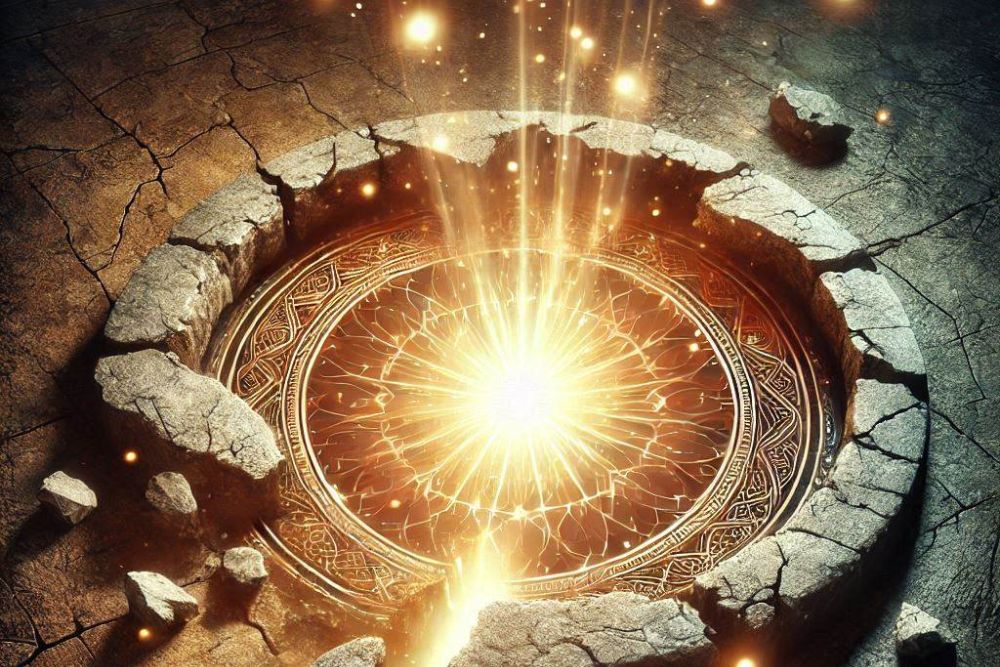
Meaning of life
However, here comes a question: What constitutes a robust sense of value?
It is a sad truth that the modern world often equates one’s worth with “usefulness”, measuring individuals by their contribution. This notion, as Frankl has pointed out, is extremely dangerous.
If we define worth solely by productivity or social function, we risk dehumanizing those deemed “unproductive” – the elderly, the ill, the disabled. This line of thinking, ultimately, will lead to horrific consequences.
Today’s society is characterized by achievement orientation, and consequently it adores people who are successful and happy and, in particular, it adores the young. It virtually ignores the value of all those who are otherwise, and in so doing blurs the decisive difference between being valuable in the sense of dignity and being valuable in the sense of usefulness. If one is not cognizant of this difference and holds that an individual’s value stems only from his present usefulness, then, believe me, one owes it only to personal inconsistency not to plead for euthanasia along the lines of Hitler’s program, that is to say, “mercy” killing of all those who have lost their social usefulness, be it because of old age, incurable illness, mental deterioration, or whatever handicap they may suffer.
Viktor E. Frankl
Instead of measuring self-worth by external contributions, we must recognize the inherent value of every human being.
This principle is also reflected in Ichiro Kishimi’s “The Courage to be Disliked” book, in which the author argues that we should view others not on the “level of acts” (what they do) but on the “level of being” (their inherent existence). We should appreciate and value others simply for being, regardless of their actions or abilities.
Suppose your mother has a car accident. Her condition is serious, and her life may be in danger. At a time like that, you would not be wondering if your mother ‘did something’, or anything of the sort. More than likely, you will just be thinking you’ll be glad if she makes it, and you’re glad she is holding on right now.
…
That’s what it means to be grateful on the level of being. Your mother might not be able to do anything in her critical condition that would be considered an act, but just by being alive, she would be supporting the psychological state of you and your family, and would therefore be of use.
Ichiro Kishimi
If we can shift our mindset to recognize the inherent worth of every individual, including ourselves, regardless of external achievements or usefulness, we will cultivate a far more robust and resilient sense of value. It’s not about WHAT we do, but about WHO we are.
This is the key to a lasting meaningful life.
There is no reason to pity old people. Instead, young people should envy them. It is true that the old have no opportunities, no possibilities in the future. But they have more than that. Instead of possibilities in the future, they have realities in the past – the potentialities they have actualized, the meanings they have fulfilled, the values they have realized – and nothing and nobody can ever remove these assets from the past.
Viktor E. Frankl
The paradox of modern living
Back in the day, Nietzsche’s proclamation “God is dead” sparked widespread debate. It reflected a time when traditional sources of meaning (religion, community, established social structures) were losing their power, leaving a void in their wake.
While interpretations of Nietzsche’s statement may vary, I see that it highlights a fundamental human need: a solid foundation of philosophy upon which to build our lives.
Without one, we will become adrift and vulnerable to existential anxieties.
These days, humanity faces a similar challenge (though the context has shifted). Our world is being increasingly shaped by technology, automation, and a relentless pursuit of economic efficiency. This has created a paradox: we have more material comforts and opportunities than ever before, yet many people, particularly the younger generations, struggle to find meaning in their lives.
From my experience, we can attribute it to a variety of factors:
- The nature of work has changed dramatically. Countless jobs have become routinized and automated, offering little sense of purpose or fulfillment.
- The rise of AI further complicates this, raising questions about the future of work and the role of human labor.
- Moreover, the relentless focus on profit maximization by many businesses is giving rise to work environments that feel dehumanizing (I myself have witnessed this firsthand during my own full-time employment). Many people now are haunted by a sense of alienation and the feeling that one’s work is simply a means to an end, devoid of intrinsic value.
How do we find meaning in a world rapidly transformed by technology?
How do we ensure that progress serves human flourishing – rather than simply economic growth?
How do we prevent technology from further eroding our sense of purpose and connection?
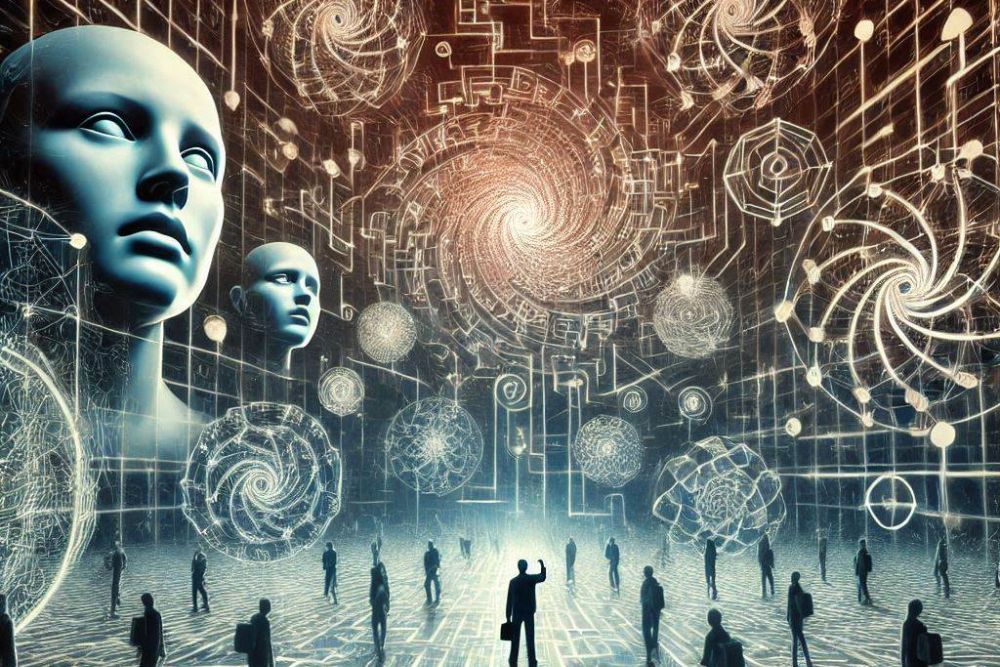
The answer, I believe, lies in recognizing that meaning is not something bestowed upon us by external forces – not by doctrines, not by social norms, not by our jobs.
Rather, it must come from within. What is within us is the only thing we can truly control.
I am not saying that one cannot derive meaning from sources like career or religion. However, what I would like to emphasize is the importance of personal agency and self-knowledge. Specifically, one should not passively conform to external expectations without critical self-reflection.
For instance, as a Christian, I myself have learned a lot of precious life lessons from my faith. That said, I believe it’s crucial for everyone, regardless of belief system, to critically examine and personally validate the teachings passed down to them – rather than blindly accepting them.
It’s about owning your meaning, not inheriting it. About coming up with your own philosophy of life.
Know thyself.
Socrates
We should not refuse to take charge and live an ordinary life in others’ shadow. Instead, we must actively cultivate a sense of purpose by engaging in activities that resonate with our values, by building high-quality relationships, and by contributing to something larger than ourselves.
At the same time, we must seek to create a society that prioritizes human well-being alongside technological advancement and economic prosperity. Otherwise, problems such as suicide and mental disorders are going to evolve into global crises.
Too many life options
On the quest for meaning, many cannot help but have to confront a fundamental question: “What do I want out of life?”
Nowadays, most of us find ourselves with a long list of desires – a fulfilling career, a loving family, travel, personal growth, and countless other aspirations. The thing is, our time and resources are finite; as such, we must make choices.
In the past, most people typically did not have such a privilege – due to reasons such as social constraints or economic circumstances. That is not the thing with modern society.
Ironically, as life becomes more convenient comes a new issue. Given the overwhelming number of paths available, many people find themselves paralyzed by indecision.
Should I pursue this job or that one? Should I prioritize career or family? Should I focus on stability or adventure?
Torn apart by the various opportunities available to them, many end up succumbing to inertia, inner conflict, and ultimately, a weakened sense of meaning. When everything seems possible, nothing feels essential.
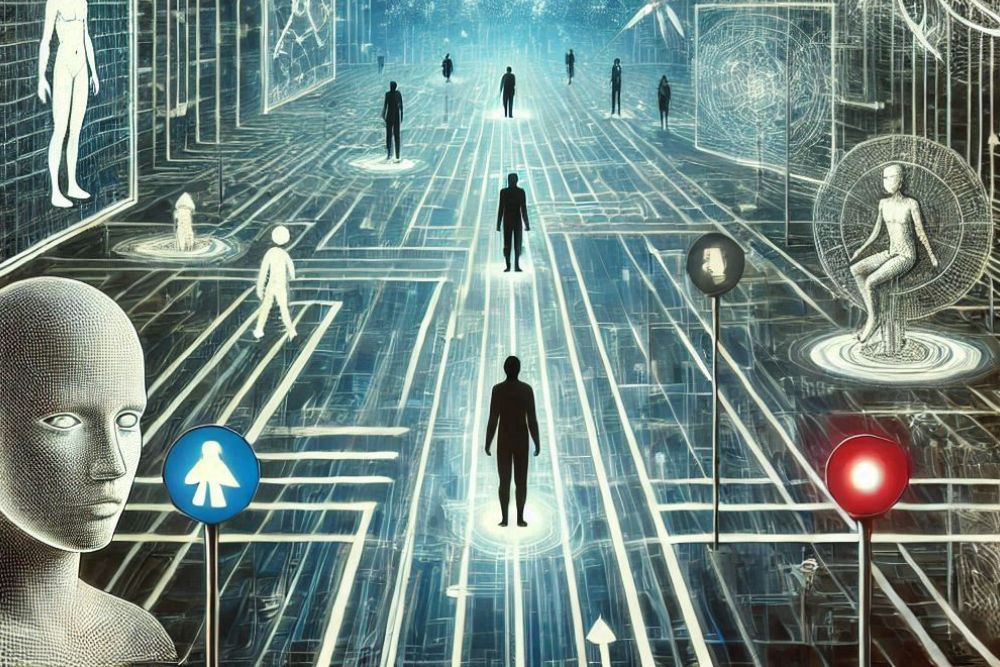
One approach to navigating this dilemma is to consciously limit our options – something that Dr. Marshall Goldsmith, in his bestseller “The Earned Life”, calls “the agency of no choice.” The idea is simple: the availability of too many options causes us to become overwhelmed and experience anxiety, stress, and a feeling of being out of control. As such, intentionally narrowing one’s focus is key to reducing decision fatigue and freeing up mental energy to concentrate on what truly matters.
This doesn’t mean abandoning our dreams or settling for a lesser life. Rather, it’s about prioritizing and aligning every course of action with one’s core values and vision.
It’s about distinguishing between essential decisions and trivial ones. For example, spending excessive time agonizing over what to wear each day is not worth the effort; one had better use that time for more authentic pursuits.
For those who would like to adopt this approach, here are a few principles to keep in mind:
- Simplifying one’s life: This means decluttering our physical and mental spaces, focusing on what truly brings us joy and fulfillment. For example, instead of constantly acquiring new possessions, we should focus on experiences and relationships.
- Paying attention to the present moment: Mindfulness helps us make more conscious choices rather than being driven by impulsive desires or external pressures. For instance, rather than mindlessly scrolling through social media due to FOMO, we should engage in more productive activities like reading or spending time in nature.
- Focusing on what we have, rather than what we lack: Gratitude enables us to appreciate the good in every day and reduces the constant craving for more – which is a major hurdle to finding meaning in life.
- Releasing the need to control: Nobody can control every aspect of their life. From time to time, we need to accept uncertainty and take small steps forward, trusting that “life will find a way”.
To achieve an earned life, you have to make choices with an expanded sense of scale, discipline, and sacrifice.
Marshall Goldsmith
Over-eagerness for the award
Life is the dancer, and you are the dance.
Eckhart Tolle
Human’s tendency is to confuse the journey (meaning) with the destination (purpose). In other words, our sense of meaning is tied solely to a specific outcome.
The truth is, what matters isn’t about reaching a particular goal; rather, it’s the life force that propels us forward each day. An excessive focus on the end result only robs us of the joy of the present moment and hinders the ability to live mindfully.
When we are too eager for the final “award”, we end up forgetting about what it takes to get “there”. We desire the reward without the effort, the victory without the struggle.
As such, when challenges arise, we hesitate. Fear of failure and setbacks makes us step back and refuse to take action.
And yet, it’s precisely through facing challenges, learning from our mistakes, and overcoming obstacles that we may connect with the true meaning of life. It is the process of self-improvement, not the final achievement, that gives life its richness.
I would like to give an example. Let’s say there is a person who dreams of becoming a writer; however, he is afraid that his work might get criticized or rejected. As a result, he never takes the first step and instead comes up with excuses like “I’m too busy” or “I’m too old.” His fear becomes what prevents him from realizing his potential and turning his life’s story to a new page.
Facing rejection, while painful, is an essential part of personal growth and self-discovery. Either it will strengthen our resolve, or it will guide us toward a more suitable path. As such, we need to muster our courage and make small changes – one by one.
Living can, to a certain extent, be compared to dancing – in that we need to constantly move to avoid falling. As long as we keep moving and are not too concerned with arriving at a specific location, one day we will be amazed by how far we have made it!
In contrast, if we are too obsessed with the end results – while not willing to “drink from the bitter cup”, we will just end up living a superficial life devoid of significance.
Life is like riding a bicycle. To keep your balance, you must keep moving.
Albert Einstein

Meaning of life
On the other hand, an overemphasis on the “award” – on winning – will give rise to a destructive mindset. Specifically, it drives us to become overly competitive and therefore often engage in unnecessary arguments, even with loved ones.
For instance, instead of expressing sympathy to our spouse – who has just gone through a bad day – we try to one-up them with stories of our own, supposedly greater suffering. Such an act prevents us from extending genuine support, ultimately diminishing the quality of the relationship.
As Ken Mogi has observed:
A mindset with the drive to win can lead to great innovations. The same mindset can also lead to excessive stress and instability, both for individuals and society.
The solution, therefore, is to find a balance between striving for future goals and cherishing the moment. As Marshall Goldsmith suggests, we need to “eat the marshmallow” – enjoy the journey while still working toward our goals.
For example, I myself have been going to the gym regularly for a while, and while I haven’t seen dramatic changes in my physical metrics, I still see many good things about the process itself: the feeling of getting stronger each day, the discipline of showing up, and the sense of accomplishment after each workout.
It’s this focus on the present experience, rather than solely on the future result, that keeps me motivated and gives me a reason to stick to my fitness routine.
Read more: Goal Obsession – The Ultimate Flaw that Demolishes Success
Living in the past
It is an intriguing fact that far too often, we prefer clinging to the past – whether it’s previous achievements or sufferings (e.g. being constantly compared to other kids by our parents during childhood). As if such an act gives us some kind of “power” or validation.
The truth is, the past is the past. Nothing can be changed about it. No matter if our motive is self-comfort or self-pity, obsessing over “what was” only prevents us from embracing the present and moving forward.
If we keep wallowing in previous memories, we only put ourselves in a psychological paradox – in which on one hand, we crave change, but on the other hand, we fear it.
In other words, we actively choose to be unhappy and resist change – hence denying ourselves the chance to find meaning in life.
The past gives you an identity and the future holds the promise of salvation, of fulfillment in whatever form. Both are illusions.
Eckhart Tolle
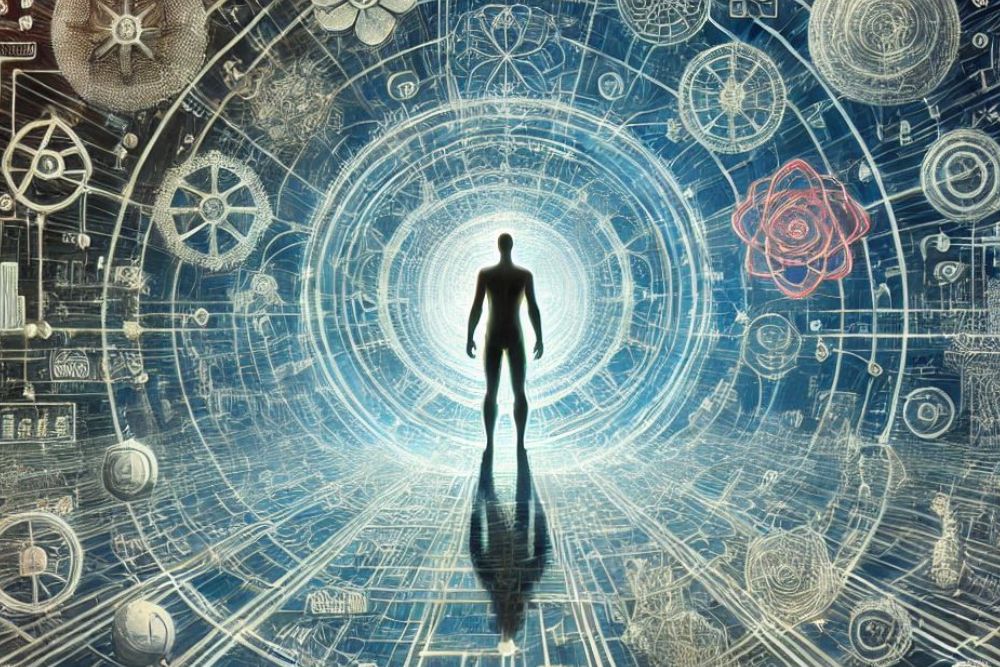
Many times, our attachment actually stems from the desire to maintain a false “sense of power”. For example, have you ever heard about a phenomenon named “Hikikomori” – which happens when one is totally withdrawn from society and isolates oneself completely from the outside world?
While there may be a lot of reasons for a person to act that way, have you ever considered the possibility that they specifically WANT to do so? That it benefits them in some way?
While unhappy with their isolated existence, some may choose to stubbornly remain indoors, as it allows them to garner attention and pity from family and online communities. This superficial attention provides a temporary sense of control, a distorted form of connection.
However, true strength comes from confronting reality and engaging with the world. Back to the example above, it means being courageous enough to “blend in”, let go of the superficial attention one receives while being secluded, and venture out to socialize with others.
We are, after all, not prisoners of the past. While psychologists like Sigmund Freud may promote a deterministic view of cause and effect, others have talked about humanity’s unique capacity for self-determination.
In other words, we have the power to choose how we respond and refuse to be manipulated by circumstances.
Just think about those like Nick Vujicic and Helen Keller. Despite facing extreme physical disabilities, they chose not to be defined by their limitations. Instead, they were able to find purpose and meaning, transforming their challenges into sources of strength and inspiration.
Our beginnings do not necessarily dictate our endings. While past experiences may play a role in shaping who we are now, they do not determine our destiny.
We have the agency to rewrite our narrative, to choose a different path.
Your story may not have such a happy beginning, but that doesn’t make you who you are. It is the rest of your story – who you CHOOSE to be.
Soothsayer – Kungfu Panda 2

Meaning of life
Read more: 28 Motivational Success Stories in Real Life
A rigid philosophical stance
I once came across a simple, yet beautiful analogy between science and philosophy like this: while the former may show us how to create a nuclear bomb, the latter asks whether we should do such an act in the first place.
To me, this comparison highlights the importance of having a well-considered philosophical stance. While most people tend to view philosophy as something “exotic” or an abstract pursuit, I believe that it actually touches every aspect of our lives, from daily decisions to fundamental beliefs.
A holistic, well-thought personal philosophy will bring us closer to an abundant life; while a rigid one does the exact opposite thing.
I would like to give an example of my own experience. Back in the day, growing up in a conservative Christian environment, I held strict views on life, especially concerning things like spirituality and morality. Fixated on doctrines such as heaven-hell and righteousness, I was somehow judgemental and struggled to demonstrate compassion to others – including those deemed as non-believers and those who I considered “hypocrites”.
Around the time I left my third job, this rigidity – along with many other things – caused me to suffer from a loss of meaning. Out of anger and disillusionment, I made numerous poor choices.
I distanced myself from my faith and stopped going to church. Much like C.S. Lewis in his early life, I got disconnected from all things spiritual.
At work, I was like a zombie and only did what I was told to do. I cared little for my co-workers and only thought about work as a way to sustain my living. Nothing more, nothing less.
And I grew weary and cynical toward anyone who offered moral guidance (e.g. priests, monks, teachers, coaches, psychologists, etc.). Not that I hated them or despised their messages; I was just skeptical of their authenticity and underlying motivations.
All in all, I became a “rebellious” figure and lost my connection to the “light”. To the meaning of life.
Ironically, it was a Buddhist (my spiritual mentor) who brought this “prodigal son” back and helped revive my faith in humanity. He imparted to me invaluable lessons, including:
- To avoid idolizing anyone
- To understand that my worth is intrinsic, and
- To learn from others’ teachings without emulating their flaws.
- etc.
Over time, I gradually adopted a more compassionate worldview. I realized that back in the day, I (like those in my neighborhood) was not exposed much to “outsiders” – which was a reason for many of my problems up to now.
Fortunately, my view has broadened thanks to the help of my mentor (and also because of exposure to artistic works like “Life of Pi” and Scorsese’s “Silence” movie).
…
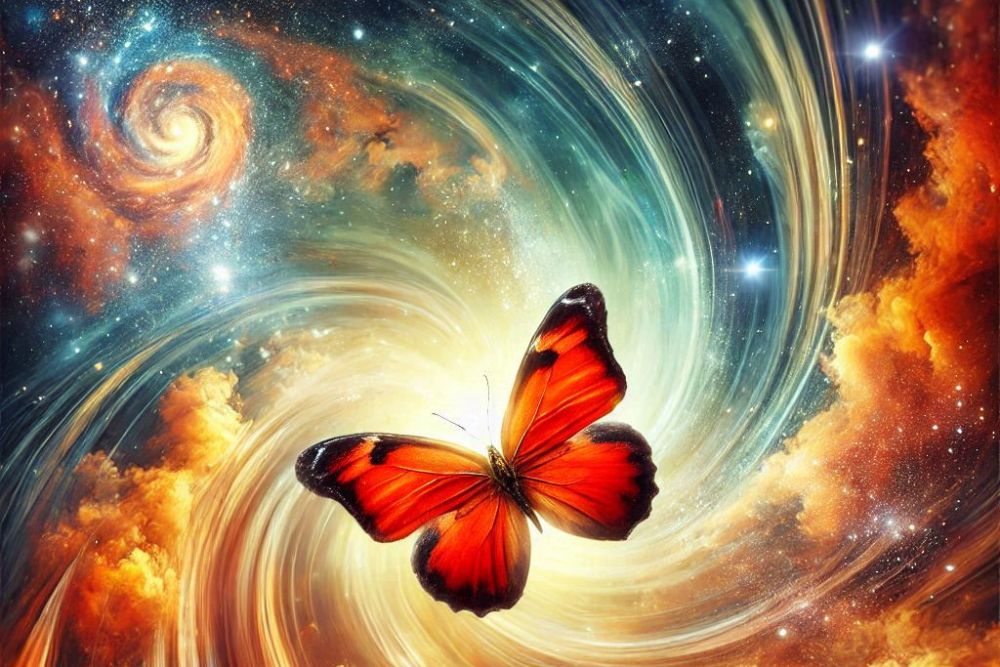
I share this story of mine to demonstrate the importance of having a well-established personal philosophy. It’s not about adhering to a specific teaching or doctrine – but about cultivating a harmonious approach to life. This involves navigating a delicate balance: avoiding the extremes of voluntarism, consumerism, and a dismissive view of the physical world – while simultaneously pursuing knowledge and truth.
This is something that has been reflected in teachings like the Buddha’s Middle Way: to avoid polarized arguments, recognizing that they rarely lead to contentment or liberation. After all, most of our never-ending debates are centered around questions beyond human comprehension and our current understanding.
In the 18th century, philosopher Immanuel Kant discussed a problem called the “antinomy of pure reason“. According to him, human beings, in our attempts to apply conventional logic to interpret the nature of reality (including matters beyond our experience), got trapped in a series of paradoxes:
- The World’s Finiteness or Infinity
- Thesis: The world has a beginning in time and is limited in space.
- Antithesis: The world has no beginning in time and is infinite in space.
- The Divisibility of Matter
- Thesis: All composite substances in the world are composed of simple parts.
- Antithesis: No composite substance in the world is composed of simple parts, but is rather divisible ad infinitum.
- Causality and Freedom
- Thesis: Causality according to natural laws is not the only cause of events in the world; there is also freedom.
- Antithesis: There is no freedom, but all events in the world happen solely according to the laws of nature.
- The Existence of God
- Thesis: There exists a necessary being that is the cause of all things.
- Antithesis: There is no necessary being that is the cause of all things.
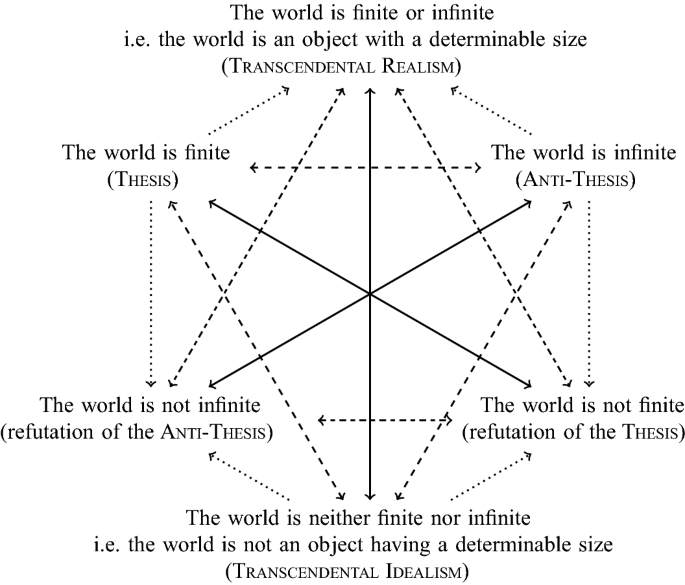
These are pairs of seemingly contradictory – yet equally valid conclusions about the world. As mortals, we can only know the world as it appears to us (phenomena), not as it truly is (noumena). Therefore, both sides of each antinomy are equally valid and invalid at the same time; and arguing for one over the other is just a futile effort.
While debating is important (after all, that’s the nature of philosophy), the purpose, I believe, is to expand one’s horizons and therefore foster compassion – NOT to promote hostility or hatred (which is, sadly, something people often succumb to due to reasons such as ego and politics, and something that has given rise to countless “holy wars” in the past).
After all, it is meant for us to move on – albeit in “light”, not in “darkness”.

As I have mentioned before, I cannot make a definitive claim about where I came from – whether I was a creation of God, a reincarnation of a historical “nobody”, a result of a random cosmic event, or something else entirely. However, I know one thing for sure: the past is unchangeable.
The meaning of life lies not in looking “backward”, but looking “onward” – embracing the present and future.
A rigid outlook on life will only distract us from living a worthwhile and harmonious life. This is something that has been illustrated in stories like the Buddhist’s Parable of the Poisoned Arrow: if someone is shot with a poisoned arrow, the priority is to remove the arrow, not to investigate who shot it, what kind of arrow it is made of, etc.
We should not become so fixated on an ultimate truth that we neglect practical living or judge those with different perspectives. Everything is transient; in the end, all will pass.
As my father has wisely said, everyone has both light and dark sides – like a refrigerator, cold in the front and hot in the back. This is simply human nature. Therefore, we should focus on betting ourselves and practice detachment – while avoiding extremes, greed, and excessive idealization of others.
Whether the world is finite or infinite, limited or unlimited, the problem of your liberation remains the same.
Buddha
At the same time, I would like to stress one thing: detachment doesn’t mean obsessing over non-attachment (which is just another form of attachment). Rather, it comes from accepting the present moment, even its imperfections.
Don’t look for peace. Don’t look for any other state than the one you are in now; otherwise, you will set up inner conflict and unconscious resistance. Forgive yourself for not being at peace. The moment you completely accept your non-peace, your non-peace becomes transmuted into peace. Anything you accept fully will get you there, will take you into peace. This is the miracle of surrender.
Eckhart Tolle
Escapism
In the movie “Ikiru”, the protagonist Kanji Watanabe, after facing a cancer diagnosis and knowing that he has only 6 months left to live, succumbs to despair and an existential crisis. He gets trapped in a horrifying state: on one hand, he longs to truly live – and yet on the other hand, he is too used to existing in a state of oblivion, like a “mummy”.
For years, he has been focusing only on earning money. And now, he does not know what to do with his 10-year savings – which turn out to be quite fleeting in the face of his impending demise.
Watanabe then meets a novelist and asks him to show him how to use his money. How to be “alive” – even if it’s only for a short moment.
The two of them spend that night in a very chaotic way – going to nightclubs, gambling, meeting prostitutes, and singing songs about the shortness of life.
Alas, the indulgence ends with Watanabe vomiting blood along the way back home. It is at that moment that he realizes that hedonistic pleasures do not provide an escape from his fate or his existential emptiness. Death, one day, is going to claim him anyway!
Drinking this expensive sake is like paying myself back with poison for the way I lived all these years.
Akira Kurosawa – “Ikiru”

Meaning of life
Think about that. Have you ever acted in a similar manner before – running away from life’s harsh realities?
When we feel unfulfilled, depressed, or lost, we often seek external distractions – a new goal, a thrilling activity, or simply indulging in pleasures like gaming, excessive coffee, or other sensory experiences. These provide us with immediate gratification – a temporary relief from our miseries.
This behavioral pattern, I have to say, is far too prevalent in today’s fast-paced, materialistic world – where societal norms and marketing often promote a lifestyle of constant consumption and pleasure as the path to happiness. As a result, we are pressured to indulge in certain ways to “fit in” and project an image of success and status – while forsaking the search for deeper sources of purpose.
Ironically, escapism only subjects us to illusions. As fleeting moments of gratification pass, we are ultimately left feeling empty and hollow inside.
How could this be? Why?
From my research and experiences, I can say that we can attribute the problem to a variety of causes:
- Temporary relief: Far too often, hedonistic pleasures offer a temporary distraction from negative emotions, but they don’t address their root causes. For example, playing video games might make a child feel better after an examination failure, yet it provides no solution to his problems at school. Or, drinking coffee might temporarily boost our energy; however, the underlying issues of fatigue or stress remain unsolved.
- Avoidance: Escapism is, after all, a form of avoidance. We use distractions to avoid confronting difficult emotions or challenging situations. This only prevents us from processing our experiences, learning from them, and finding lasting solutions.
- Depletion of resources: Overindulgence depletes our physical and mental resources, leaving us feeling more drained and less equipped to deal with life’s challenges.
- Diminishing returns: According to the Law of Diminishing Return, repeated indulgence desensitizes our brains to rewards, causing us to desire increasingly intense stimuli to achieve the same level of satisfaction. In other words, it creates a cycle of chasing ever-greater highs. Over time, we become dependent on temporary pleasures to escape our problems, further perpetuating emptiness and dissatisfaction.
- Unmet needs: Ultimately, escapism fails because it doesn’t address our deeper human needs. Fleeting sensory experiences are not enough to meet these demands; only high-quality engagement with ourselves, others, and the world can.
As you may see, it’s a common misconception that indulgence equates to a fulfilling life. While pleasure has its place, true meaning arises from a balance of experiences – both pleasurable and challenging.
It is through facing challenges, overcoming obstacles, and contributing to something beyond ourselves that we may discover true purpose and live an authentic life.
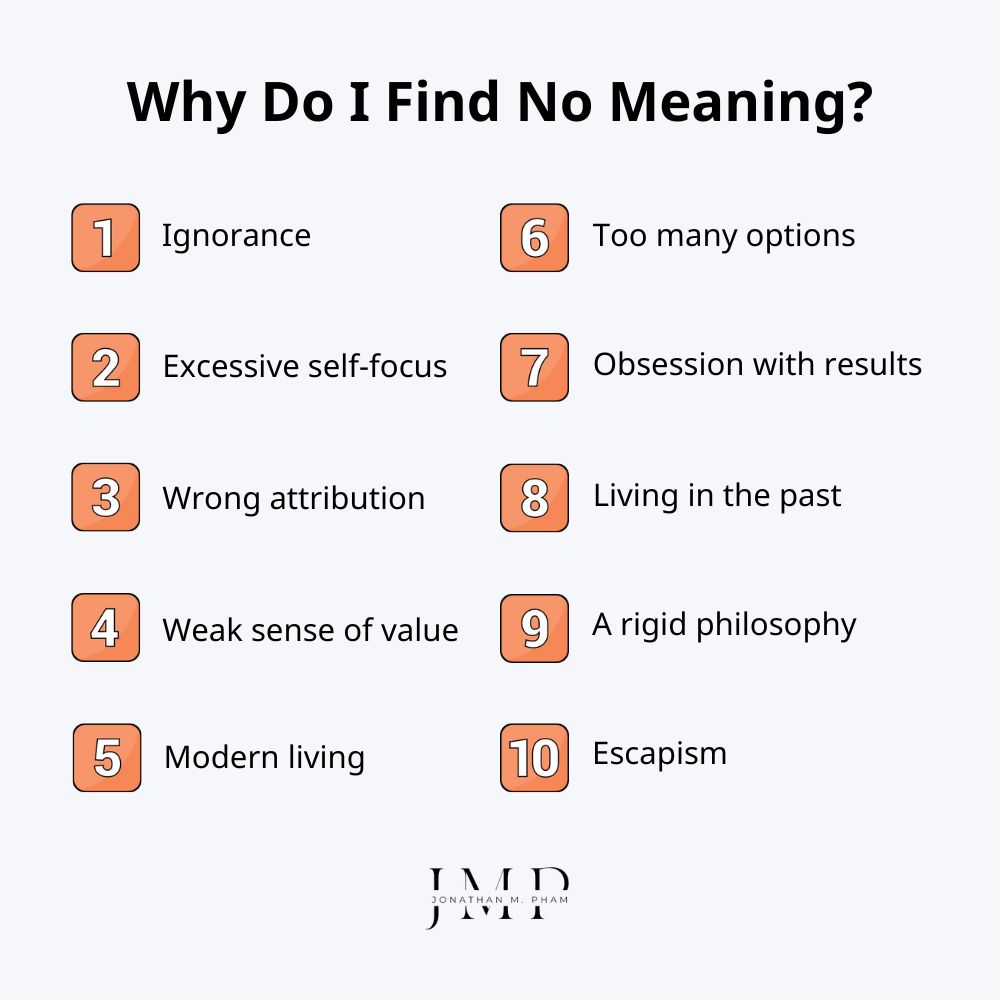
Reasons why one struggle to find the meaning of life
How to Find Your “Way”: Best Practices for a Meaningful Life
Carve out time for self-reflection
What lies behind us and what lies before us are tiny matters compared to what lies within us.
Ralph Waldo Emerson
Discovering the meaning of life begins with looking inward. As simple as it is, most people fail at this stage – worse, many cannot muster the courage to even attempt it in the first place.
Self-reflection is not merely thinking about what happens in the day; rather, it involves examining your current state, uncovering underlying assumptions that have been shaping your life up to now, and ultimately, connecting with the core of who you are beneath the surface.
The first step is to ask yourself: “Where am I now?”. You need to take stock of various aspects of life, including:
- Career: Am I fulfilled by my work? Does it align with my values? Or am I simply going through the motions?
- Relationships: Are my relationships nurturing and supportive? Or are there patterns of conflict or disconnection?
- Personal growth: Am I actively learning and growing as a person? Or am I stagnant?
The process requires patience and a willingness to confront truths that may not be comfortable. Far too often, our minds come up with narratives to protect us from difficult realities. For instance, you might assume that financial success equals happiness, only to realize upon deeper reflection that it leaves you feeling empty inside. Or, you might believe that pleasing others is the key to acceptance, when in reality, it only leads to resentment and a loss of self. Time and honesty are necessary to gently dismantle these “illusions” and listen to the whispers of our souls.
Initially, it is recommended that you start with simpler prompts (e.g. What am I grateful for? What am I good at? What are my fears?). As you become more comfortable with introspection, you can begin to challenge yourself with deeper, existential themes such as:
- Who am I? In other words, it’s about your identity beyond mere roles and labels. What are your core beliefs, values, and motivations? One way to approach this question is to consider what you would still be if you lost everything else – your job, your possessions, your relationships.
- Where did I come from? More than just your family history and upbringing, it’s about considering your spiritual and philosophical beliefs about the origins of life and the universe.
- Where am I going? Think about your purpose and direction in life. What do you want to achieve? What kind of legacy do you want to leave behind? Try envisioning your ideal future self and working backward to identify the steps you need to take to get there.
Most of the time, the answers to the above self-reflection prompts lie beyond the subconscious mind; as such, one may consider the following practices:
- Journaling: Regularly write down your thoughts and feelings without overthinking about them. Try to look for recurring themes and patterns.
- Cultivating presence: This involves creating space for introspection through practices that quiet the mind and connect you with the present moment. Spending time in solitude, whether it’s a quiet walk in nature or a few minutes of stillness each day, allows you to disconnect from external distractions and tune into your inner world. On the other hand, mindfulness practices such as meditation, yoga, Tai Chi, and walking further enhance this connection. As various research has pointed out, these activities can even lead to structural changes in the brain, thereby promoting self-awareness, empathy, and a sense of well-being.
- Active imagination: This technique, derived from Jungian psychology, involves engaging in a dialogue with images or figures that arise in your imagination – so as to gain insights from the unconscious.
- Values clarification exercises: One example is to list down moments in your life when you felt truly fulfilled and then identify the values that were being expressed in those moments. Or, you may also try imagining your own eulogy and considering what you would want people to say about you.
The mind unconsciously loves problems because they give you an identity of sorts.
Eckhart Tolle

Think about what aligns with your “vibration” (hadō)
Hadō is the subtle energy that exists in all things.
Masaru Emoto
Have you ever felt a deep sense of connection to something – an activity, a place, or even a person – that makes you feel truly alive?
This feeling, this inner resonance, is what we call hadō (波動) – a concept that refers to the subtle energy or vibration that permeates all things.
Everything in the universe is made up of energy that vibrates at a specific frequency. Our thoughts and emotions also have their own unique vibrations (hadō). This idea of inner resonance is similar to the idea that like attracts like – when we are in tune with our true selves, we naturally attract experiences and opportunities that are aligned with our deepest values and desires.
Tuning into your hadō means identifying what truly resonates with you, what brings you a sense of deep, innocent bliss – a feeling we’ve all experienced at some point in our lives (especially during childhood). This is a powerful indicator of alignment with your true self.
It’s crucial to distinguish hadō from fleeting hedonistic pleasures. While momentary pleasures, as Sigmund Freud suggested, can contribute to a sense of meaning, they shouldn’t be the primary focus.
Activities like endlessly scrolling through social media or playing video games might indeed offer temporary distraction; however, they rarely lead to lasting contentment.
At its core, hadō is about something deeper: a sense of profound connection and purpose that transcends the self. It manifests when you experience a sense of fulfillment that goes beyond mere gratification – whether through volunteering your time to a cause you believe in, creating art that expresses your inner world, or mentoring others.
Embracing your hadō means identifying what makes you lose track of time and even basic needs like eating -activities that fully engage you, like writing a novel, playing music, or engaging in deep conversation about ideas you care about. Many times, it’s already here right before you; you are just not aware of it or not willing to accept it yet.
Example: A brilliant software engineer, known for her razor-sharp mind and problem-solving abilities, found herself increasingly drawn to her small garden. She would spend hours tending to her plants, experimenting with different techniques, and feeling a deep sense of peace and fulfillment. She realized that while her job was intellectually stimulating, it didn’t ignite the same passion as her gardening. Nurturing life, in this way, resonated more deeply with her than tending to machines.
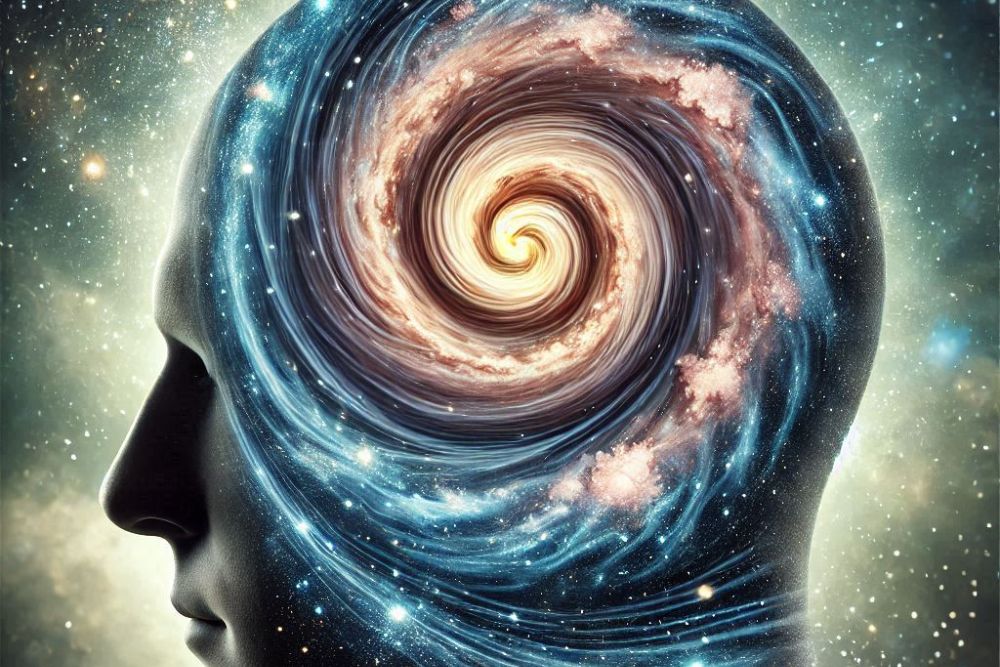
Meaning of life
Attaining alignment with one’s hadō is no simple feat. Adulthood and the pressures of modern life often cause us to lose touch with our resonant frequencies. We become trapped in a cycle of earning and desiring more, forgetting the simple joys that once defined us.
Embracing your hadō is about aligning yourself with the natural “flow” of life. As proposed by psychologists like Mihaly Csikszentmihalyi, the “flow” state is characterized by complete absorption in an activity, a sense of effortless action, and a loss of self-consciousness. It occurs when we are fully engaged in something that challenges us appropriately and utilizes our strengths.
When we are in “flow”, we are fully engaged in something that resonates with our core being, allowing us to tap into our full potential.
Rather than constantly trying to fix your weaknesses or conforming to societal expectations, you should focus on your strengths and what truly matters to you. The reason is simple: if you genuinely enjoy something, you’re more likely to excel at it.
By identifying your core strengths and directing your energy there, you begin to resonate with your true vibration and find your way back to that sense of innocent bliss. This shift in focus can profoundly change the trajectory of your life.
Easier said than done. One common obstacle to this process is our tendency to adopt a conditional mindset. We set conditions for happiness based on external factors like wealth, fame, or fleeting pleasures. We believe, “If I only had X, then I would be happy.”
This approach is inherently flawed – because it seeks unlimited happiness in limited and ever-changing things. Ultimately, it prompts us to commit inauthentic choices. For example, someone with a deep passion for art might choose a stable but unfulfilling office job due to societal pressure or fear of financial insecurity.
We need to recognize and honor our innate calling, even if it deviates from societal norms. This is something that author Ken Mogi has observed in his book – when he mentions Japan’s anime industry. As he has pointed out, one thing that often goes unnoticed is that most people who work in this industry do not receive very high pay.
And yet, many Japanese individuals – driven by an internal vibration, a deep resonance with their creative calling – choose to pursue their passion for creating anime rather than opting for more traditional, higher-paying careers.
This is a prime example of what it means to tune in to one’s hadō – and forsake the norms in the process. Only then may one find lasting joy in what they do every day.
A musician must make music, an artist must paint, a poet must write, if he is to be ultimately at peace with himself. What a man can be, he must be.
Abraham Maslow
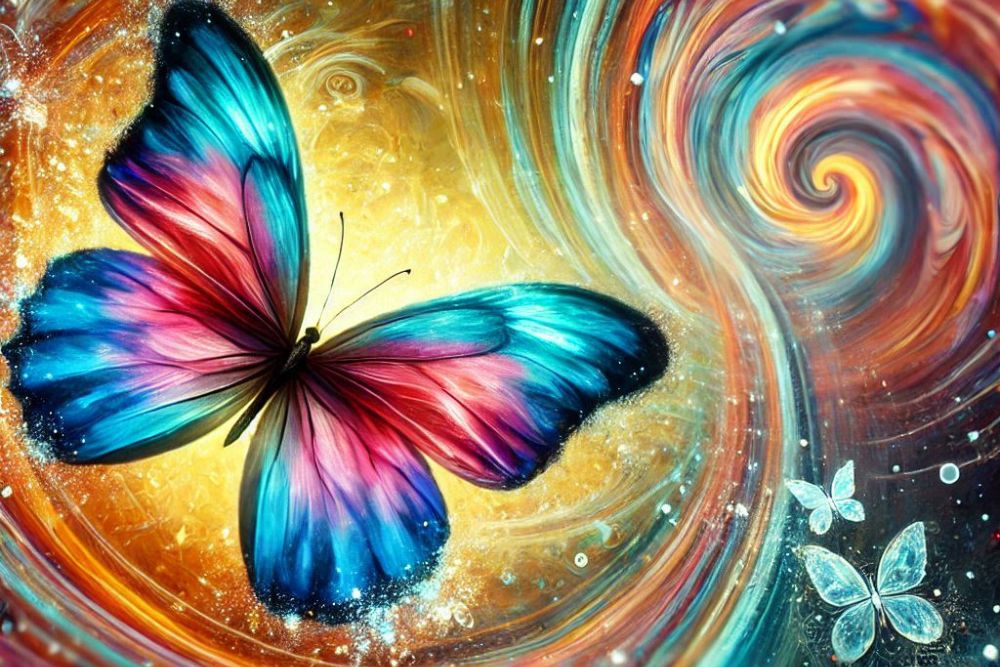
Meaning of life
Experiment
Don’t just sit there and aimlessly wander through life. Pick a path. And realize the path may change, and it’s okay. At least you’re going somewhere. If the path works, great. If it doesn’t work, change it. At least you have a path.
Marshall Goldsmith
This powerful quote speaks to the heart of the matter: finding meaning in life is not a passive process. It requires action, exploration, and a willingness to embrace the unknown. It’s about embarking on a journey, even if the destination is unclear.
The key is to experiment, to try different paths and see where they lead, without fear of failure or “wasted” time. After all, life’s duration is inherently uncertain (we cannot know for sure how long we are going to live), so why not use the time you have to explore its possibilities? Why are we so obsessed with the idea of “wasting” time that we end up “wasting” it in reality – by refusing to take action?
It’s worth noting that many times, clarity about one’s “Way” can emerge from unexpected sources. Engaging in activities outside your usual routine, such as volunteering or pursuing hobbies, may reveal hidden aspects of your personality and provide valuable insights into your values and passions.
For example, someone who volunteers at an animal shelter might discover a deep well of empathy and a passion for animal welfare. This could lead them to pursue a career in animal care or simply incorporate animal advocacy into their life.
Similarly, someone who takes up painting might uncover a latent need for creative expression, which could open up new avenues for self-discovery and fulfillment.
The important thing is to remain open to new experiences and to never stop asking yourself what truly resonates with you.
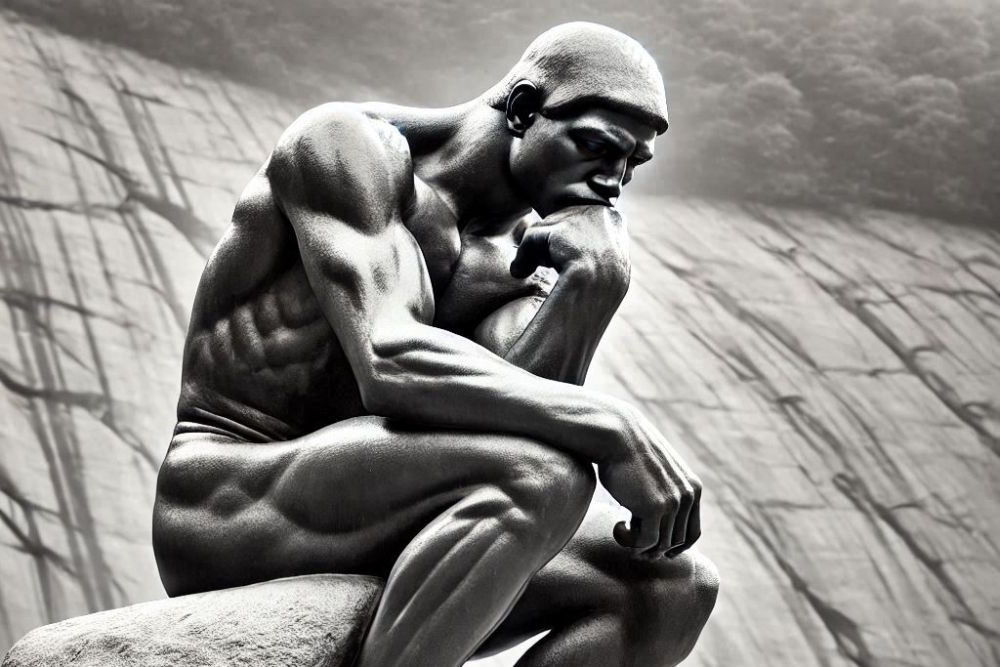
Meaning of life
A crucial aspect of experimentation is non-attachment. This doesn’t mean giving up on goals or not caring about the outcome. Rather, it means not clinging rigidly to a specific outcome or identity.
When we are attached to a particular result, we become resistant to change and miss out on valuable learning opportunities. We risk defining ourselves by our successes and failures, rather than by the process of exploration itself.
Here are some examples of how non-attachment applies to experimentation:
- Career: You might have started down a specific career path, only to realize after some time that it’s not the right fit. Non-attachment means being willing to change direction, even if it means starting over in some ways. It’s about valuing the experience you gained and using it to inform your next steps, rather than feeling like you’ve “wasted” time.
- Relationships: In case you have invested time and energy into a relationship that ultimately doesn’t work out, just accept it without bitterness or regret. After all, the relationship has served its purpose – and new opportunities for connection will arise.
- Hobbies & interests: You might try a new hobby, like learning a musical instrument, only to discover that you don’t enjoy it as much as you thought you would. Non-attachment means being okay with setting it aside and trying something else, without feeling like you’ve failed or wasted your time. The act of trying itself was commendable.
- Beliefs & ideas: As we grow and learn, our beliefs and perspectives naturally evolve. As such, we need to be open to changing our minds, even about deeply held convictions. In other words, we need to value truth and understanding over being “right.”
By embracing non-attachment, you free yourself to explore without fear, allowing life to unfold in unexpected and often beautiful ways.
Any action is often better than no action, especially if you have been stuck in an unhappy situation for a long time. If it is a mistake, at least you learn something, in which case it’s no longer a mistake. If you remain stuck, you learn nothing.
Eckhart Tolle
How to find your purpose
Seek guidance
We do not find the meaning of life by ourselves alone – we find it with another.
Thomas Merton
The journey to finding your “Way” is rarely a solitary one. While self-reflection and experimentation are essential, you shouldn’t be afraid of seeking support from others. This doesn’t mean relinquishing your own autonomy or blindly following someone else’s path. Rather, you now take advantage of insights and learning from the experiences of those who have walked similar roads or possess expertise in areas you’re exploring.
Guidance can come from various sources, including:
- Coaches and mentors.
- Teachers and spiritual leaders.
- Friends and family
- etc.
When choosing someone to guide you, consider the following factors:
- Expertise: Do they have relevant experience or knowledge in the area you’re seeking guidance in?
- Values: Do their values align with your own?
- Objectivity: Can they offer unbiased advice and perspective?
- Trust: Do you feel comfortable being open and honest with them? Do they have your best interests at heart?
Ultimately, the decisions about your life are yours to make. Guidance should be used to inform your choices, not dictate them. Take the advice you receive, reflect on it, and then make your own decisions based on what feels right for you.
Just as with experimentation, it’s important to maintain a sense of non-attachment to the specific advice you receive. What works for one person may not work for another. Be open to different perspectives, but ultimately trust your own intuition and judgment.
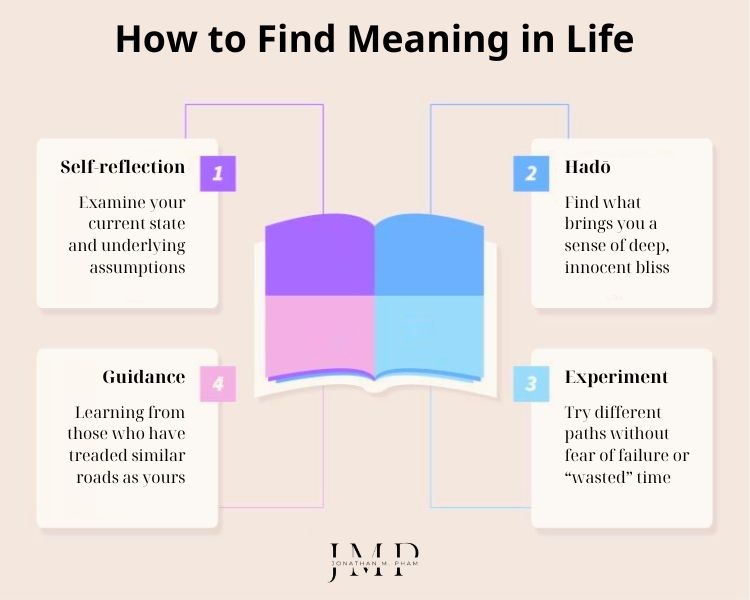
How to find the meaning of life
Principles for Finding the Meaning of Life
Do not stay idle or procrastinate
Ultimately, man should not ask what the meaning of his life is, but rather must recognize that it is HE who is asked. In a word, each man is questioned by life; and he can only answer to life by answering for his own life; to life he can only respond by being responsible.
Viktor E. Frankl
The idea here is simple: we need to shift the focus from passively searching for a pre-ordained purpose to actively responding to life’s constant demands. Every moment, we are each being questioned by life, and our answer lies in how we live.
While the ultimate answer to the meaning of life may remain elusive to many of us, the very act of seeking, of continuously questioning, will draw us closer to understanding.
Imagine searching for a lost item in a darkened room. Even if you don’t immediately find it, each sweep of your hand, each step you take, refines your search and increases your chances of discovery.
The same is true for meaning; the active pursuit is itself a form of finding.
Speaking of which, I remember once reading a beautiful story like this:
One night a group of nomads were preparing to retire for the evening when suddenly they were surrounded by a great light. They knew they were in the presence of a celestial being. With great anticipation, they awaited a heavenly message of great importance that they knew must be especially for them.
Finally, the voice spoke, “Gather as many pebbles as you can. Put them in your saddle bags. Travel a day’s journey and tomorrow night will find you glad and it will find you sad.”
After having departed, the nomads shared their disappointment and anger with each other. They had expected the revelation of a great universal truth that would enable them to create wealth, health and purpose for the world. But instead they were given a menial task that made no sense to them at all. However, the memory of the brilliance of their visitor caused each one to pick up a few pebbles and deposit them in their saddle bags while voicing their displeasure.
They traveled a day’s journey and that night while making camp, they reached into their saddle bags and discovered every pebble they had gathered had become a diamond. They were glad they had diamonds. They were sad they had not gathered more pebbles.

As you may see, the nomads in the story expected a grand revelation; however, they were instead instructed to gather pebbles. Disappointed by the seemingly pointless task, they reluctantly complied. Only later did they discover that each pebble had transformed into a diamond.
One common mistake of humanity is to yearn for a single, definitive answer – while overlooking the significance of small, consistent efforts. We must focus on the “pebbles” – the daily actions, the small steps we take – rather than fixating on the distant, perhaps overwhelming, “diamonds”.
“Practice makes perfect,” as the saying goes, and this applies equally to the pursuit of a meaningful life.
It’s not that I’m so smart, it’s just that I stay with problems longer.
Albert Einstein
Imagine the “Way” as a river. Its flow is constant, yet it meanders, encountering obstacles and changing course. Our journey on this “Way” is similar. It won’t always be a straight path. There will be challenges, detours, and moments of uncertainty. But as long as we keep moving and engaging, we will progress.
Our “Way” is like a seed planted within us; it needs nurturing – through mindful action – to sprout and grow. Through introspection, experimentation, and seeking guidance, we gather the “pebbles” that will eventually reveal our personal treasure.
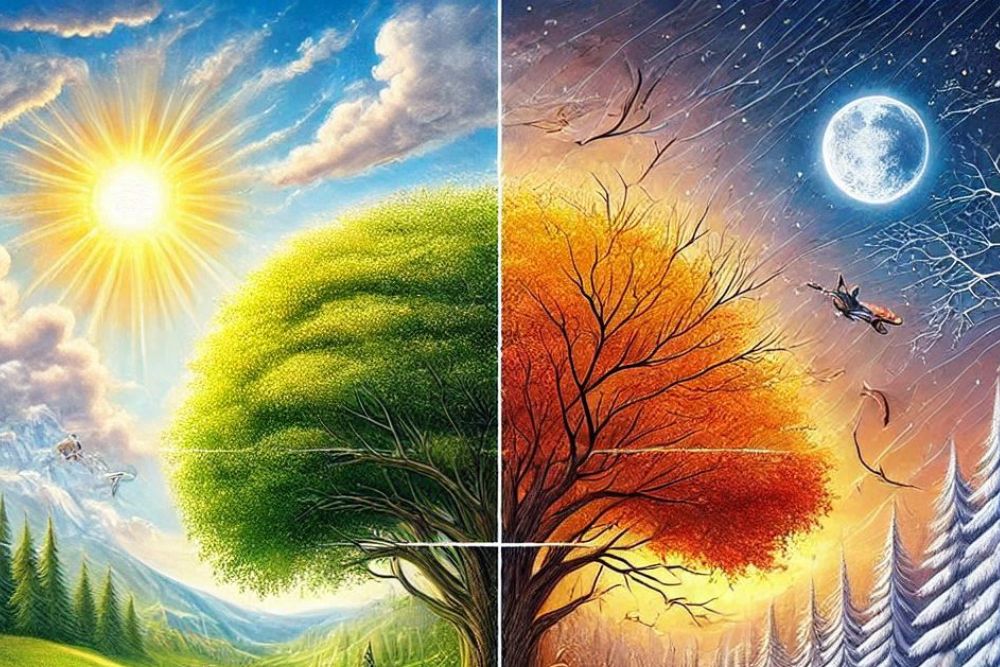
Meaning of life
Often, procrastination stems from ignorance – a lack of awareness about our true calling, what truly resonates with us. We become trapped in the mundane, burdened by the demands of daily life, losing sight of the bigger picture.
In these moments, we must take a step back and do what Paulo Coelho has advised:
Listen to your heart. It knows all things, because it came from the Soul of the World and it will one day return there.
Our heart, our intuition, connects us to something deeper, a wellspring of wisdom that can guide us when we feel lost. Many times, we dismiss its whispers as impractical or illusory. However, as we start tuning to it, we will be rewarded with a sense of purpose we haven’t anticipated before.
Another obstacle to taking action is being paralyzed by conflicting philosophies. As mentioned, some scholars believe in a preordained purpose, while others argue that meaning is self-created.
For my part, I believe wholeheartedly in the power of personal agency, as J.K. Rowling has suggested:
It is our choices that show what we truly are, far more than our abilities.
We have the capacity to choose our responses, to shape our own paths, regardless of external circumstances. Even if a predetermined path exists, it remains dormant without active engagement. In other words, if we do not search for it, we will end up wasting our lifetime.
Conversely, even without a pre-ordained purpose, the act of seeking itself will create meaning.
Ask and it will be given to you; seek and you will find; knock and the door will be opened to you.
Matthew 7:7
Even in the face of absurdity or suffering, we still have the ability to shape reality through the power of belief and action. Even if we cannot say for sure where we will end up yet, we just need to have faith and take action (“Blessed are those who have not seen and yet have believed“).
If you can’t fly then run, if you can’t run then walk, if you can’t walk then crawl, but whatever you do you have to keep moving forward.
Martin Luther King Jr.
One of the most powerful antidotes to idleness is education and continuous learning. As Fukuzawa Yukichi has observed:
Heaven does not create one man above or below another man. Any existing distinction between the wise and the stupid, between the rich and the poor, comes down to a matter of education.
By expanding our knowledge, exploring different perspectives, and engaging with the world around us, we equip ourselves with the tools to discover our own path. Reading philosophical texts, engaging in high-quality conversations, or learning a new skill – these all open up new avenues of thought and self-discovery.
Ultimately, the key is to do our best, to believe in the power of our actions, and to live fully in the present moment. It’s about internalizing this simple truth: only the present matters.
Yesterday is history. Tomorrow is a mystery, but today is a gift. That’s why it’s called the present.
Master Oogway – Kungfu Panda

Meaning of life
Do not be afraid to question assumptions
Our lives are typically guided by a set of deeply ingrained assumptions about the world, ourselves, and our place within it. These premises, which stem from a combination of spiritual, religious, cultural, or even personal beliefs, are what shape our decisions and actions.
The thing is, as we reach certain stages in life, some of them may no longer serve us. Hence, it’s crucial to periodically re-examine them. No matter what they are about, rigid assumptions (e.g. success being tied to material wealth, happiness being dependent on external validation, or a specific religious doctrine being the only path to truth) will only trap us within our current horizons.
One particularly damaging tendency is to adopt an exclusive stance on life rather than a universal one. By clinging to a single perspective and rejecting all others, we create divisions and lose sight of our shared humanity. This results in a lack of compassion and hinders our connection to something larger than ourselves – which is essential for an “earned life”.
Example: Believing that one’s own religion is the only true path will lead to intolerance and dismissal of other spiritual traditions, preventing us from learning from their wisdom and recognizing the common threads that connect us all.
In the book “The Courage to be Happy”, author Ichiro Kishimi presents an insightful perspective as follows:
In our search for truth, we are walking on a long pole that extends into the darkness. Doubting our common sense and engaging in continual self-questioning, we just continue to walk on that pole without any idea of how far it may go. And then, from out of the darkness one hears a voice inside saying, ‘Nothing further lies ahead. Here is truth.’
So, some people stop listening to their internal voice and stop walking. They jump down from the pole.
Do they find truth there? I don’t know. Maybe they do, maybe they don’t. But stopping in one’s steps and jumping off the pole midway is what I call religion.
With philosophy, one keeps walking without end. It doesn’t matter if gods are there or not.
Philosophy is more of a living attitude than a field of study. Religion may convey all under the name of god. It may convey an all-knowing, almighty god and the teachings handed down by that god. This is a way of thinking that conflicts fundamentally with philosophy.
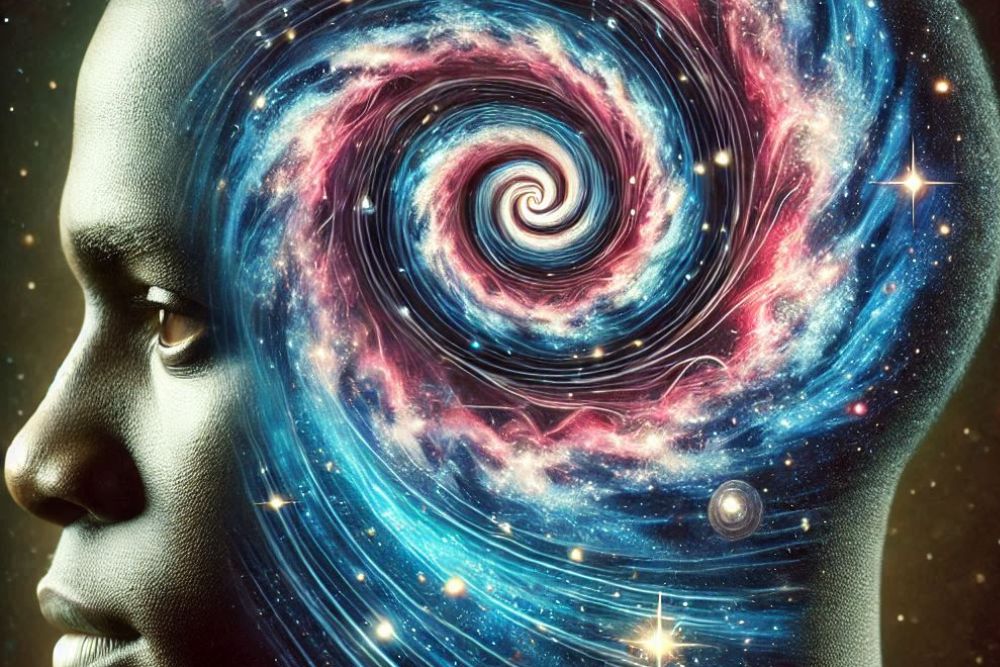
While many religions may advocate for faith in “absolute truths” – therefore potentially discouraging further inquiry, philosophy is about embracing uncertainty and the continuous pursuit of knowledge.
After all, even those who don’t adhere to a specific religion can still become dogmatic by claiming to know everything and ceasing to question. As those like Socrates and Confucius have remarked, such an attitude is just a form of utmost ignorance.
I would like to demonstrate this point with my own experience. As someone who has practiced Christianity for years and contemplated life’s deeper questions, I dare to say that I believe in the existence of an afterlife – though I am not quite sure about its exact nature and hence remain open to different interpretations, including the idea of reincarnation.
My personal experiences have led me to consider this possibility, even though it might not align perfectly with traditional doctrines.
At the same time, I deeply respect those who don’t have faith in an afterlife. In fact, I’ve observed that some individuals without this belief are powerfully motivated to contribute to the present world, focusing on making a tangible difference rather than fixating on what might lie beyond.
This dedication to the present is something I truly admire.
My point here is to neither promote nor reject religious faith, but to advocate for a thoughtful and nuanced approach, one that allows for questioning and personal exploration (rather than blindly accepting what is preached or imposed upon us by the elders).
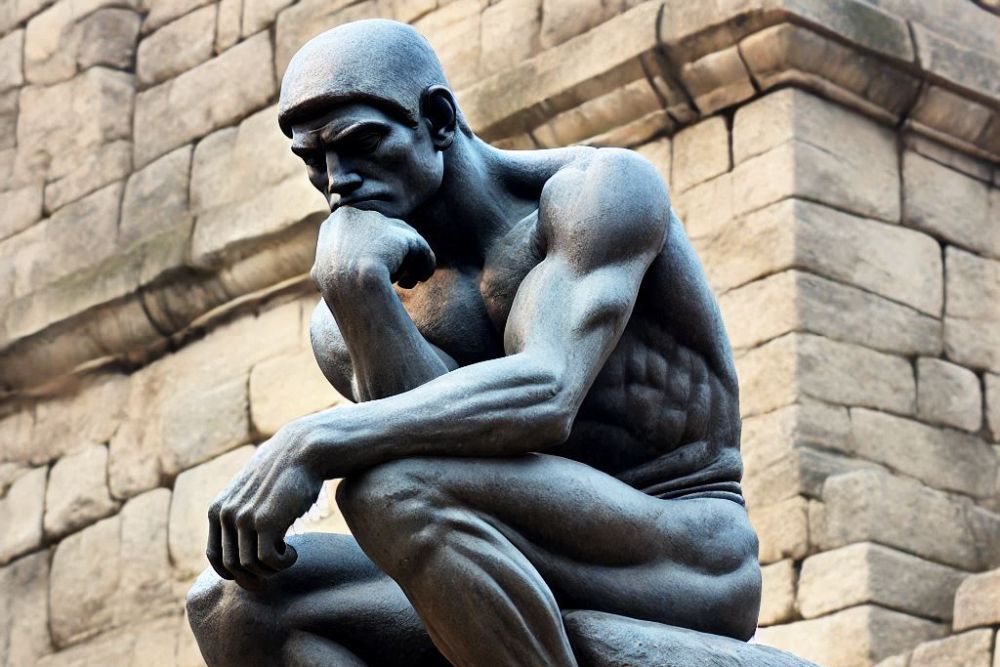
Meaning of life
We need to evaluate everything with an inquisitive mind – even for seemingly innocuous things. For instance, sometimes while surfing the Internet, I come across inspirational quotes that talk about humanity as a whole and about helping others.
I have noticed how these sayings make people (including me too) feel good and inclined to take action (e.g. like, share). At the same time, I cannot help but wonder: Why?
Sometimes, I find them quite uplifting and empowering. And yet other times, I have a feeling that they are somehow trite or even manipulative.
According to my own research, inspirational words often tap into our innate desire for connection and meaning. They make us feel good for several reasons:
- Validation: Quotes that speak to universal human experiences make us feel understood and validated. Seeing our own thoughts and feelings reflected in the words of others is a comforting and reassuring experience.
- Hope and inspiration: Many quotes convey messages of hope, resilience, and the potential for positive change, which uplift our spirits and motivate us to overcome challenges.
- Connection to a larger purpose: Quotes that encourage altruism and helping others prompt us to feel connected to something bigger than ourselves – hence giving us a sense of purpose.
However, we need to be mindful of their double-edged nature. While words provide a potent source of motivation and inspiration, they can also be used to manipulate emotions or promote a particular agenda. Hence, it is important to approach them with a critical eye – and to use them as a tool for personal reflection and growth, rather than as a source of unquestioned truth.
For example, if a saying emphasizes the importance of selflessness, we should ask ourselves what selflessness means in practice first – and how it aligns with our own values and experiences.
As Nietzsche has stated:
If you wish to strive for peace of soul and pleasure, then believe; if you wish to be a devotee of truth, then inquire.
We need to strike a balance between faith and inquiry. Depending on our individual needs and circumstances at the time, it’s natural to fluctuate between these two states.
There are times when seeking solace in established beliefs can provide comfort and stability. However, there are also times when we should embrace the discomfort of questioning to grow and deepen our understanding.
It is through this process of questioning, exploring, and even experimenting with different perspectives that we develop compassion for others and expand our own knowledge – both of which are crucial components of a meaningful life.
It is not freedom from conditions, but it is freedom to take a stand toward the conditions.
Viktor E. Frankl
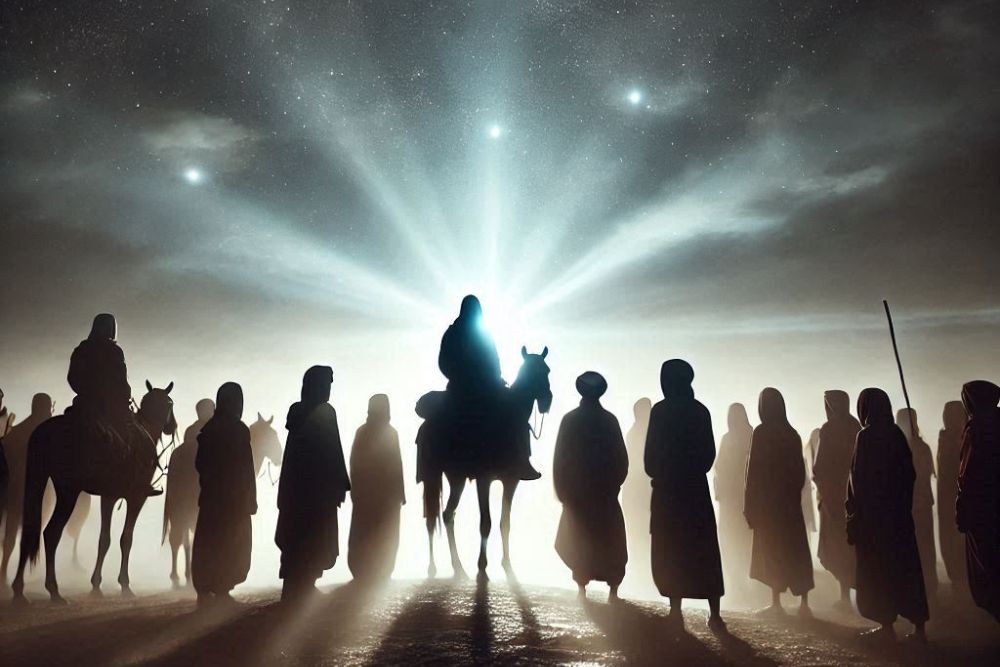
The meaning of life pertains to the spirit
Attending to our spiritual needs is not a luxury; it is a fundamental aspect of what it means to be human. As Abraham Maslow stated:
The spiritual life is part of the human essence. It is a defining characteristic of human nature, without which human nature is not fully human.
Back in the day, Sigmund Freud proposed that pleasure was a primary driver of human behavior. While his theory has found support in neuroscience – particularly in research on brain regions like the nucleus accumbens and the ventral tegmental area – it doesn’t tell the whole story.
The pursuit of pleasure and reward is undoubtedly a part of human motivation. However, neuroscience also demonstrates that activities like altruism, creativity, and social connection activate these same reward centers. Our sense of purpose, therefore, is not solely derived from fleeting sensory experiences – but also from deeper, more lasting ones.
Unfortunately, the influence of theories like Freud’s, combined with our fast-paced, consumerist society, has led many to equate hedonistic pleasures with true meaning. This “YOLO” (You Only Live Once) mindset, particularly prevalent among younger generations, often manifests in the pursuit of superficial experiences – endless scrolling through trivial content, viewing nonsense TikTok videos, obsessively focusing on memes/ idols, engaging in online negativity/ trash talks, and so on.
Just think about this. If you saw your own children or loved ones engaging in such activities to the exclusion of more worthwhile pursuits, would you feel content?
If you knew you had only 6 months left to live, would you choose to spend that precious time in such a way?
Life is too precious to be squandered on such fleeting distractions!
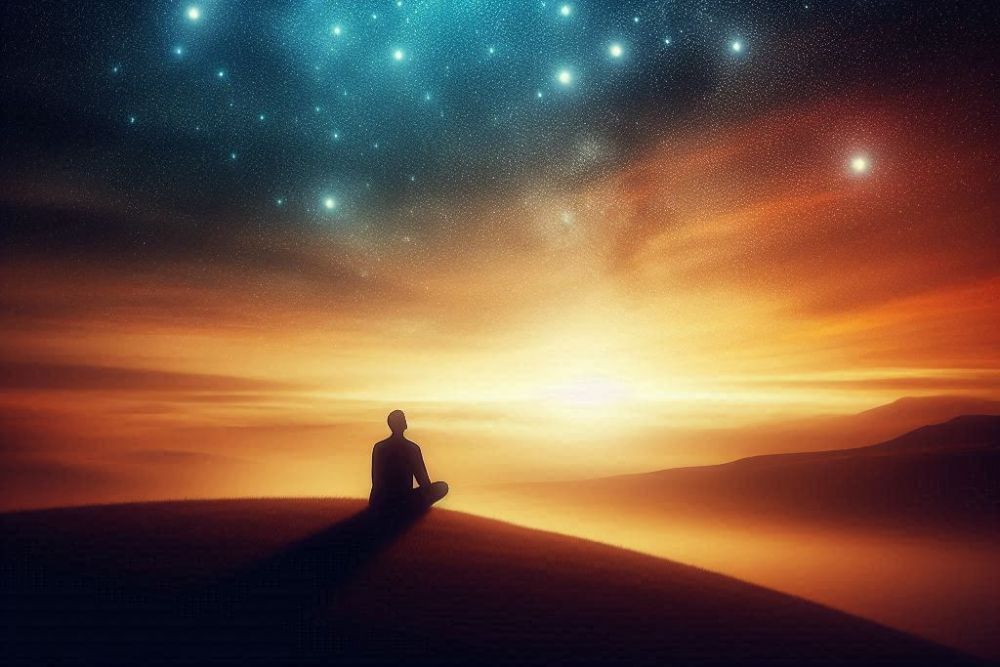
In psychology (as well as many spiritual traditions), there is a widespread belief that life is a creation of 3 fundamental principles: Mind, Consciousness, and Thought. From this viewpoint, the true meaning of life lies in exploring our consciousness, expanding our understanding of the universe, and connecting with something greater than ourselves. This means prioritizing spiritual growth and personal development over the accumulation of material possessions.
Material things, by their very nature, are impermanent. We may find temporary comfort in them, clinging to the familiar as a form of self-defense, but this clinging ultimately leads to suffering, both for ourselves and potentially for others. As such, it’s better to cater to the spirits than just to “store up treasures on earth, where moths and vermin destroy, and where thieves break in and steal”.
Now, I would like to clarify this point: spirituality is NOT synonymous with organized religion – which is just one among the many paths that foster spiritual growth.
As discussed in the context of the “Way”, you can think about religion as a personal practice rather than a rigid set of doctrines. While it’s perfectly OK to adhere to an organized faith (I identify myself as Christian – while also exploring other traditions like Buddhism and humanism to expand and improve my Christian core), it’s equally valid to cultivate spirituality outside of any specific institution.
As the Dalai Lama eloquently stated:
My religion is very simple. My religion is kindness.
His simple, yet profound words capture the essence of both spirituality and humanity: cultivating compassion and living virtuously. This is what it means to truly live as human beings.
In their works, authors like Ken Mogi and Masaru Emoto have talked extensively about Shintoism, the native religion of Japan. According to them, the core of Shintoism is an emphasis on seeing the divine within everything. It encourages practitioners to live in harmony with nature, practice humility, and show respect to all beings, even inanimate objects like one’s table or the tree beside one’s house.
By recognizing the presence of “kami” or the divine in all things, we naturally cultivate compassion, social harmony, and a sense of responsibility toward the environment.
Ultimately, the quest for the meaning of life is about cultivating one’s heart – which has the remarkable power to shape reality. As demonstrated in O. Henry’s story “The Last Leaf,” a strong heart is capable of transforming our perception and giving us a renewed sense of purpose. Conversely, a weak or closed one will leave us feeling empty and devoid of significance, even while we are physically alive.
Taking care of our spiritual selves, practicing compassion, and connecting with something that goes beyond the limited self are essential for a truly abundant life.

Nurture a sense of community
A man is like a forest; individual and yet connected and dependent on others for growth.
Ken Mogi
Dr. Viktor Frankl once recounted an incident when a student asked him about his opinion on life’s meaning. Frankl then wrote on a piece of paper and invited everyone in the classroom to guess what he had written. To his surprise, one student said:
“The meaning of your life is to help others find the meaning of theirs.”
“That’s right!”, replied Frankl.
As psychologists like Alfred Adler have proposed, a sense of community – a feeling of belonging and connection to a greater whole – is a crucial component of a meaningful life.
Deep down, we all yearn for fairness, peace, and harmony. Witnessing injustice or suffering often prompts us to question the very nature of existence, including the existence of God, divine justice, and karma.
This innate desire for a just and harmonious world underscores the fundamental importance of community in the human experience.
Love and connection are, after all, essential to one’s well-being. Sharing experiences, offering support, and receiving love from others enriches our lives and gives us a sense of significance.
Whether it’s family bonds, close friendships, or romantic relationships, these connections all provide a foundation of intimacy and belonging that enables us to sustain through life’s challenges.
Personally, I’ve found immense meaning through the support of my spiritual mentor and a network of friends/ mentors who share my values and vision for human development. These connections have empowered me to pursue a less conventional path, one that aligns with my deeper values rather than simply following traditional career norms.
If you are struggling on your journey, my suggestion is that you should venture out of your comfort zone and seek out your “tribe” – those who are at the same “vibration” (hadō), who resonate with your values and aspirations – rather than isolating yourself in a self-imposed “prison”. Stop chasing vanities; instead, spend more quality time with those who hold the most dear!
The true meaning of life is to be discovered in the world rather than within man or his own psyche, as though it were a closed system.
Viktor E. Frankl
Meaning of life TED Talk
A crucial aspect of nurturing a sense of community is letting go of the relentless desire to win at all costs – which I would like to demonstrate with a cultural example here.
In Japan, there is a strong emphasis on sportsmanship, humility, and respect for opponents. Even after a significant triumph, athletes are expected to display restraint in their celebrations. Excessive displays of emotion or disrespect are frowned upon and can even lead to social backlash or official penalties (i.e. the referee may decide to strip the victor of his victory in certain cases).
While this emphasis on humility is not without its complexities, its core idea – that winning should NOT be the ultimate goal – has contributed significantly to a harmonious and sustainable sporting environment in Japan.
The same principle can be applied to how one lives – specifically, we need to prioritize humility, restraint, and sustainable growth over the fleeting gratification of personal glory or material wealth.
Life is about understanding, coexistence, and contributing to the greater good, not about being “the best” or “number one.” We, as human beings, are not simple creatures driven solely by natural selection; we are capable of transcending purely self-serving motivations and conventional justice.
Our prime purpose in this life is to help others. And if you can’t help them, at least don’t hurt them.
Dalai Lama
As my father has observed, in the quest for meaning, we eventually have to release all notions of a self-centered self.
By helping others on their journeys, we illuminate our own path. It’s a beautiful paradox: the more we give, the more we receive.
Love is the ultimate and highest goal to which man can aspire. The salvation of man is through love and in love.
Viktor E. Frankl
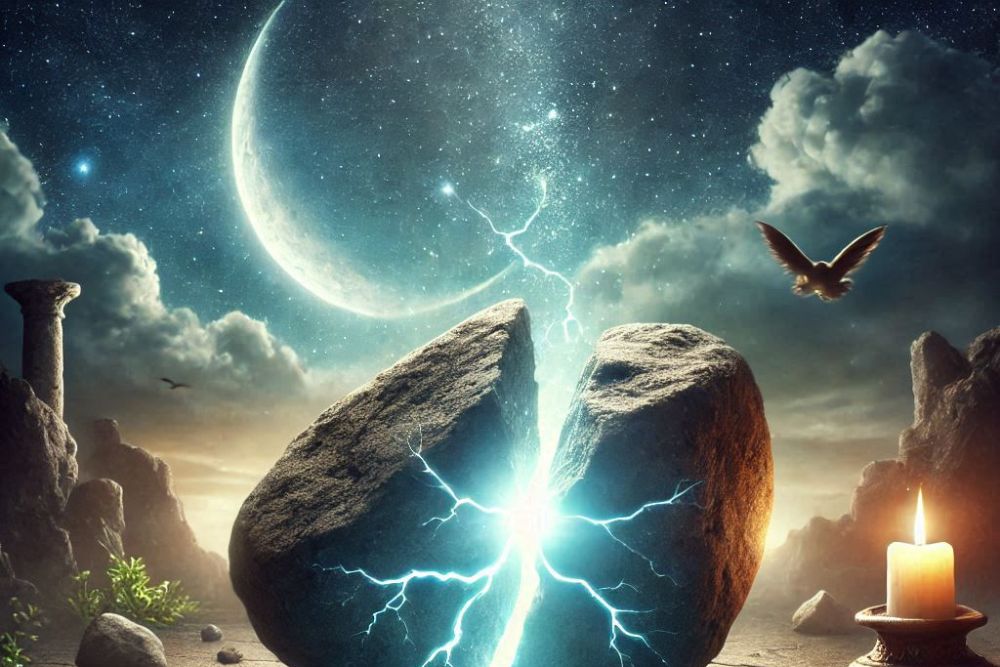
Meaning of life
Cherish the seemingly trivial things
When you take notice of the small details of life, nothing is repeated. Every opportunity is special.
Ken Mogi
In his book, Ken Mogi recounts a story about a professor at Cambridge who cherished a clumsily made chair, simply because his father had made it for him as a child:
I remember a special chair I encountered in the United Kingdom. For a couple of years in the middle of the 1990s, I was doing postdoctoral research in the Physiological Laboratory at the University of Cambridge. I was lodging in a house owned by an eminent professor. When he showed me the room I would be staying in, he pointed to a chair and explained that it had sentimental value for him: his father had made it especially for him when he was a small child.
There was nothing extraordinary about the chair. To be honest, it was rather clumsily made. The design was not refined, and there were ragged, irregular features here and there. If the chair was for sale in a market, it wouldn’t have fetched much money. Having said that, I could also see, by the glimmer in the professor’s eyes, that the chair had a very special meaning for him. And that was all that mattered. It had a unique place in the professor’s heart, just because his father had made it for him. That is what sentimental values are all about.
This is just a small example, but it is a powerful one. Ikigai is like the professor’s chair. It is about discovering, defining and appreciating those of life’s pleasures that have meaning FOR YOU. It is OK if no one else sees that particular value.
One crucial lesson in our pursuit of meaning is to recognize the value of seemingly trivial things. It’s not about grand achievements or external validation, but about finding joy and significance in the small, personal moments and objects that hold special significance for us.
I remember once having a discussion with my father – who grew up in a time of economic hardship – about philosophy and life as a whole. During a period of extreme poverty and limited freedoms following my country’s reunification, most people were more concerned about sustaining a living day by day – rather than pondering philosophical or existentialist questions.
And yet that did not stop some from coming up with ingenious ways to enjoy the day.
To illustrate this point, my father told me about a prisoner who found solace and purpose in a somewhat weird manner: by “herding ants”. Specifically, he spent his time observing their behavior, feeding them, and even creating pathways for them. Even when others thought that he was insane, it did not matter to him at all.
Reflecting on this story has prompted me to realize that even in the direst of circumstances, the meaning of life can still be found in the simplest of things.
It’s not just about career success or fame; it’s about the simple act of being alive, the warmth of a welcoming family, the joy of a spouse’s embrace, and the reunion with children after a long day. These are the true treasures of life.

Finding meaning everyday
Nowadays, many of us find ourselves doing seemingly mundane tasks – from which we struggle to derive any sense of significance. That said, even the most tedious jobs can still become satisfying through the practice of kodawari – a philosophy that promotes dedication to even the smallest details with meticulous care and a relentless pursuit of perfection.
At a certain point, a casual observer might feel that these pursuers of perfection are going over the top, and that the effort is too much. Just at that moment, something miraculous happens. You realize that there is actually further depth to the quality you are pursuing. There is a breakthrough, or the production of something completely different.
Ken Mogi
Another philosophy I would like to mention is Ichigo-ichie, which emphasizes the unique and ephemeral nature of every moment. As everything happens only once, we need to fully appreciate all life experiences, no matter how small or seemingly insignificant they are.
The way you prepare your morning coffee, the conversation you have with a colleague, or the walk you take in nature – these are all unique moments that deserve our full attention and appreciation.
The art of life lies in a constant readjustment to our surroundings. Let us dream of evanescence, and linger in the beautiful foolishness of things.
Okakura Kakuzo
For those who would like to practice the above-mentioned philosophies, I recommend that you adopt a slow and minimal lifestyle – one incorporated with daily rituals (e.g. getting up early, greeting loved ones, exercising, etc.). More than just routine activities, these are intentional, symbolic acts that activate the brain’s reward system and improve hormone circulation, thereby creating a positive feedback loop that enhances our overall sense of well-being.
At the same time, we also need to appreciate the gift of life itself – the fact that we are alive, and that our loved ones are still with us. It’s about recognizing that being born human is a “grace” – one we should cherish and not waste on futile pursuits.
The meaning of life is just to be alive. It is so plain and so obvious and so simple. And yet, everybody rushes around in a great panic as if it were necessary to achieve something beyond themselves.
Alan Watts
Quite often, true joy and meaning are found not in the pursuit of grand ambitions, but in the simple act of being present and appreciating the beauty of the ordinary. The answer is within us, right now. We simply need to stop, look inward, and allow ourselves to experience the loveliness of being.
Happiness is strange; it comes when you are not seeking it. When you are not making an effort to be happy, then unexpectedly, mysteriously, happiness is there, born of purity, of a loveliness of being.
Jiddu Krishnamurti
Time changes everything
Life is a balance of holding on and letting go.
Rumi
One thing we need to realize is that meaning itself is a dynamic, ever-evolving experience – not a fixed destination. What gives us meaning at one stage may not hold the same significance at another.
Life is, after all, a process of constant change. As we grow, learn, and experience different life stages and challenges, our perspectives, values, and priorities naturally shift. This, in turn, influences how we give weight to everything.
Let us consider the example of a young adult just starting his career. At this stage, his primary focus might be on professional success, building a career, and achieving financial stability. These goals provide him with a sense of purpose and direction. However, as he becomes older, gets married, and has children, his priorities then shift towards family, raising children, and creating a nurturing home environment. The meaning he derives from his career becomes less central, while the bonds he shares with his loved ones take precedence.
Similarly, major life events such as loss, illness, or unexpected changes can profoundly impact our sense of meaning. The loss of a loved one, for example, typically forces us to re-evaluate our priorities and find new ways to connect with life. What once seemed important may now appear trivial, while other aspects of life, such as relationships and personal growth, take on greater significance.
This constant flux may seem unsettling to most of us. Most of the time, we prefer clinging to past experiences and resisting the natural flow of change. We feel lost or confused upon finding out that what once gave our lives purpose no longer resonates.
However, it’s essential to embrace this fluidity. Just as a river adapts to the changing landscape, so too must we be tailored to the changing currents of our lives.
As difficult as it may be, life must go on. Even in the face of grief, disappointment, or uncertainty, we must find the strength to keep moving forward.
We need to integrate past experiences into our present understanding of ourselves and the world. The lessons we’ve learned, the relationships we’ve cherished, and the moments that have shaped us all contribute to the rich tapestry of our lives. They inform our present values and guide us toward new sources of meaning.
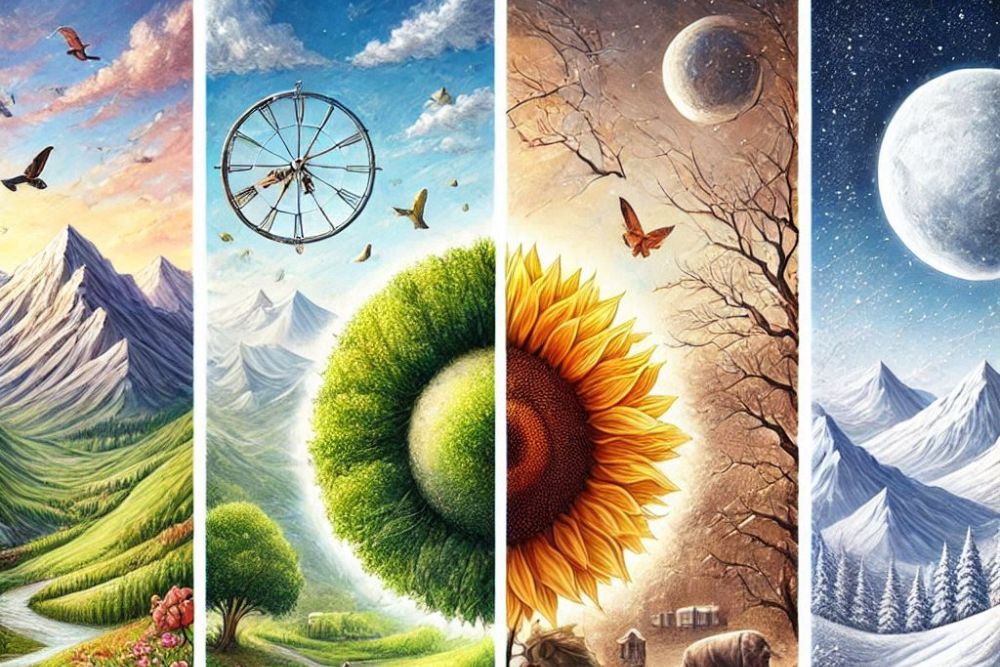
Meaning of life
Reflect on death every day
How tragic that man can never realize how beautiful life is until he is face to face with death.
Akira Kurosawa – “Ikiru”
“What would you do if you had 6 months to live?“
This is a stark question that the character Kanji Watanabe in the movie Ikiru has to answer himself. After receiving a terminal diagnosis, he is forced to confront his own mortality – which jolts him out of complacency, prompting him to shed his attachments to trivialities and embrace the preciousness of each remaining moment. At that moment, he stops living like a “mummy” and starts truly living as a “human”.
This is something that we typically observe in life. Author Paulo Coelho once shared about a similar awakening when he was diagnosed with a “silent heart stroke” and told that he had only 30 days to live. Though he survived, this near-death experience profoundly impacted him, reinforcing the value of life and the importance of seizing the present moment. It reminded him of why he needed to constantly repeat this mantra to himself: “Do it now, do it now, do it now.”
Death is not the end of life, but it is also my best friend. She is always sitting by my side, even while I am talking to you, looking to the mountains here with snow. She is saying “I am going to kiss you,” and I say to her, “Not now, please.” But she says, “OK, not now – but pay attention and try to get the best of every moment because I am going to take you.” And I say, “OK, thank you for giving me the most important advice in life – to live your moment fully.
Paulo Coelho
Nobody is exempt from death – we will all perish someday. While many often push this thought to the back of our minds, the reality is that death can come very unexpectedly.
In fact, we are living in a world where unforeseen events – pandemics like COVID-19, accidents, natural disasters like tsunamis and earthquakes, or even the threat of war – can abruptly alter the course of our lives. As such, we need to constantly reflect on our demises – so as to appreciate the fragility and preciousness of life.
Ardently do today what must be done. Who knows? Tomorrow, death comes.
Buddha
Reflecting on death is also a powerful antidote to violence, including self-violence such as suicide. In my humble opinion, acts like suicide and self-denial offer no true solutions; they are only a way of evading responsibility and, in a sense, dishonoring the gift of life.
It takes far greater courage to confront life’s challenges than to escape them.
I understand that it’s not easy for those haunted by despair to come up with such reasoning (I myself have an uncle who committed suicide by self-immolation). That’s why I believe that aside from personal agency, we also need to emphasize the responsibility we all have to support those around us.
We need to stop assigning blame and instead proactively reach out to those who may be struggling, even if their struggles are invisible.
On an individual level, I believe that if we truly value life and understand its fleeting nature, we cannot even kill ourselves – let alone harm other people and living beings without a justifiable cause.
Think about your family and friends.
Think about what has got you here, including your achievements so far.
Think about your potential rather than shortcomings.
Think about your inner values rather than what people say about you.
Think about how you would feel if another family member committed suicide – how life would turn out for you to be “on the other side”.
Just think, and you will internalize how valuable life is – plus why we need to promote non-violence, both toward oneself and others. That is when you will learn to cultivate love and compassion, realizing that others are reflections of yourself.
Being born is, after all, a blessing, and we should cherish this gift wholeheartedly!
When you arise in the morning think of what a privilege it is to be alive, to think, to enjoy, to love…
Marcus Aurelius

Meaning of life
Let it go & open your heart
For small creatures such as we, the vastness is bearable only through love.
Carl Sagan
Finding meaning in life is inextricably linked to our capacity for altruism and compassion. In the face of life’s immensity and uncertainty, it is love – our connection to others and to a greater whole – that provides solace and purpose.
Loving people starts with letting go. Holding onto resentment, anger, or past hurts only weighs us down and prevents us from fully embracing the moment and connecting with others. As Viktor Frankl has remarked:
I do not forget any good deed done to me, and I do not carry a grudge for a bad one.
Only when we free ourselves from the burden of negativity may we be ready to embrace love and connection.
Love is an active force that empowers both the giver and the receiver. It enables both parties to see the best in others, to recognize their potential, and to help the other grow and flourish.
One practical way to cultivate compassion and open our hearts is to consider others as extensions of our own family. When we encounter someone, particularly someone we might be inclined to judge or dislike, how about trying to see them as a mother, a father, a sister, a brother, a child?
Such a simple shift in perspective should dramatically alter our perception and foster empathy.
If you intend to harm a woman, imagine her as your own mother, sister, or daughter – and you should find a reason to refrain from proceeding.
By considering the impact of our words on others as if they were directed at our own family, we are better equipped to demonstrate greater kindness unconditionally.
Next time you say, “I have nothing in common with this person,” remember that you have a great deal in common: A few years from now – two years or seventy years, it doesn’t make much difference – both of you will have become rotting corpses, then piles of dust, then nothing at all. This is a sobering and humbling realization that leaves little room for pride. [… ] In that sense, there is total equality between you and every other creature.
Eckhart Tolle

Be curious like a kid
Just possibly, ikigai makes a Peter Pan of all of us. And that is not necessarily a bad thing. Let us all be twelve years old!
Ken Mogi
Recently, my father, who is already over 65, decided to embark on a new adventure: learning English. Without any formal instruction, he began exploring online resources, diligently practicing pronunciation and grammar.
As I conversed with him about his newfound interest, he spoke with childlike enthusiasm about his discoveries – including how he learned about things like linking sounds. He discussed what he had learned along the way with genuine excitement.
He told me that if he just kept learning, searching, and practicing, he would eventually become fluent one day – even if that one day only comes when he has reached the age of 80-90.
He also talked about the fact that “haste makes waste”; hence, he isn’t fixated on the end goal and rather finds joy in the daily process of learning and practicing. Even if he dies before his dream is visualized, at least he will have tried his best – and the effort itself will have been worth it.
As I listened to my father’s sharing, I could not help but be reminded of the importance of curiosity in finding the meaning of life.
Most children approach the world with a pure sense of wonder, constantly asking “Why?” and eager to explore new things. This innate inquisitiveness is what drives them to learn, grow, and discover their place in the world.
Unfortunately, as we grow older, we often lose this sense of wonder, becoming complacent and settling into routines. Cultivating a childlike mindset, therefore, is essential to re-igniting passion and enriching our lives.
It’s akin to acquiring the spirit of a nomad – one who is constantly exploring new territories and embracing new experiences, whether by trying a new hobby, learning a new skill, exploring a new place, or simply engaging in conversations with people from different backgrounds.
I, too, have been a wanderer myself, seeking answers to questions about my ikigai, about spirituality, and about the nature of existence itself. After a time of constant reflection, I have come to believe that the meaning of life (at least to me) is intrinsically linked to lifelong learning.
It’s not important to arrive at a definitive answer. What matters is to continuously seek, explore, and grow. Each new experience, each new piece of knowledge, adds another layer to my knowledge of thyself and the world around me.
During our life journey, we all come across a variety of experiences – some sweet, some bitter, some unexpected. We don’t get to choose most of them – the circumstances of our birth, the challenges we face, the opportunities that come our way.
However, we do get to decide how to respond to these events. We can try different options, explore new paths, and embrace new opportunities, even if we don’t know exactly what they will hold.
My mom always said life was like a box of chocolates. You never know what you’re gonna get.
Forrest Gump

Meaning of life
Read more: Healing Your Inner Child – 15 Steps to Unearthing the Happy, Healthy You Within
Do not compare yourself to others
We can find our happiness within the unique condition of each of us. The grass might look greener on the other side, but that is only an illusion.
Ken Mogi
In Kishimi Ichiro’s book “The Courage to be Disliked“, there is a conversation between a young man and a philosopher that goes like this:
YOUTH: Let me tell you about another friend of mine, a man named Y. He’s the kind of person who has always had a bright personality and talks easily to anyone. He’s like a sunflower – everyone loves him, and people smile whenever he’s around. In contrast, I am someone who has never had an easy time socially, and who’s kind of warped in various ways.
PHILOSOPHER: So, you’d like to be a more upbeat person, like Y? Why do you think you want to be like Y?
YOUTH: As I said earlier, it’s just that I admire him and I think I’d be happier if I were like him.
PHILOSOPHER: You think you’d be happier if you were like him. Which means that you are not happy now, right?
YOUTH: What!
PHILOSOPHER: Right now, you are unable to feel really happy. This is because you have not learned to love yourself. And to try to love yourself, you are wishing to be reborn as a different person. You’re hoping to become like Y, and throw away who you are now.
Look, no matter how much you want to be Y, you cannot be reborn as him. You are not Y. It’s okay for you to be you.
You want to be Y or someone else because you are utterly focused on what you were born with. Instead, you’ve got to focus on what you can make of your equipment.
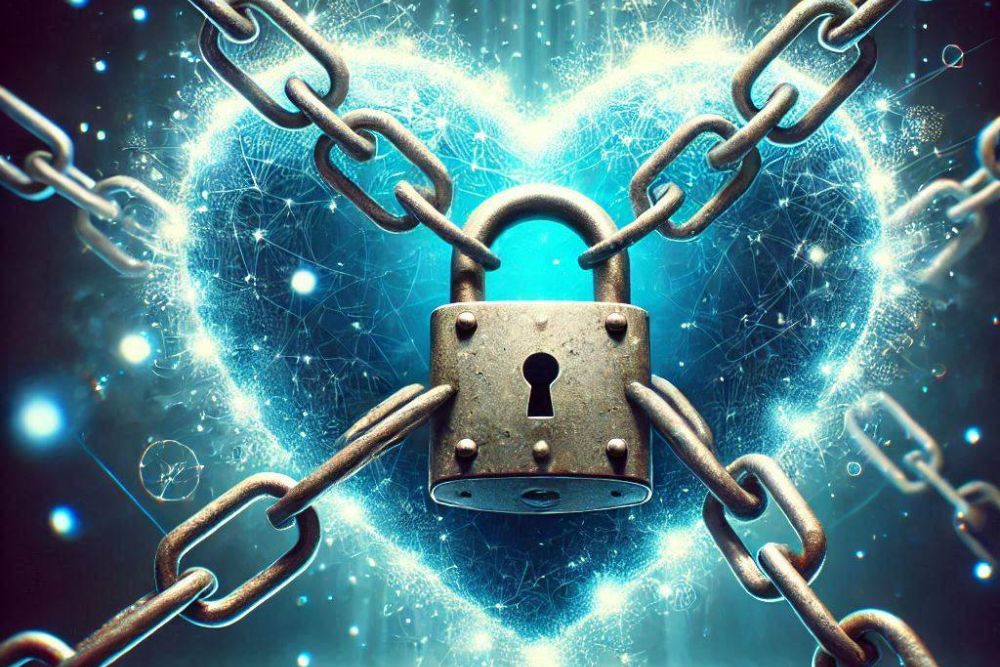
The tendency to compare oneself to others is pervasive in modern life, fueled by social media and a culture that constantly bombards us with images of seemingly perfect lives. Such an act, unfortunately, only robs us of joy, diminishes our self-worth, and ultimately prevents us from experiencing the meaning of life.
When we constantly measure ourselves against external standards, we become obsessed with external validation, sacrificing our freedom in the process. This pursuit of approval becomes a “prison”, preventing us from authentically pursuing our own path to meaning.
True freedom lies in detaching from the need for validation and finding our own internal compass. We must learn to accept ourselves fully, flaws and all.
Think about this. If we were given the choice to be born again, would we truly choose to be someone else?
Perhaps there are aspects of ourselves we would like to improve, but fundamentally, our unique traits, experiences, and perspectives are what make us who we are.
While none of us are perfect, we can grow and evolve through experience. Accepting our individuality allows us to stop engaging in social comparison – and to find comfort in pursuing our own unique way of living.
Back in the day, in an interview about the meaning of life, Sadhguru made a truly wise comment:
“If you were here 10 centuries ago, you wouldn’t be driving a car, you would be walking and you would be fine.”
So why the difference in terms of our outlook on life then?
The reason, as he explained, is that we often mistake “lifestyle” for “life” itself. The latter is fundamental, while the former is just a construct of our time and circumstances.
If we confuse lifestyle with life, we will inevitably suffer – because someone will always have a “better” lifestyle than us.
On the other hand, by focusing on the core aspects of life – connection, growth, contribution – rather than getting caught up in the endless pursuit of a “better” lifestyle based on external comparisons, our life will turn to a completely new page.
We must cultivate self-sufficiency and find joy in our own experiences, regardless of people’s opinions. It’s about having the courage to “dance without any audience,” to pursue our passions and values authentically, even if they are not recognized or appreciated by others.
The courage to be disliked is an essential requirement for finding the meaning of life. We must stop living in the shadows of others’ expectations and embrace our own unique light.
In Japanese culture, there is a saying called Oubaitori (桜梅桃李) – which literally means “cherry blossoms, plum, peach, and apricot”. These 4 plants all blossom in spring, but each of them has its own distinct appearance, characteristics, and blooming time.

Just as each flower blooms in its own time and unique way, so too should we embrace our own individual journeys. A rose is not inherently better than a cherry blossom; they are both beautiful in their own right.
Likewise, comparing ourselves to others is a fruitless endeavor. We should instead focus wholeheartedly on cultivating our strengths, talents, and values.
There is no absolute formula for happiness; each unique condition of life can serve as the foundation for happiness in its own unique way. You can be happy when married with children, or when married without children. You can be happy when you are single, without a college degree, or with one. You can be happy when you are slim, you can be happy when you are overweight. You can be happy when living in a warm climate as in California, you can be happy when living in Montana, where you have severe winter conditions. As a sumo wrestler, you can be happy when you make it to yokozuna, or you can be happy while remaining one of the underdogs all your career, doing small chores, never giving up.
Ken Mogi
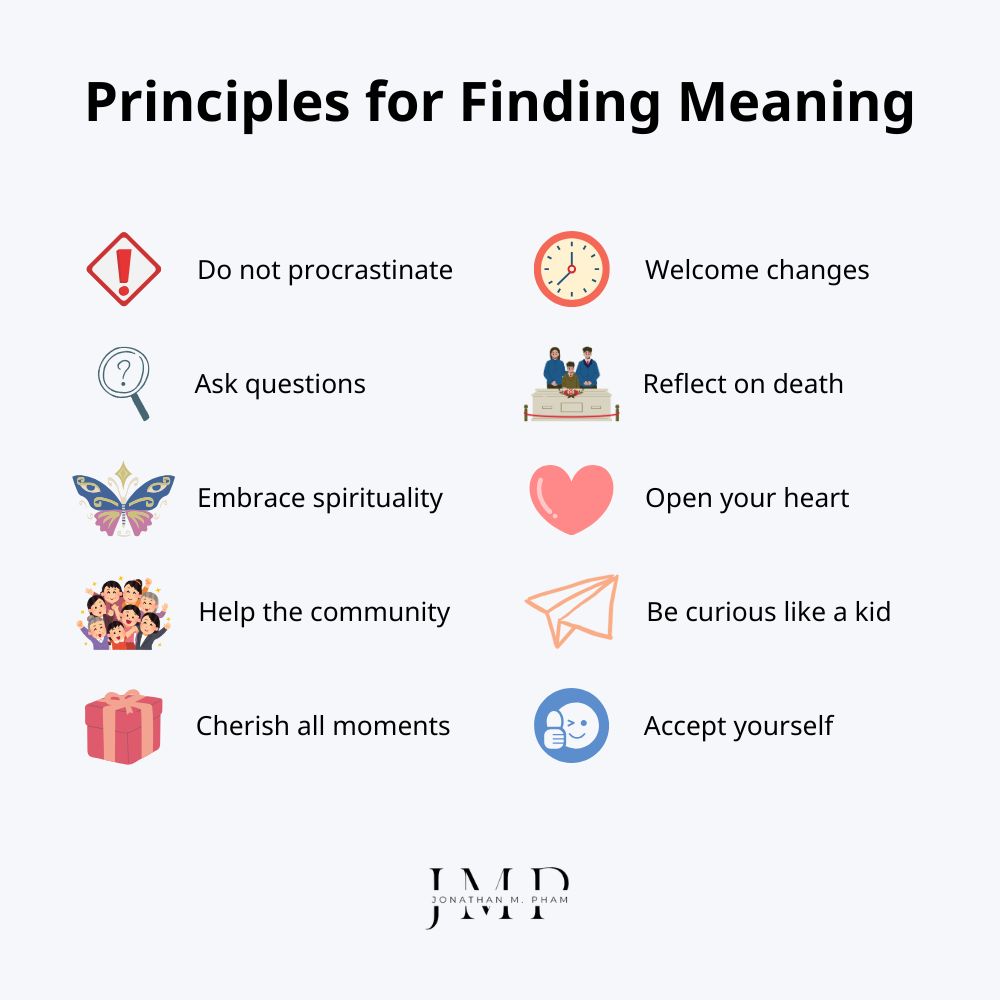
Principles of finding the meaning of life
Finding Meaning in Suffering
On the quest for the meaning of life, one cannot fail to contemplate the reality of suffering. It is an intrinsic part of the human experience, a universal constant that touches every life regardless of background, belief, or circumstance.
While we may be tempted to avoid or deny it, confronting it is essential for a deeper understanding of life’s purpose.
One thing that makes it tricky to understand suffering is its disputable nature. Depending on one’s spiritual and philosophical perspective, their interpretation of suffering may vary greatly. Some attribute it to karma, others to divine will (whether from God or a more adversarial force), and still others to pure chance. These varying perspectives not only shape how we understand the source of suffering but also influence how we cope with it. (e.g. a person who believes in karma might focus on rectifying past actions, while another one who believes in the Divine may seek solace in prayer or faith)
For my part, I am not interested much in finding out the “whys” – as it only concerns the past. I choose to believe that some of my sufferings are because of past deeds (whether in this life or a previous life – if there is one), some are meant to strengthen my will and teach me important lessons, and some are meant to help me better empathize with my neighbors’ miseries.
Whatever it is, I choose not to whine about or retreat within – but “take up the sword” and “fight”. To be proactive.
Whether it’s a consequence of past actions, a test of our strength, or an opportunity to develop compassion, the key is to confront all life throws at us with courage and a willingness to learn.
There was no need to be ashamed of tears, for tears bore witness that a man had the greatest of courage, the courage to suffer.
Viktor E. Frankl
Our innate tendency is to fall into the trap of comparing our struggles to those of others, believing ourselves to be uniquely burdened. This only gives rise to feelings of self-pity and resentment, hindering the ability to find meaning in daily experiences.
The truth is that everyone carries their own burdens; hence, it’s essential to focus on navigating our own challenges rather than measuring them against others. We need to acknowledge our pain without minimizing that of others, and to avoid the trap of “competitive suffering”.
What’s really interesting is that as we shift our perspectives on life’s struggles, we become a better version of who we are now. Not only do hardships strengthen our will and moral foundation – they also teach us the importance of empathizing with others, as well as provide clarity into what truly matters to us – whether it’s relationships, values, personal growth, or contribution to a greater cause.
Just think about a parent who dedicates their life to caring for a child with a severe disability. Their life may be filled with hardship and sacrifice, but the love and purpose derived from this act give them a profound sense of meaning. The suffering is not erased, but it is transformed into something meaningful and even sacred.
If we can embrace such a no-self mindset, we will transform suffering from a source of despair into a catalyst for growth, resilience, and knowledge.
In some ways suffering ceases to be suffering at the moment it finds a meaning, such as the meaning of a sacrifice.
Viktor Frankl
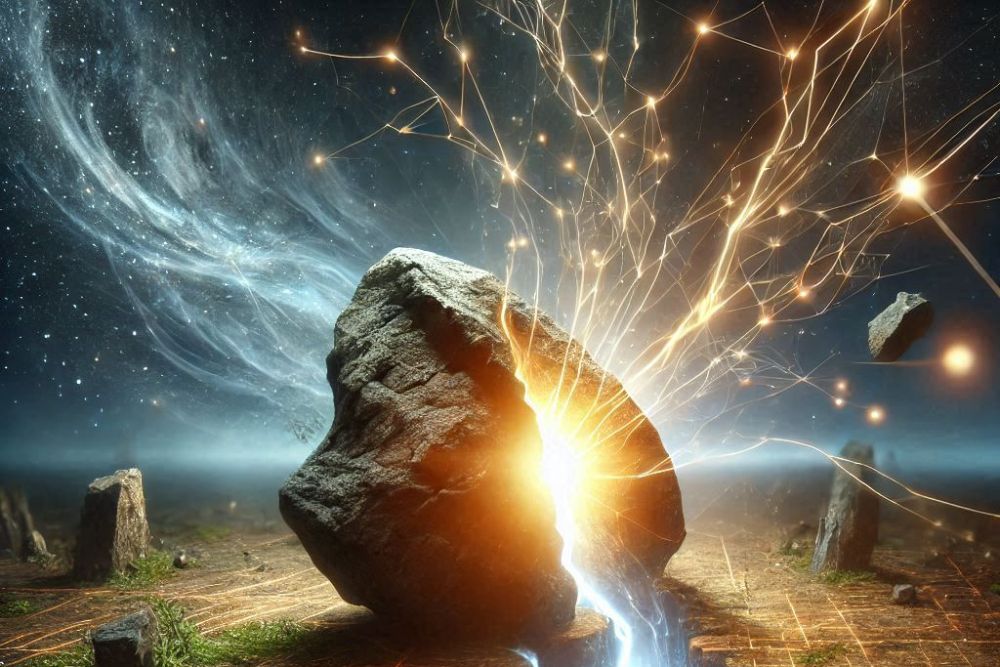
Meaning of Life Quotes
More quotes can be found here.
The greatest task for any person is to find meaning in his or her life.
Viktor E. Frankl
All I can do is remind you of what you have forgotten.
Eckhart Tolle
If you get the inside right, the outside will fall into place. Primary reality is within; secondary reality without.
Eckhart Tolle
Give up defining yourself – to yourself or others. You won’t die. You will come to life.
Eckhart Tolle
Every being is intended to be on earth for a certain purpose.
Saadi Shirazi
Understand this: we can despair of the meaning of life in general, but not of the particular forms that it takes; we can despair of existence, for we have no power over it, but not of history, where the individual can do everything.
Albert Camus
Someone has to start. Other people might not be cooperative, but that is not connected to you. My advice is this: you should start. With no regard to whether others are cooperative or not.
Ichiro Kishimi, from “The Courage to Be Disliked”
The meaning of life is to find your gift. The purpose of life is to give it away.
Pablo Picasso
I see therein the very challenge to join the minority. For the world is in a bad state, but everything will become still worse unless each of us does his best.
Viktor E. Frankl
There is only one important task remaining: the perfection of the self. You have the time that Heaven has given you to perfect yourself.
Ayako Sono
Isn’t it interesting how an element , which might not be appreciated by itself, turns out to contribute to the overall quality when blended with elements of different characters? It is like the essence of life itself. The complex interaction between various elements in an organic system makes life robust and sustainable.
Ken Mogi
There are two ways of spreading light: to be the candle or the mirror that reflects it.
Edith Warton
Those who have failed to work toward the truth have missed the purpose of living.
Buddha
If you want to fly, give up everything that weighs you down.
Buddha
Whoever loves money never has enough; whoever loves wealth is never satisfied with their income. This too is meaningless.
Ecclesiastes 5:10
You are the light of the world. A town built on a hill cannot be hidden. Neither do people light a lamp and put it under a bowl. Instead they put it on its stand, and it gives light to everyone in the house.
Matthew 5:14-15
Of others there is no memory;
they have perished as though they had never existed;
they have become as though they had never been born,
they and their children after them.
But these also were men of compassion
whose righteous deeds have not been forgotten;
their wealth will remain with their descendants
and their inheritance with their children’s children.Sirach 44:9-11
Meaning of Life Books
Check out the full recommended list here.
Meaning of Life Movies
Discover a curated list of films with deep meaning here.
Further Readings on the Meaning of Life
Finding Your Way – by Robert C. Ciampi LCSW. https://www.psychologytoday.com/intl/blog/when-to-call-a-therapist/202005/existential-angst.
Why It’s Hard to Find Your ‘Life Purpose’ In Today’s World – by Douglas LaBier Ph.D. https://www.psychologytoday.com/intl/blog/the-new-resilience/201105/why-its-hard-to-find-your-life-purpose-in-todays-world.
Nick Vujicic: Finding Your Purpose. https://www.nbforum.com/nbreport/nick-vujicic-finding-purpose/.
Helen Keller – Three Days to See. https://www.theatlantic.com/magazine/archive/1933/01/three-days-to-see/371679/.
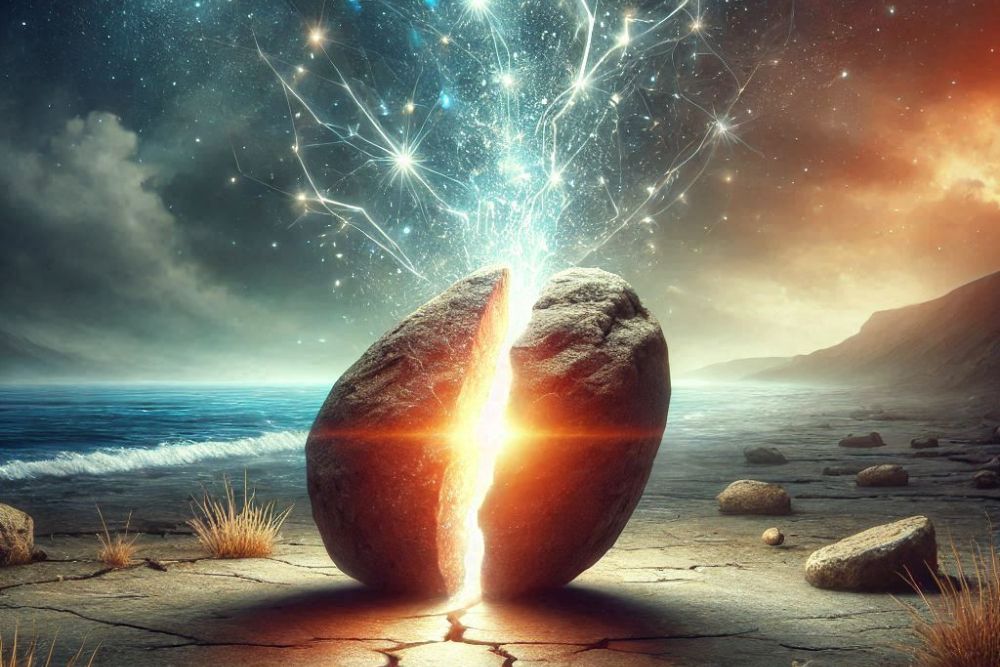
Final Thoughts
As you may see from the elaboration above, the meaning of life is a deeply personal experience. No single, definitive answer will satisfy everyone; and even if you find one now, don’t be surprised that your interpretation may fluctuate in the future.
Perhaps the meaning of life is not something to be found, but something to be created.
Perhaps it is in our relationships with others, our contributions to society, and our personal growth that we find purpose.
Perhaps it is in the simple act of living, of experiencing the world in all its beauty and complexity.
Whatever it means to you personally, the idea is that you must take the initiative and tread the path with intention. Even if there are twists and turns along the way, it is the journey itself – not the final destination – that matters.
It is through this journey that one’s life is transformed and transcends into a higher “dimension”.
So, let us embrace the mystery of existence, the beauty of the unknown, and the endless possibilities that lie before us.
Let us live each day with mindfulness, gratitude, compassion, and a spirit of inquiry.
And let us remember that the true meaning of life may not be found in a grand, cosmic plan, but in the countless small moments that make up our lives.
Life is brief, fall in love, maidens… Before the crimson bloom fades from your lips… Before the tides of passion cool within you… For those of you who know no tomorrow…
Gondola no Uta
Other resources you might be interested in:
- Vision Board: Toolkit for Attracting Abundance & Supercharging Your Life
- 250 Bucket List Ideas: Dream, Explore, Achieve
- Shikata ga nai: The Art of Finding Serenity in Acceptance
Let’s Tread the Path Together, Shall We?



